Here are my favorite poems about death categorized:
- Poems about death of a loved one
- Poems about death and rebirth
- Poems about death and grief
- Poems about death and dying
- Poems about death and life
- Poems about death of a friend
So if you want the best poems about death, then you’re in the right place.
Let’s dive into it!
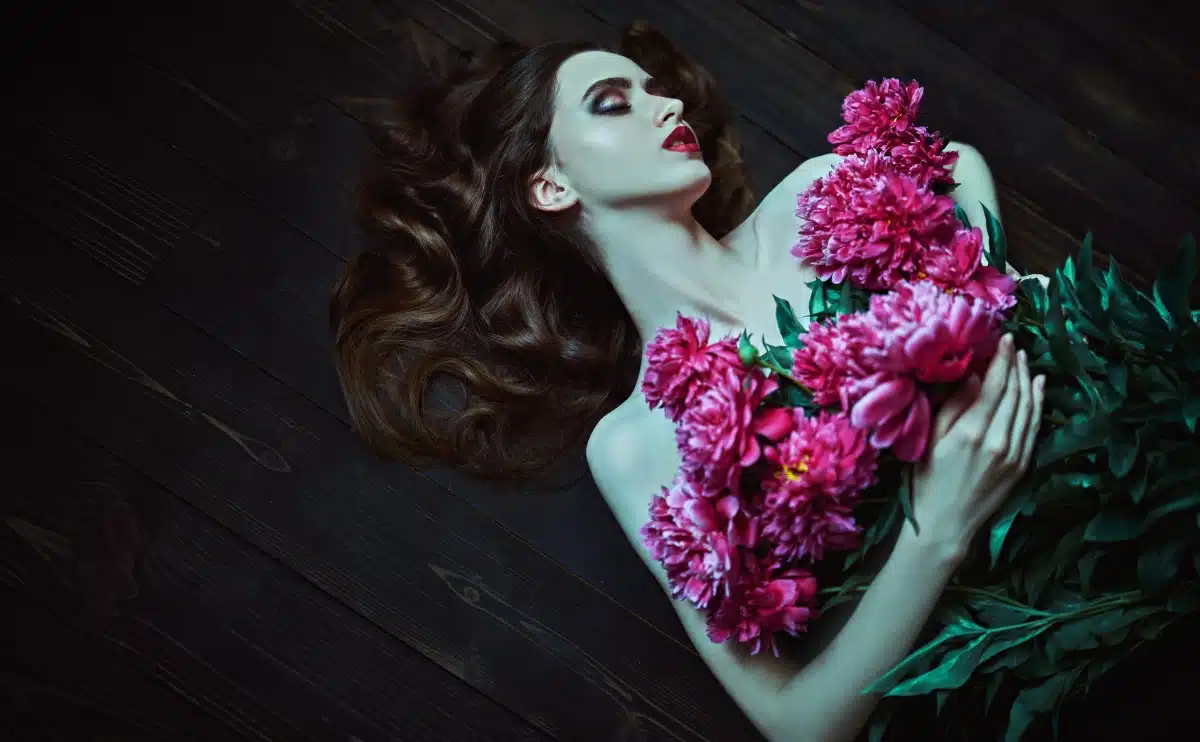
Mournful Poems About Death

Plunge into the mysterious realm of death-inspired poetry, where words become bridges that connect the realms of the living and the departed.
This heartfelt selection of poems about death tenderly navigate the intricate journey of grief, offering solace and understanding to those who have experienced the profound pain of losing someone dear.
Our anthology brings to light the bittersweet emotions that arise when we bid farewell to a cherished companion, leaving us with a profound appreciation for the impact they had on our lives.
If you’re looking for a tribute to a lost dear friend or searching for healing in the face of losing a loved one, our collection has the right mix of emotional but comforting poems.
Let’s get started!
My #1 Favorite Poem About Death
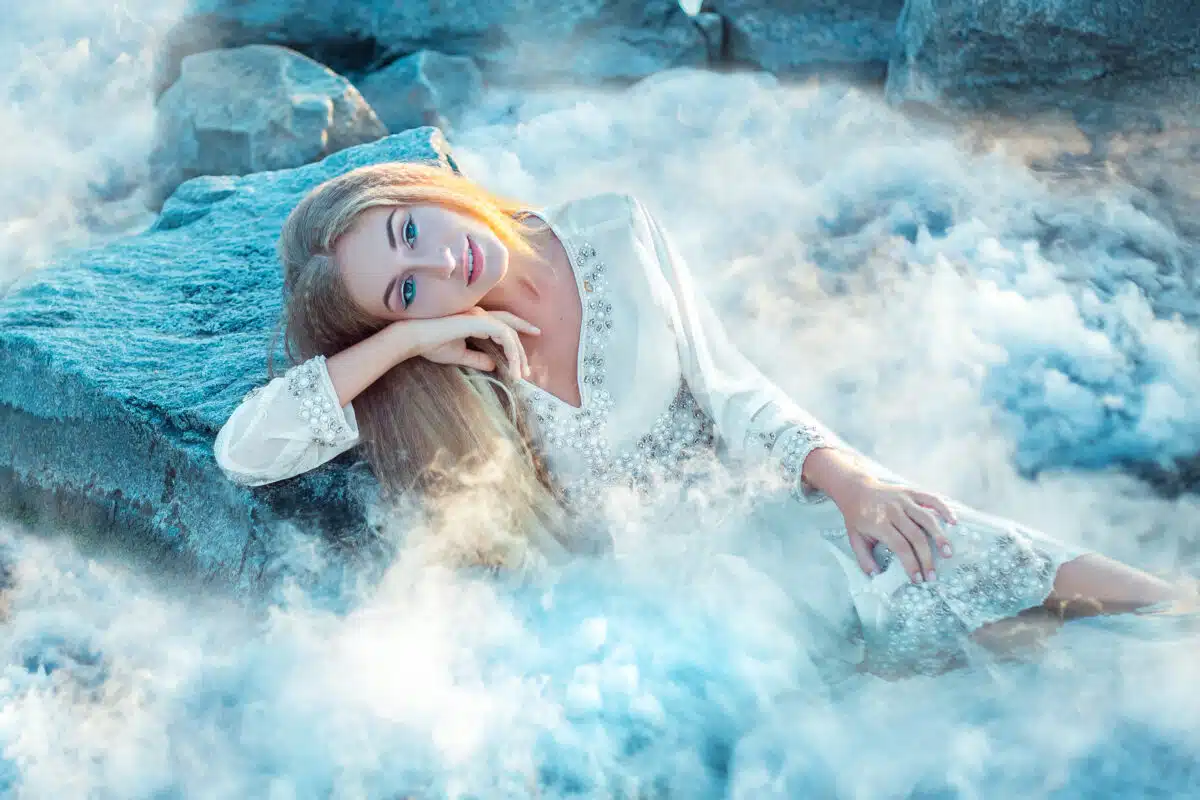
“The Triumph of Death” by William Shakespeare
No longer mourn for me when I am dead
Than you shall hear the surly sullen bell
Give warning to the world that I am fled
From this vile world, with vilest worms to dwell.
Nay, if you read this line, remember not
The hand that writ it; for I love you so,
That I in your sweet thoughts would be forgot
If thinking on me then should make you woe.
O if, I say, you look upon this verse
When I perhaps compounded am with clay,
Do not so much as my poor name rehearse,
But let your love even with my life decay;
Lest the wise world should look into your moan,
And mock you with me after I am gone.
Poems About Death of a Loved One
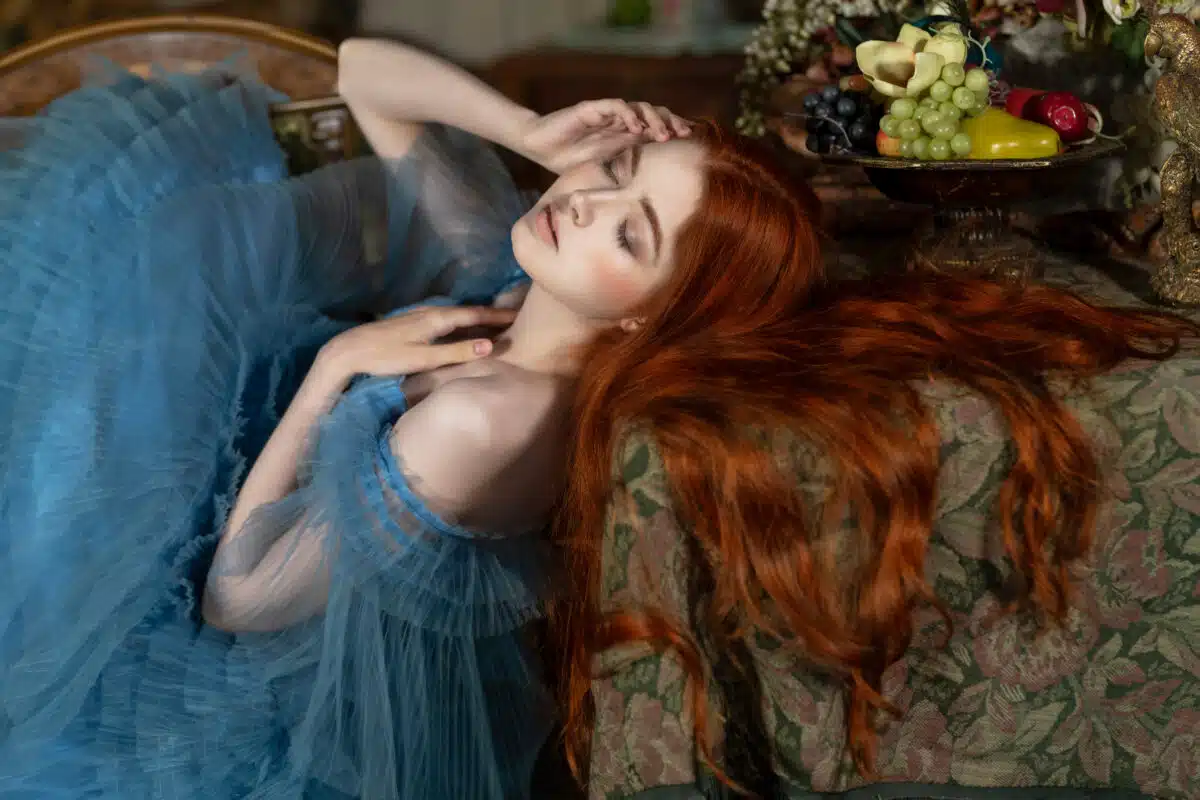
“Early Death” by Hartley Coleridge
She pass’d away like morning dew
Before the sun was high;
So brief her time, she scarcely knew
The meaning of a sigh.
As round the rose its soft perfume,
Sweet love around her floated;
Admired she grew—while mortal doom
Crept on, unfear’d, unnoted.
Love was her guardian Angel here,
But Love to Death resign’d her;
Tho’ Love was kind, why should we fear
But holy Death is kinder?
“The Death-bed” by Thomas Hood
We watch’d her breathing thro’ the night,
Her breathing soft and low,
As in her breast the wave of life
Kept heaving to and fro.
So silently we seem’d to speak,
So slowly moved about,
As we had lent her half our powers
To eke her living out.
Our very hopes belied our fears,
Our fears our hopes belied–
We thought her dying when she slept,
And sleeping when she died.
For when the morn came dim and sad,
And chill with early showers,
Her quiet eyelids closed–she had
Another morn than ours.
“The Gift of Death” by Roger L. Sergel
I cannot lose you, dear, let come what may,
For you are with me as a melody
And have been through the ages. I can see
No time in all times that within me stay
When you were not the worth of every day.
The names I called you by have passed from me,
The forms I loved you in perhaps will be
Again sweet woman forms of loveliest clay.
And then, perhaps, you may be as a breath
Of rosy flame along the narrowing west;
For even now in all that I love best
Your name starts as a music—and the hue
Of beauty trembles through me. Dear, in death
I’ll find, not immortality, but you.
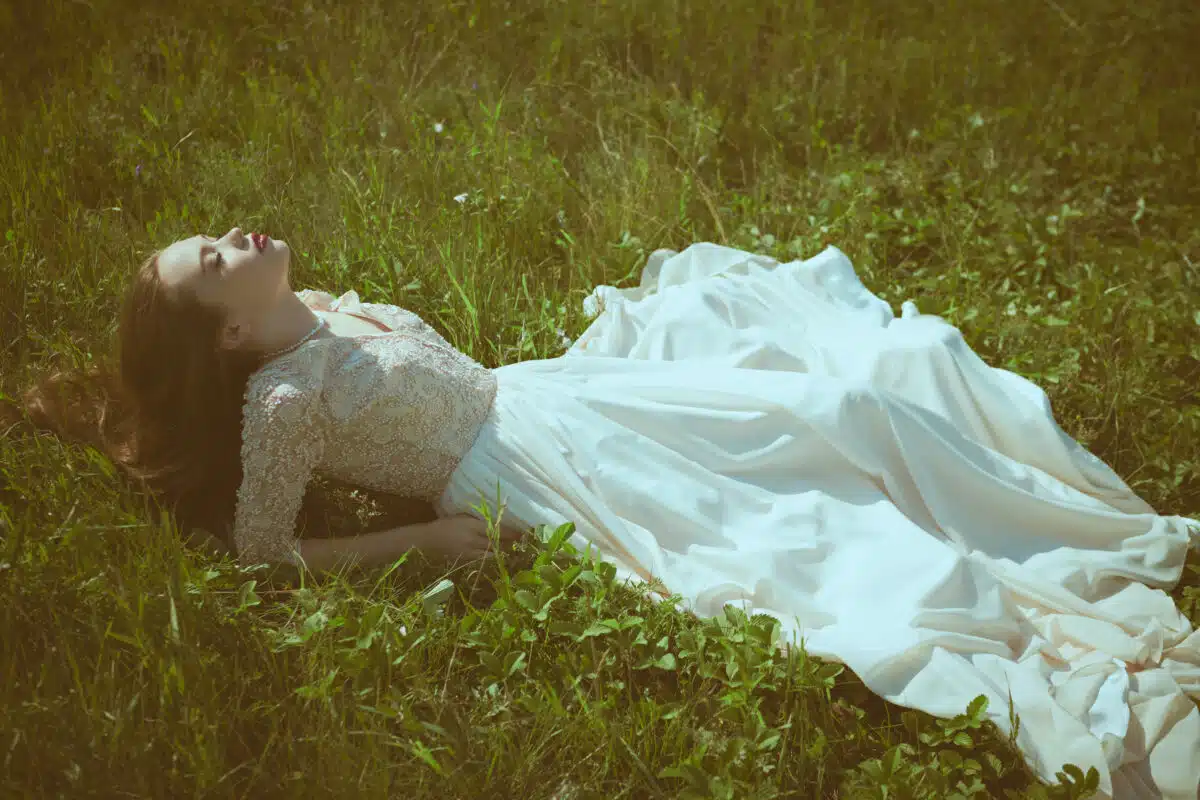
“Death in the Sun” by Fannie Stearns Gifford
A warm gold shining world.
A whispering, laughing world.
You would not think that Death stands there in the sun,
Leaning against the posts of the red-brick house,
Leaning across the bright brass knocker and knob and bell.
A warm gold shining world,
And crocuses up in the lawn.
If Death were not so thin,
Like air or water or gas,
He would darken the smooth white door.
He would stain the little square gleaming window-lights dull gray.
But he is so clear and thin
That they glitter and sparkle and live …
She was young, and her cheeks were red.
She was young, and loved laughing and gossip.
She wore coral-color, and sapphire, and violet;
And hats with feathers that knew how to trick you to staring;
And shoes high-heeled, quick, dainty.
She did not think much. She was gay.
No one will say, “She is dead.”
The crocuses out in the lawn—
White and purple and orange candles,
Windless and warm and safe—
Burn the brown soil with beauty …
No one will say, “She is dead.”
Yet Death stands there in the sun.
“Her Death” by Florence Wilkinson
The silence sobbed
Like a bird’s throat,
Clear as a star.
Yes, in the gathering twilight throbbed
A liquid note,
A breath!
It drew me far….
Over my room’s inscrutable shade
A Brightness leaned,
A sun, a cloud.
I sang aloud—
Yet no one heard, no mortal heard—
“Who hasteneth?
Yea, I am ready, ready, Death!
My Death, dear Death my life!”
The step, the word—
Ah, he has heard!
He came, I kissed the great white blade.
I lived—and I was not afraid.
“On the Death of a Little Child” by Catherine Winkworth
Gentle Shepherd, Thou hast stilled
Now Thy little lamb’s long weeping;
Ah, how peaceful, pale, and mild,
In its narrow bed ’tis sleeping,
And no sigh of anguish sore
Heaves that little bosom more.
In this world of care and pain,
Lord, Thou would’st no longer leave it;
To the sunny heavenly plain
Dost Thou now with joy receive it;
Clothed in robes of spotless white
Now it dwells with Thee in light.
Ah, Lord Jesus, grant that we
Where it lives may soon be living,
And the lovely pastures see
That its heavenly food are giving;
Then the gain of death we prove,
Though Thou take what most we love.
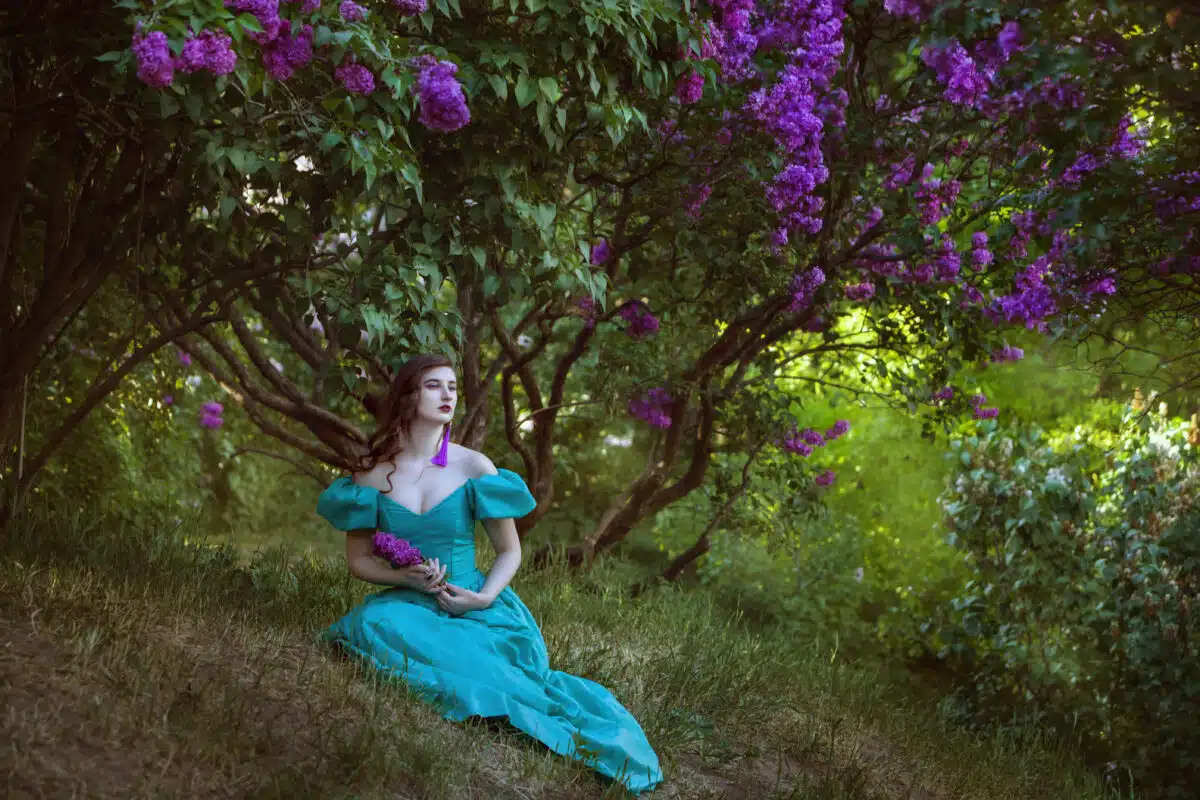
“His Lady’s Death” by Pierre de Ronsard
Twain that were foes, while Mary lived, are fled;
One laurel-crowned abides in heaven, and one
Beneath the earth has fared, a fallen sun,
A light of love among the loveless dead.
The first is Chastity, that vanquished
The archer Love, that held joint empery
With the sweet beauty that made war on me,
When laughter of lips with laughing eyes was wed.
Their strife the Fates have closed, with stern control,
The earth holds her fair body, and her soul
An angel with glad angels triumpheth;
Love has no more that he can do; desire
Is buried, and my heart a faded fire,
And for Death’s sake, I am in love with Death.
“By On the Death of his Son” by Cotton Mather
The exhortation of the Lord,
With consolation speaks to us;
As to his children his good word,
We must remember speaking thus:
My child, when God shall chasten thee,
His chastening do thou not contemn:
When thou his just rebukes dost see,
Faint not rebuked under them.
The Lord with fit afflictions will
Correct the children of his love;
He doth himself their father still,
By his most wise corrections prove.
Afflictions for the present here
The vexed flesh will grievous call;
But afterwards there will appear,
Not grief, but peace, the end of all.
“By On the Death of his Daughter” by Cotton Mather
The dearest Lord of heaven gave
Himself an offering once for me:
The dearest thing on earth I have,
Now, Lord, I ’ll offer unto Thee.
I see my best enjoyments here,
Are loans, and flowers, and vanities;
Ere well enjoy’d they disappear:
Vain smoke, they prick and leave our eyes.
But I believe, O glorious Lord,
That when I seem to lose these toys,
What ’s lost will fully be restor’d
In glory, with eternal joys.
I do believe, that I and mine,
Shall come to everlasting rest;
Because, blest Jesus, we are Thine,
And with thy promises are blest.
I do believe that every bird
Of mine, which to the ground shall fall,
Does fall at thy kind will and word;
Nor I, nor it, is hurt at all.
Now my believing soul does hear
This among the glad angels told;
I know, thou dost thy Maker fear,
From whom thou nothing dost withhold!

“A Dream Of Death” by William Butler Yeats
I dreamed that one had died in a strange place
Near no accustomed hand,
And they had nailed the boards above her face,
The peasants of that land,
Wondering to lay her in that solitude,
And raised above her mound
A cross they had made out of two bits of wood,
And planted cypress round;
And left her to the indifferent stars above
Until I carved these words:
I(She was more beautiful than thy first love,)
I(But now lies under boards.)
“By On the Death of My Child” by Joseph Freiherr von Eichendorff
From far the clocks are ticking,
Deep midnight spreads its shade;
The lamp is burning dimly—
Your little bed is made.
Only the winds are wandering
Around the house and moan,
And by the window harking
We sit inside, alone.
It seems as if you gently
Must knock upon the door:
You’d lost your way, and weary
Had wandered home once more!
How pitiful our folly!
We are the ones who roam,
Lost in the dreadful darkness—
You long have found your home.
“Death’s Chill Between” by Christina Georgina Rossetti
Chide not; let me breathe a little,
For I shall not mourn him long;
Though the life-cord was so brittle,
The love-cord was very strong.
I would wake a little space
Till I find a sleeping-place.
You can go,—I shall not weep;
You can go unto your rest.
My heart-ache is all too deep,
And too sore my throbbing breast.
Can sobs be, or angry tears,
Where are neither hopes nor fears?
Though with you I am alone
And must be so everywhere,
I will make no useless moan,—
None shall say ‘She could not bear:’
While life lasts I will be strong,—
But I shall not struggle long.
Listen, listen! Everywhere
A low voice is calling me,
And a step is on the stair,
And one comes ye do not see,
Listen, listen! Evermore
A dim hand knocks at the door.
Hear me; he is come again,—
My own dearest is come back.
Bring him in from the cold rain;
Bring wine, and let nothing lack.
Thou and I will rest together,
Love, until the sunny weather.
I will shelter thee from harm,—
Hide thee from all heaviness.
Come to me, and keep thee warm
By my side in quietness.
I will lull thee to thy sleep
With sweet songs:—we will not weep.
Who hath talked of weeping?—Yet
There is something at my heart,
Gnawing, I would fain forget,
And an aching and a smart.
—Ah! my mother, ’tis in vain,
For he is not come again
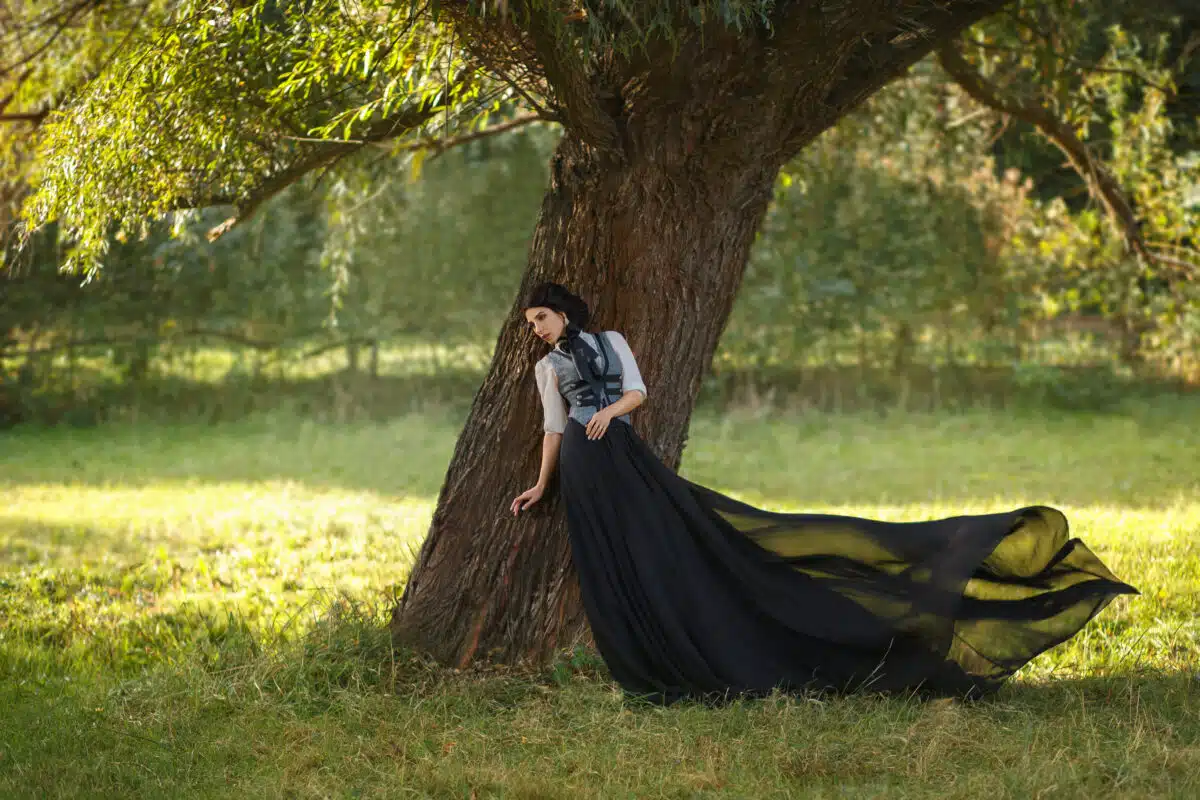
“Death” by James Henry Leigh Hunt
Death is a road our dearest friends have gone;
Why with such leaders, fear to say, “Lead on?”
Its gate repels, lest it too soon be tried,
But turns in balm on the immortal side.
Mothers have passed it: fathers, children; men
Whose like we look not to behold again;
Women that smiled away their loving breath;
Soft is the travelling on the road to death!
But guilt has passed it? men not fit to die?
O, hush — for He that made us all is by!
Human we’re all — all men, all born of mothers;
All our own selves in the worn-out shape of others;
Our used, and oh, be sure, not to be ill-used brothers!
“A Mother’s Lament for her Son’s Death” by Robert Burns
Fate gave the word, the arrow sped,
And pierc’d my darling’s heart;
And with him all the joys are fled
Life can to me impart.
By cruel hands the sapling drops,
In dust dishonour’d laid;
So fell the pride of all my hopes,
My age’s future shade.
The mother-linnet in the brake
Bewails her ravish’d young;
So I, for my lost darling’s sake,
Lament the live-day long.
Death, oft I’ve feared thy fatal blow.
Now, fond, I bare my breast;
O, do thou kindly lay me low
With him I love, at rest!
“The Death Of The First Born” by Paul Laurence Dunbar
Cover him over with daisies white,
And eke with the poppies red,
Sit with me here by his couch to-night,
For the First-Born, Love, is dead.
Poor little fellow, he seemed so fair
As he lay in my jealous arms;
Silent and cold he is lying there
Stripped of his darling charms.
Lusty and strong he had grown forsooth,
Sweet with an infinite grace,
Proud in the force of his conquering youth,
Laughter alight in his face.
Oh, but the blast, it was cruel and keen,
And ah, but the chill it was rare;
The look of the winter-kissed flow’r you’ve seen
When meadows and fields were bare.
Can you not wake from this white, cold sleep
And speak to me once again?
True that your slumber is deep, so deep,
But deeper by far is my pain.
Cover him over with daisies white,
And eke with the poppies red,
Sit with me here by his couch to-night,
For the First-Born, Love, is dead.
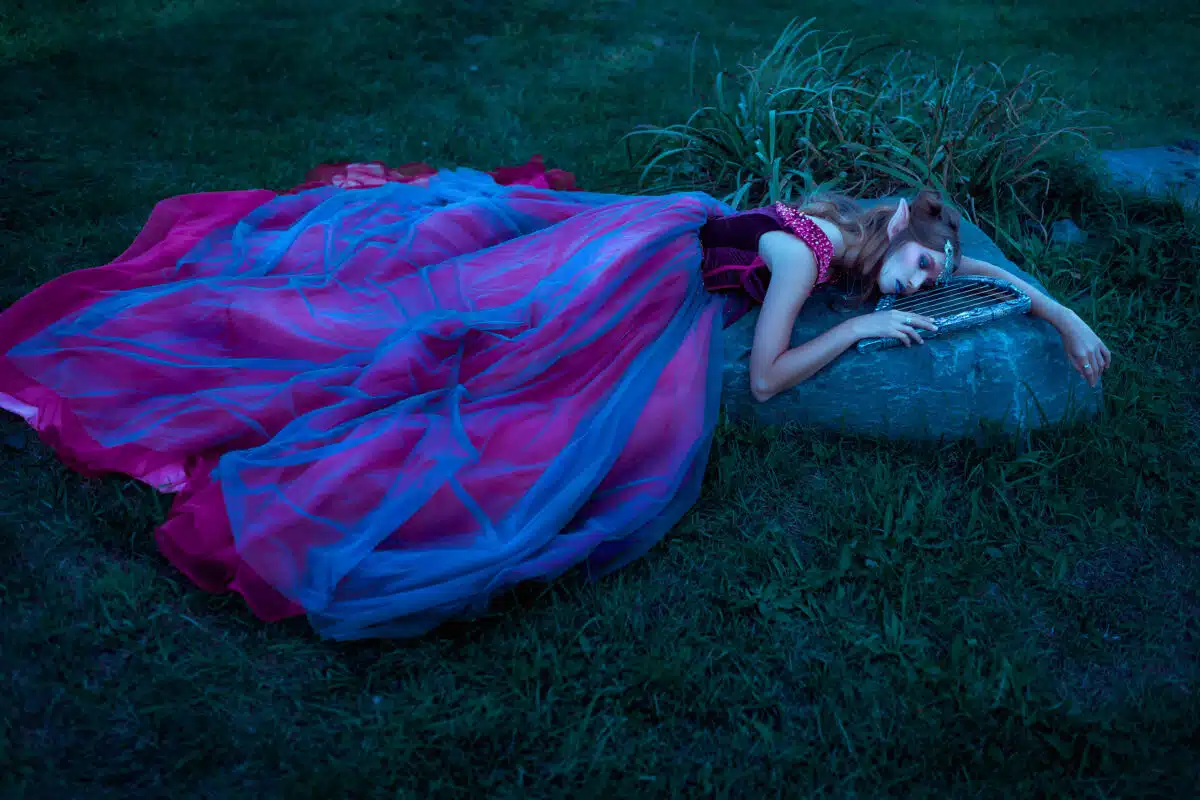
“The Law Of Death” by John Milton Hay
The song of Kilvani: fairest she
In all the land of Savatthi.
She had one child, as sweet and gay
And dear to her as the light of day.
She was so young, and he so fair,
The same bright eyes and the same dark hair;
To see them by the blossomy way,
They seemed two children at their play.
There came a death-dart from the sky,
Kilvani saw her darling die.
The glimmering shade his eyes invades,
Out of his cheek the red bloom fades;
His warm heart feels the icy chill,
The round limbs shudder, and are still.
And yet Kilvani held him fast
Long after life’s last pulse was past,
As if her kisses could restore
The smile gone out for evermore.
But when she saw her child was dead,
She scattered ashes on her head,
And seized the small corpse, pale and sweet,
And rushing wildly through the street,
She sobbing fell at Buddha’s feet.
“Master, all-helpful, help me now!
Here at thy feet I humbly bow;
Have mercy, Buddha, help me now!”
She grovelled on the marble floor,
And kissed the dead child o’er and o’er.
And suddenly upon the air
There fell the answer to her prayer:
“Bring me to-night a lotus tied
With thread from a house where none has died.”
She rose, and laughed with thankful joy,
Sure that the god would save the boy.
She found a lotus by the stream;
She plucked it from its noonday dream,
And then from door to door she fared,
To ask what house by Death was spared.
Her heart grew cold to see the eyes
Of all dilate with slow surprise:
“Kilvani, thou hast lost thy head;
Nothing can help a child that’s dead.
There stands not by the Ganges’ side
A house where none hath ever died.”
Thus, through the long and weary day,
From every door she bore away
Within her heart, and on her arm,
A heavier load, a deeper harm.
By gates of gold and ivory,
By wattled huts of poverty,
The same refrain heard poor Kilvani,
THE LIVING ARE FEW, THE DEAD ARE MANY.
The evening came – so still and fleet –
And overtook her hurrying feet.
And, heartsick, by the sacred fane
She fell, and prayed the god again.
She sobbed and beat her bursting breast:
“Ah, thou hast mocked me, Mightiest!
Lo! I have wandered far and wide;
There stands no house where none hath died.”
And Buddha answered, in a tone
Soft as a flute at twilight blown,
But grand as heaven and strong as death
To him who hears with ears of faith:
“Child, thou art answered. Murmur not!
Bow, and accept the common lot.”
Kilvani heard with reverence meet,
And laid her child at Buddha’s feet.
“On The Death Of A Very Young Gentleman” by John Dryden
He, who could view the book of destiny,
And read whatever there was writ of thee,
O charming youth, in the first opening page,
So many graces in so green an age,
Such wit, such modesty, such strength of mind,
A soul at once so manly and so kind,
Would wonder when he turned the volume o’er,
And, after some few leaves, should find no more,
Nought but a blank remain, a dead void space,
A step of life that promised such a race.
We must not, dare not, think, that heaven began
A child, and could not finish him a man;
Reflecting what a mighty store was laid
Of rich materials, and a model made:
The cost already furnished; so bestowed,
As more was never to one soul allowed:
Yet after this profusion spent in vain,
Nothing but mouldering ashes to remain,
I guess not, lest I split upon the shelf,
Yet, durst I guess, heaven kept it for himself;
And giving us the use, did soon recall,
Ere we could spare the mighty principal.
Thus then he disappeared, was rarified,
For ’tis improper speech to say he died:
He was exhaled; his great Creator drew
His spirit, as the sun the morning dew.
‘Tis sin produces death; and he had none,
But the taint Adam left on every son.
He added not, he was so pure, so good,
‘Twas but the original forfeit of his blood;
And that so little, that the river ran
More clear than the corrupted fount began.
Nothing remained of the first muddy clay;
The length of course had washed it in the way:
So deep, and yet so clear, we might behold
The gravel bottom, and that bottom gold.
As such we loved, admired, almost adored,
Gave all the tribute mortals could afford.
Perhaps we gave so much, the powers above
Grew angry at our superstitious love;
For when we more than human homage pay,
The charming cause is justly snatched away.
Thus was the crime not his, but ours alone;
And yet we murmur that he went so soon,
Though miracles are short, and rarely shown.
Learn then, ye mournful parents, and divide
That love in many, which in one was tied.
That individual blessing is no more,
But multiplied in your remaining store.
The flame’s dispersed, but does not all expire;
The sparkles blaze, though not the globe of fire.
Love him by parts, in all your numerous race,
And from those parts form one collected grace;
Then, when you have refined to that degree,
Imagine all in one, and think that one is he.
“In Death Divided” by Thomas Hardy
I
I shall rot here, with those whom in their day
You never knew,
And alien ones who, ere they chilled to clay,
Met not my view,
Will in your distant grave-place ever neighbour you.
II
No shade of pinnacle or tree or tower,
While earth endures,
Will fall on my mound and within the hour
Steal on to yours;
One robin never haunt our two green covertures.
III
Some organ may resound on Sunday noons
By where you lie,
Some other thrill the panes with other tunes
Where moulder I;
No selfsame chords compose our common lullaby.
IV
The simply-cut memorial at my head
Perhaps may take
A Gothic form, and that above your bed
Be Greek in make;
No linking symbol show thereon for our tale’s sake.
V
And in the monotonous moils of strained, hard-run
Humanity,
The eternal tie which binds us twain in one
No eye will see
Stretching across the miles that sever you from me.
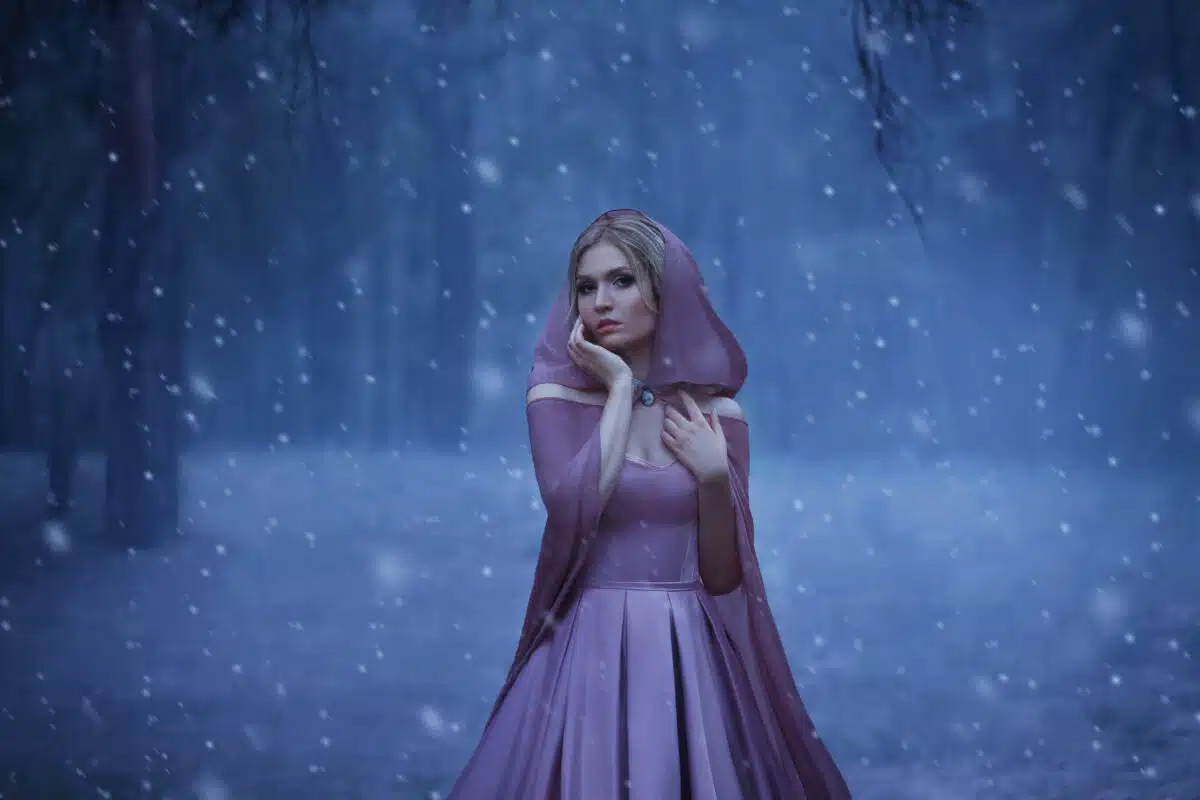
“Age and Death” by Emma Lazarus
Come closer, kind, white, long-familiar friend,
Embrace me, fold me to thy broad, soft breast.
Life has grown strange and cold, but thou dost bend
Mild eyes of blessing wooing to my rest.
So often hast thou come, and from my side
So many hast thou lured, I only bide
Thy beck, to follow glad thy steps divine.
Thy world is peopled for me; this world’s bare.
Through all these years my couch thou didst prepare.
Thou art supreme Love—kiss me—I am thine!
“The Death of Columbine” by Evelyn Scott
White breast beaten in sea waves,
Hair tangled in foam,
Lonely sky,
Desolate horizon,
Pale and shining clouds:
All this desolate and shining sea is no place for you,
My dead Columbine.
And the waves will bite your breast;
And the wind that does not know death from life
Will leap upon you and leer into your eyes
And suck at your dead lips.
Oh, my little Columbine,
You will go farther and farther away from me,
Out where there are no ships
And the column clouds
Soar across the somber horizon.
“Brother Death” by Edward Dowden
When thou would’st have me go with thee, O Death,
Over the utmost verge, to the dim place,
Practise upon me with no amorous grace
Of fawning lips, and words of delicate breath,
And curious music thy lute uttereth;
Nor think for me there must be sought-out ways
Of cloud and terror; have we many days
Sojourned together, and is this thy faith?
Nay, be there plainness ’twixt us; come to me
Even as thou art, O brother of my soul;
Hold thy hand out and I will place mine there;
I trust thy mouth’s inscrutable irony,
And dare to lay my forehead where the whole
Shadow lies deep of thy purpureal hair.
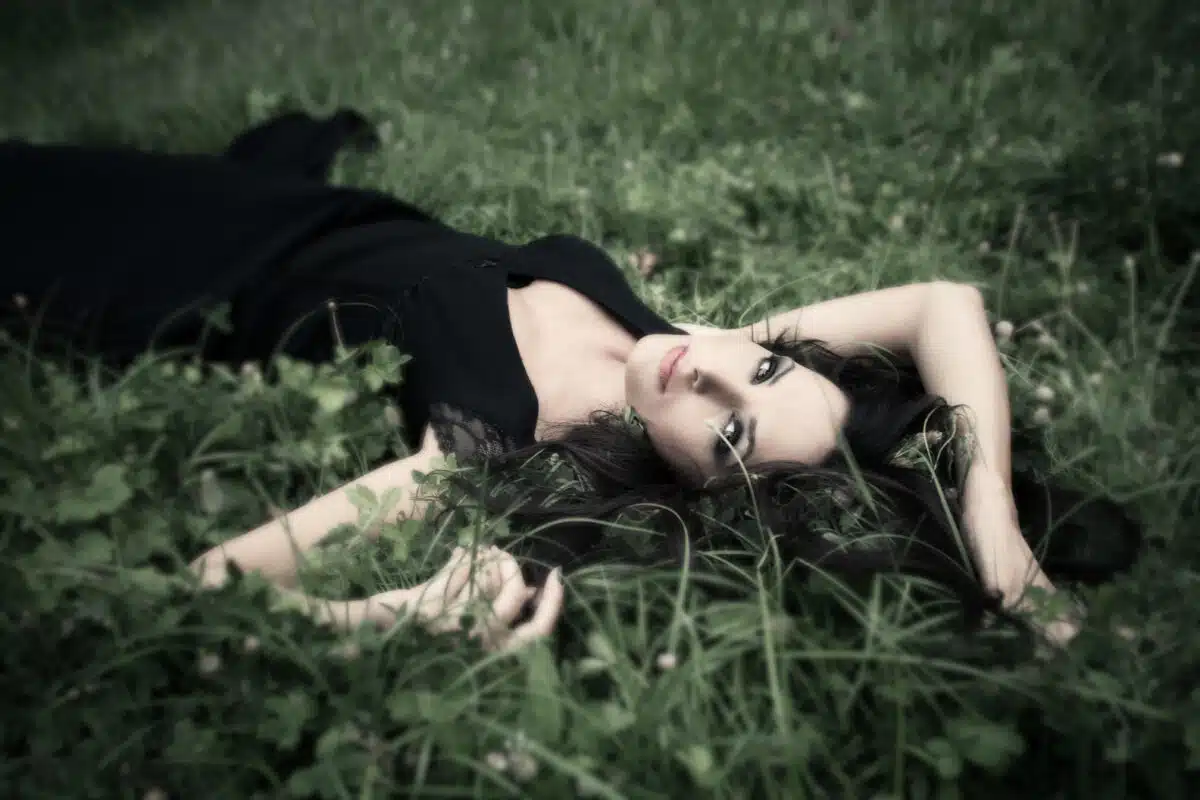
“Death” by Sophie M. (Almon) Hensley
If days should pass without a written word
To tell me of thy welfare, and if days
Should lengthen out to weeks, until the maze
Of questioning fears confused me, and I heard.
Life-sounds as echoes; and one came and said
After these weeks of waiting: “He is dead!”
Though the quick sword had found the vital part,
And the life-blood must mingle with the tears,
I think that, as the dying soldier hears
The cries of victory, and feels his heart
Surge with his country’s triumph-hour, I could
Hope bravely on, and feel that God was good.
I could take up my thread of life again
And weave my pattern though the colors were
Faded forever. Though I might not dare
Dream often of thee, I should know that when
Death came to thee upon thy lips my name
Lingered, and lingers ever without blame.
Aye, lingers ever. Though we may not know
Much that our spirits crave, yet is it given
To us to feel that in the waiting Heaven
Great souls are greater, and if God bestow
A mighty love He will not let it die
Through the vast ages of eternity.
But if some day the bitter knowledge swept
Down on my life, – bearing my treasured freight
To founder on the shoals of scorn, – what Fate
Smiling with awful irony had kept
Till life grew sweeter, – that my god was clay,
That ‘neath thy strength a lurking weakness lay;
That thou, whom I had deemed a man of men
Faulty, as great men are, but with no taint
Of baseness, – with those faults that shew the saint
Of after days, perhaps, – wert even then
When first I loved thee but a spreading tree
Whose leaves shewed not its roots’ deformity;
I should not weep, for there are wounds that lie
Too deep for tears, – and Death is but a friend
Who loves too dearly, and the parting end
Of Love’s joy-day a paltry pain, a cry
To God, then peace, – beside the torturing grief
When honor dies, and trust, and soul’s belief.
Travellers have told that in the Java isles
The upas-tree breathes its dread vapor out
Into the air; there needs no hand about
Its branches for the poison’s deadly wiles
To work a strong man’s hurt, for there is death
Envenomed, noisome, in his every breath.
So would I breathe thy poison in my soul,
Till all that had been wholesome, pure, and true
Shewed its decay, and stained and wasted grew.
Though sundered as the distant Northern Pole
From his far sister, I should bear thy blight
Upon me as I passed into the night.
Didst dream thy truth and honor meant so much
To me, Dear Heart? Oh! I am full of tears
To-night, of longing, love and foolish fears.
Would I might see thee, know thy tender touch,
For Time is long, and though I may not will
To question Fate, I am a woman still.
Poems About Death and Rebirth
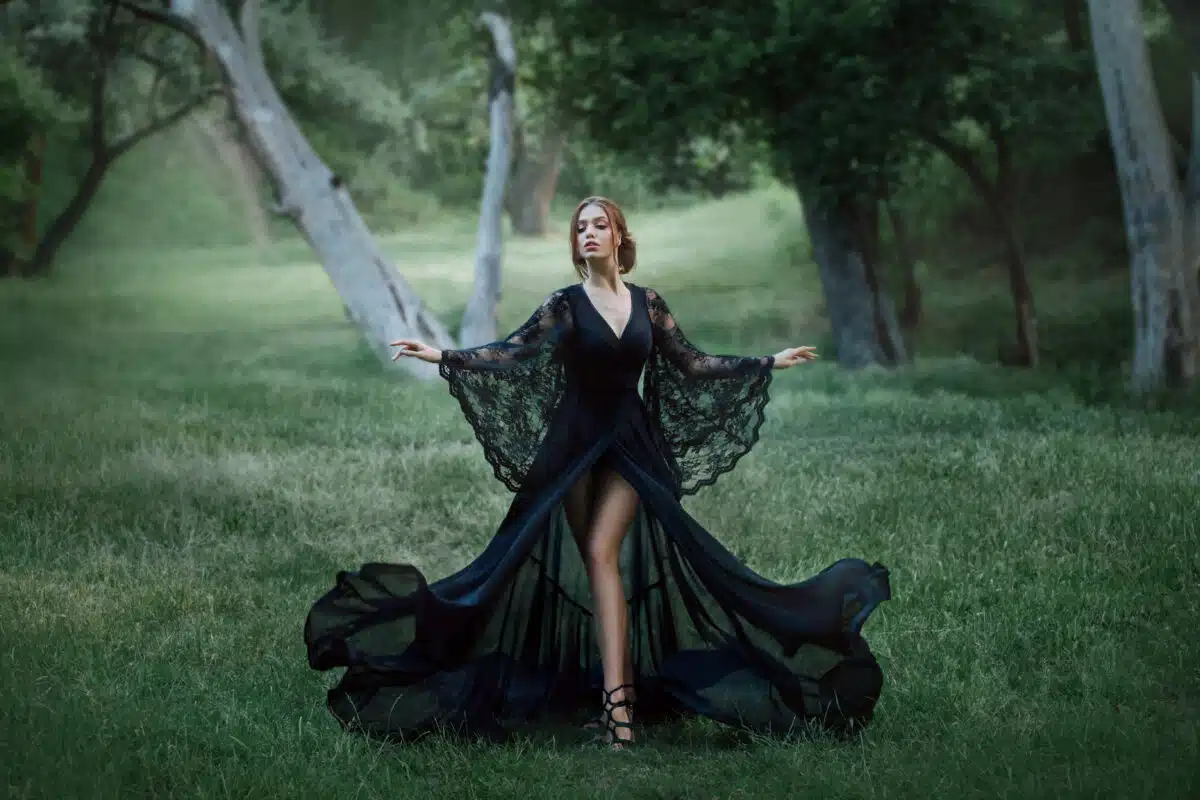
“Knowledge after Death” by Henry Charles Beeching
Is death so bitter? Can it shut us fast
Off from ourselves, that future from this past,
When time compels us through those narrow doors?
Must we supplanted by ourselves in the course,
Changelings, become as they who know at last
A river’s secret, never having cast
One guess, or known one doubt, about its source?
Is it so bitter? Does not knowledge here
Forget her gradual growth, and how each day
Seals up the sum of each world-conscious soul?
So tho’ our ghosts forget us, waste no tear;
We, being ourselves, would gladly be as they,
And we, being they, are still ourselves made whole.
“Death” by Charles Hamilton Musgrove
I am the outer gate of life where sit
Faith and Unfaith, those two interpreters
That spell in diverse ways what God has writ
In symbols on the archway of the years.
Backward I swing for many feet to pass;
Some come in stormy haste, some grave and slow,
And all like windy shadows on the grass:
Beyond my pale I know not where they go.
“Death” by Loureine Aber
I am waiting for the white winds to come,
White with the long-whispering dust,
Withered under hoofs and feet,
White with the mountains that blow their sleep
Into the sea.
I am waiting for the white winds to come,
Lifting their hands as beautiful women clad for the moon;
And soon, ah soon,
Lifting my heart to be ashes and wind.
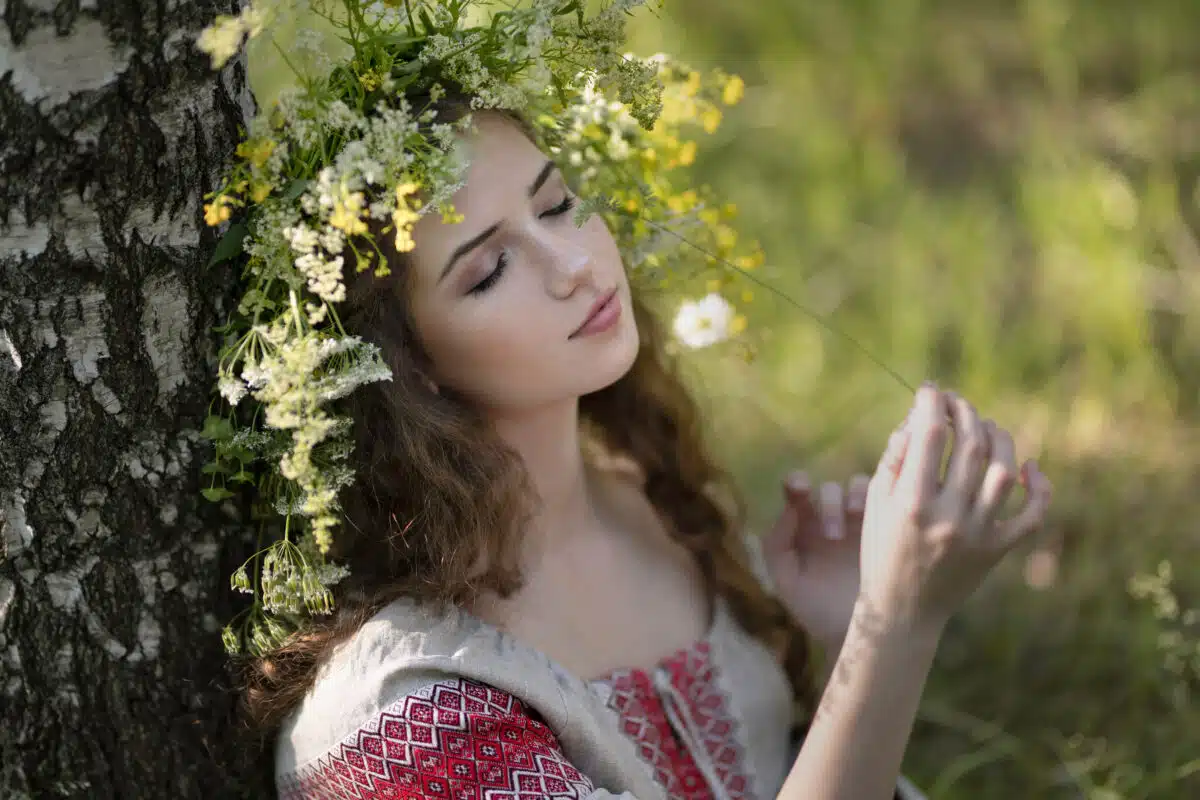
“Death at Daybreak” by Anne Reeve Aldrich
I shall go out when the light comes in—
There lie my cast-off form and face;
I shall pass Dawn on her way to earth,
As I seek for a path through space.
I shall go out when the light comes in;
Would I might take one ray with me!
It is blackest night between the worlds,
And how is a soul to see?
“A Death-Bed” by James Aldrich
Her suffering ended with the day;
Yet lived she at its close,
And breathed the long, long night away,
In statue-like repose.
But when the sun, in all his state,
Illumed the eastern skies,
She passed through glory’s morning-gate,
And walked in Paradise!
“Death” by Robert J. Roe
What can death do to you
That life has not already done?
What do you fear?
It is a gentle falling
Of the light …
A splendor is done.
Twilight … some stars appear
Silently, one by one.
A stranger splendor is begun.
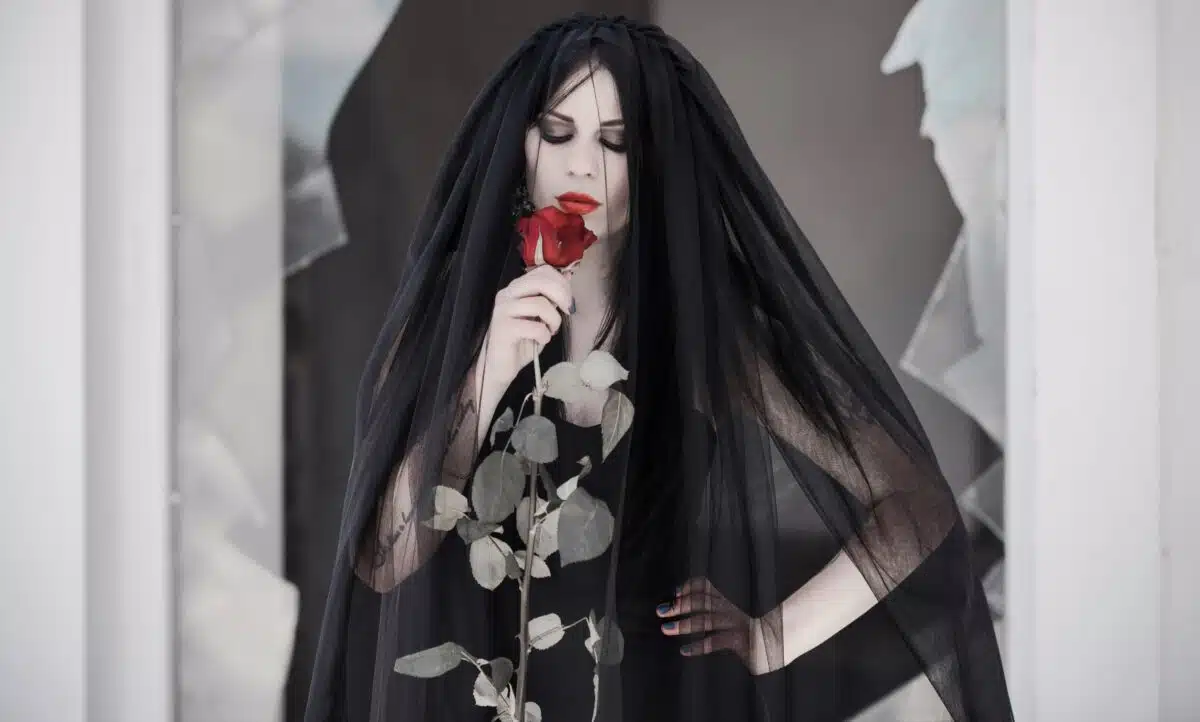
“On the Death of a Pious Lady” by Olof Wexionius (Edmund Gosse, Translator)
The Earthly roses at God’s call have made
Way, lady, for a dress of heavenly white,
In which thou walk’st with other figures bright,
Once loved on earth, who now, like thee arrayed,
Feast on two-fold ambrosia, wine and bread;
They lead thee up by sinuous paths of light
Through lilied fields that sparkle in God’s sight,
And crown thee with delights that never fade.
O thou thrice-sainted mother, in that bliss,
Forget not thy two daughters, whom a kiss
At parting left as sad as thou art glad;
In thy deep joy think how for thee they weep,
Or conjure through the shifting glass of sleep
The saint heaven hath, the mother once they had.
“Whispers of Heavenly Death” by Walt Whitman
Whispers of heavenly death, murmur’d I hear;
Labial gossip of night—sibilant chorals;
Footsteps gently ascending—mystical breezes, wafted soft and low;
Ripples of unseen rivers—tides of a current, flowing, forever flowing;
(Or is it the plashing of tears? the measureless waters of human tears?)
I see, just see, skyward, great cloud-masses;
Mournfully, slowly they roll, silently swelling and mixing;
With, at times, a half-dimm’d, sadden’d, far-off star,
Appearing and disappearing.
(Some parturition, rather—some solemn, immortal birth:
On the frontiers, to eyes impenetrable,
Some Soul is passing over.)
“A Death-Blow Is A Life-Blow To Some” by Emily Elizabeth Dickinson
A death-blow is a life-blow to some
Who, till they died, did not alive become;
Who, had they lived, had died, but when
They died, vitality begun.
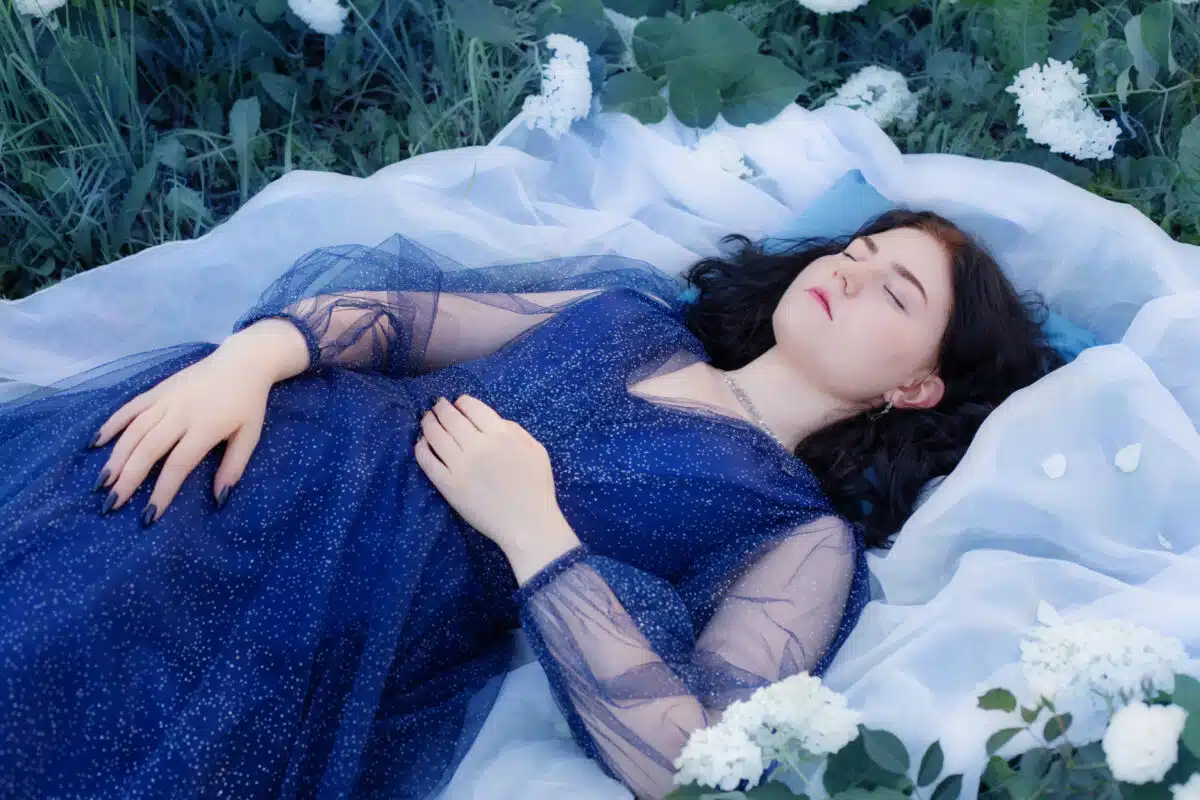
“Disenchantment Of Death” by Madison Julius Cawein
Hush! She is dead! Tread gently as the light
Foots dim the weary room. Thou shalt behold.
Look: – In death’s ermine pomp of awful white,
Pale passion of pulseless slumber virgin cold:
Bold, beautiful youth proud as heroic Might –
Death! and how death hath made it vastly old.
Old earth she is now: energy of birth
Glad wings hath fledged and tried them suddenly;
The eyes that held have freed their narrow mirth;
Their sparks of spirit, which made this to be,
Shine fixed in rarer jewels not of earth,
Far Fairylands beyond some silent sea.
A sod is this whence what were once those eyes
Will grow blue wild-flowers in what happy air;
Some weed with flossy blossoms will surprise,
Haply, what summer with her affluent hair;
Blush roses bask those cheeks; and the wise skies
Will know her dryad to what young oak fair.
The chastity of death hath touched her so,
No dreams of life can reach her in such rest; –
No dreams the mind exhausted here below,
Sleep built within the romance of her breast.
How she will sleep! like musick quickening slow
Dark the dead germs, to golden life caressed.
Low musick, thin as winds that lyre the grass,
Smiting thro’ red roots harpings; and the sound
Of elfin revels when the wild dews glass
Globes of concentric beauty on the ground;
For showery clouds o’er tepid nights that pass
The prayer in harebells and faint foxgloves crowned.
So, if she’s dead, thou know’st she is not dead.
Disturb her not; she lies so lost in sleep:
The too-contracted soul its shell hath fled:
Her presence drifts about us and the deep
Is yet unvoyaged and she smiles o’erhead: –
Weep not nor sigh – thou wouldst not have her weep?
To principles of passion and of pride,
To trophied circumstance and specious law,
Stale saws of life, with scorn now flung aside,
From Mercy’s throne and Justice would’st thou draw
Her, Hope in Hope, and Chastity’s pale bride,
In holiest love of holy, without flaw?
The anguish of the living merciless, –
Mad, bitter cruelty unto the grave, –
Wrings the dear dead with tenfold heart’s distress,
Earth chaining love, bound by the lips that rave.
If thou hast sorrow let thy sorrow bless
That power of death, of death our selfless slave.
“Unjust?” – He is not! for hast thou not all,
All that thou ever hadst when this dull clay
So heartless, blasted now, flushed spiritual,
A restless vassal of Earth’s night and day?
This hath been thine and is; the cosmic call
Hath disenchanted that which might not stay.
Thou unjust! – bar not from its high estate, –
Won with what toil thro’ devastating cares:
What bootless battling with the violent Fate;
What mailed endeavor with resistless years; –
That soul: – whole-hearted granted once thy mate,
Heaven only loaned, return it not with tears!
“A Baby’s Death” by Kate Seymour Maclean
A little white soul went up to God,
Out of the mire of the city street;
It grew like a flower in the highway broad,
Close to the trample of heedless feet.
It fell like a snow-flake over night,
Into the ways by vile ones trod;
It sparkled–dissolved in the morning light,
And the little white soul went up to God.
Dainty, flower-soft, waxen thing,
Its clear eyes opened on this bad earth,
And the little shuddering soul took wing,
By the gate of death, from the gate of birth.
Not for those innocent lips and eyes,
The words and the ways of sin and strife;
The pure flower opened in paradise,
Fast by the banks of the river of life.
Yea, little victors, who never fought;
And crowned, though ye never ran the race,
His blood your innocent lives hath bought,
And ye stand before Him and see His face!
For this, oh Father! we give Thee thanks,
By the little graves, and the tear-wet sod,
They stand before Thee in shining ranks,
And the little white souls are safe with God!
“Death” by Pamela S. Vining
‘Tis but to fold the arms in peace,
To close the tear-dimmed, aching eye,
From sin and suffering to cease,
And wake to sinless life on high.
‘Tis but to leave the dusty way
Our pilgrim feet so long have pressed,
And passon angel-wings away,
Forever with the Lord to rest.
‘Tis but with noiseless step to glide
Behind the curtain’s mystic screen
That from our mortal gaze doth hide
The glories of the world unseen.
Tis but to sleep a passing hour,
Serene as cradled infants sleep;
Then wake in glory and in power,
An endless Sabbath day to keep.
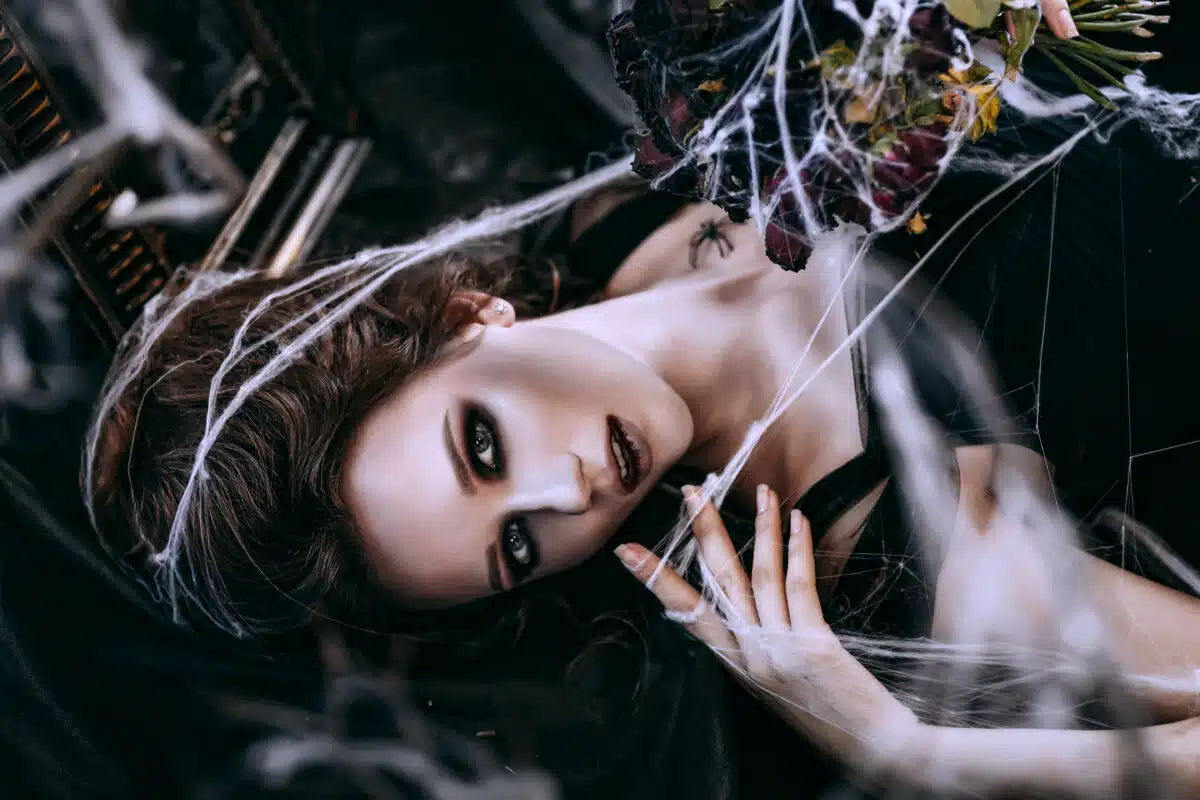
“If Death Is Kind” by Sara Teasdale
Perhaps if Death is kind, and there can be returning,
We will come back to earth some fragrant night,
And take these lanes to find the sea, and bending
Breathe the same honeysuckle, low and white.
We will come down at night to these resounding beaches
And the long gentle thunder of the sea,
Here for a single hour in the wide starlight
We shall be happy, for the dead are free.
“The Death Of The Poor” by Charles Baudelaire
It is Death, alas, persuades us to keep on living:
the goal of life and the only hope we have,
like an elixir, rousing, intoxicating, giving
the strength to march on towards the grave:
through the frost and snow and storm-wind, look
it-s the vibrant light on our black horizon:
the fabulous inn, written of in the book,
where one can eat, and sleep and sit oneself down:
it-s an Angel, who holds in his magnetic beams,
sleep and the gift of ecstatic dreams,
who makes the bed where the poor and naked lie:
it-s the glory of the Gods, the mystic granary,
it-s the poor man-s purse, his ancient country,
it-s the doorway opening on an unknown sky!
“Death” by Eric Mackay
It is the joy, it is the zest of life,
To know that Death, ungainly to the vile,
Is not a traitor with a reckless knife,
And not a serpent with a look of guile,
But one who greets us with a seraph’s smile, –
An angel – guest to tend us after strife,
And keep us true to God when fears are rife,
And sceptic thought would daunt us or defile.
He walks the world as one empower’d to fill
The fields of space for Father and for Son.
He is our friend, though morbidly we shun
His tender touch, – a cure for every ill.
He is the king of peace, when all is done.
Earth and the air are moulded to his will.
Poems About Death and Grief
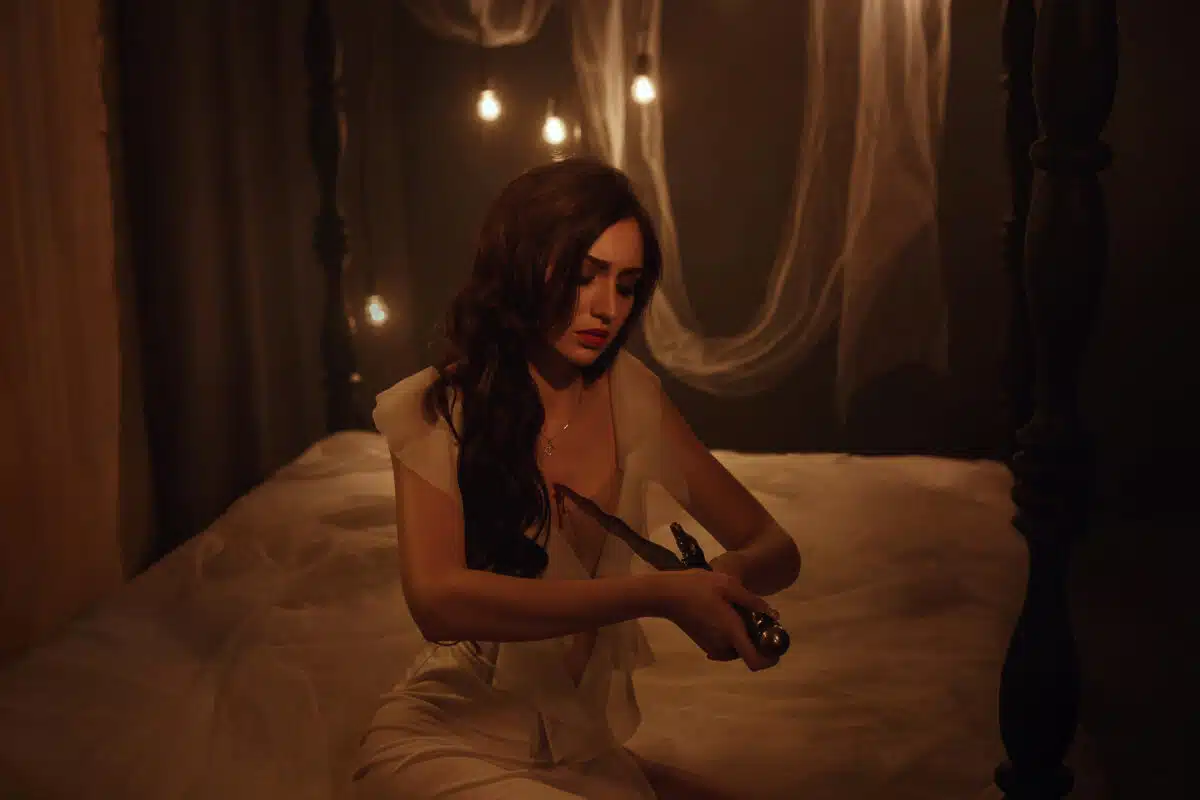
“The Death-Song” by Frances Anne Kemble
Mother, mother! my heart is wild,
Hold me upon your bosom dear,
Do not frown on your own poor child,
Death is darkly drawing near.
Mother, mother! the bitter shame
Eats into my very soul;
And longing love, like a wrapping flame,
Burns me away without control.
Mother, mother! upon my brow
The clammy death-sweats coldly rise;
How dim and strange your features grow
Through the hot mist that veils my eyes.
Mother, mother! sing me the song
They sing on sunny August eves,
The rustling barley fields along,
Binding up the ripe, red sheaves.
Mother, mother! I do not hear
Your voice—but his—oh, guard me well!
His breathing makes me faint with fear,
His clasping arms are round me still.
Mother, mother! unbind my vest,
Upon my heart lies his first token:
Now lay me in my narrow nest,
Your withered blossom, crushed and broken.
“The Sister of Death” by Ameen Rihani
Ah, talk to me of something else, I pray ;
I’m weary of the dreams that bring nor sleep.
Nor rest, nor love, nor something from the deep,
Where buried are the gods of yesterday ;
Ah, talk to me of Death that takes away
My little sorrows, as they hide and peep.
My little joys, as they disport and leap,
My little vanities, my budless May.
The burden of my virtues and my sins.
The burden of authority that grins
At every effort, ah, the burden kills ;
I know that Death a Sister hath, but where.
Where can I find thee. Love, when shall I share
The sweetness of the silence of the hills?
“Death’s Ramble” by Thomas Hood
One day the dreary old King of Death
Inclined for some sport with the carnal,
So he tied a pack of darts on his back,
And quietly stole from his charnel.
His head was bald of flesh and of hair,
His body was lean and lank,
His joints at each stir made a crack, and the cur
Took a gnaw, by the way, at his shank.
And what did he do with his deadly darts,
This goblin of grisly bone?
He dabbled and spill’d man’s blood, and he kill’d
Like a butcher that kills his own.
The first he slaughter’d, it made him laugh,
(For the man was a coffin-maker,)
To think how the mutes, and men in black suits,
Would mourn for an undertaker.
Death saw two Quakers sitting at church,
Quoth he, “We shall not differ.”
And he let them alone, like figures of stone,
For he could not make them stiffer.
He saw two duellists going to fight,
In fear they could not smother;
And he shot one through at once – for he knew
They never would shoot each other.
He saw a watchman fast in his box,
And he gave a snore infernal;
Said Death, “He may keep his breath, for his sleep
Can never be more eternal.”
He met a coachman driving his coach
So slow, that his fare grew sick;
But he let him stray on his tedious way,
For Death only wars on the quick.
Death saw a toll-man taking a toll,
In the spirit of his fraternity;
But he knew that sort of man would extort,
Though summon’d to all eternity.
He found an author writing his life,
But he let him write no further;
For Death, who strikes whenever he likes,
Is jealous of all self-murther!
Death saw a patient that pull’d out his purse,
And a doctor that took the sum;
But he let them be – for he knew that the “fee”
Was a prelude to “faw” and “fum.”
He met a dustman ringing a bell,
And he gave him a mortal thrust;
For himself, by law, since Adam’s flaw,
Is contractor for all our dust.
He saw a sailor mixing his grog,
And he marked him out for slaughter;
For on water he scarcely had cared for Death,
And never on rum-and-water.
Death saw two players playing at cards,
But the game wasn’t worth a dump,
For he quickly laid them flat with a spade,
To wait for the final trump!
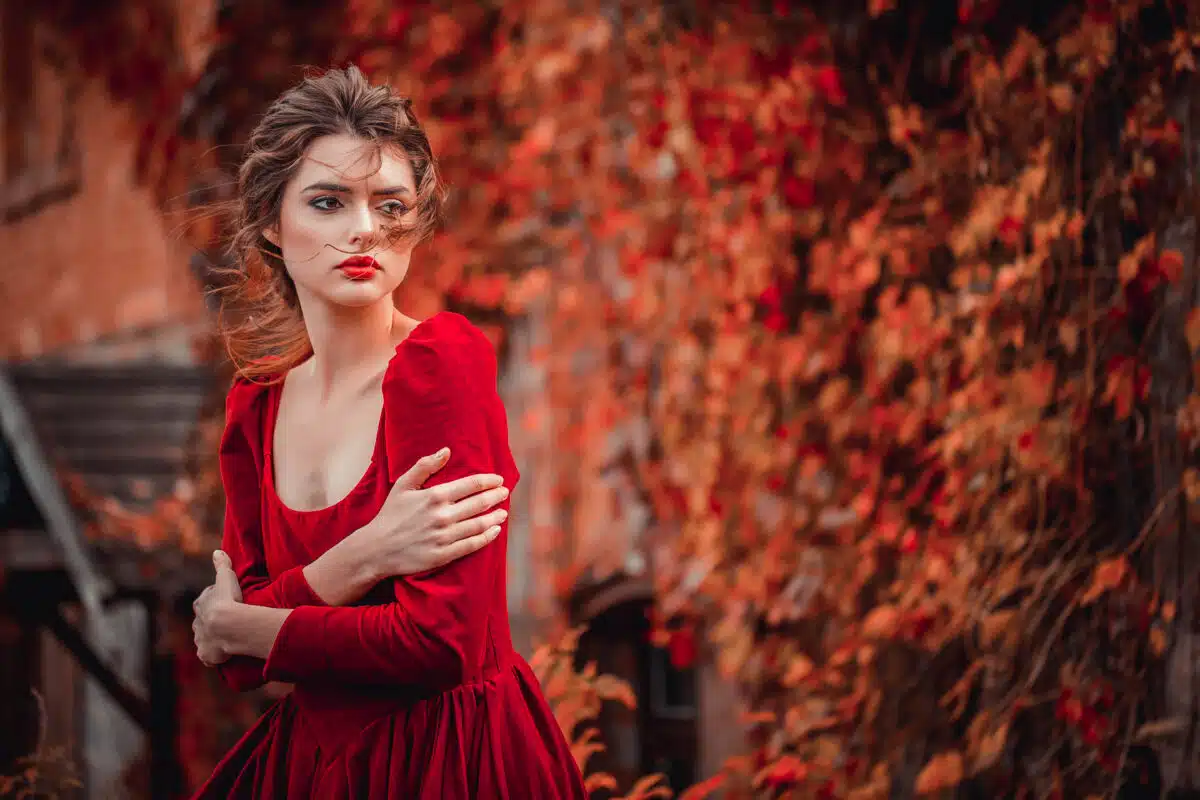
“Waiting For Death” by Michelangelo di Lodovico Buonarroti Simoni
My death must come; but when, I do not know:
Life’s short, and little life remains for me:
Fain would my flesh abide; my soul would flee
Heavenward, for still she calls on me to go.
Blind is the world; and evil here below
O’erwhelms and triumphs over honesty:
The light is quenched; quenched too is bravery:
Lies reign, and truth hath ceased her face to show.
When will that day dawn, Lord, for which he waits
Who trusts in Thee? Lo, this prolonged delay
Destroys all hope and robs the soul of life.
Why streams the light from those celestial gates,
If death prevent the day of grace, and stay
Our souls for ever in the toils of strife?
“It Was Not Death, For I Stood Up” by Emily Elizabeth Dickinson
It was not Death, for I stood up,
And all the Dead, lie down –
It was not Night, for all the Bells
Put out their Tongues, for Noon.
It was not Frost, for on my Flesh
I felt Siroccos – crawl –
Nor Fire – for just my marble feet
Could keep a Chancel, cool –
And yet, it tasted, like them all,
The Figures I have seen
Set orderly, for Burial
Reminded me, of mine –
As if my life were shaven,
And fitted to a frame,
And could not breathe without a key,
And ’twas like Midnight, some –
When everything that ticked – has stopped –
And space stares – all around –
Or Grisly frosts – first Autumn morns,
Repeal the Beating Ground –
But most, like Chaos – Stopless – cool –
Without a Chance, or spar –
Or even a Report of Land –
To justify – Despair.
“Death” by Percy Bysshe Shelley
1.
They die – the dead return not – Misery
Sits near an open grave and calls them over,
A Youth with hoary hair and haggard eye –
They are the names of kindred, friend and lover,
Which he so feebly calls – they all are gone
Fond wretch, all dead! those vacant names alone,
This most familiar scene, my pain –
These tombs – alone remain.
2.
Misery, my sweetest friend – oh, weep no more!
Thou wilt not be consoled – I wonder not!
For I have seen thee from thy dwelling’s door
Watch the calm sunset with them, and this spot
Was even as bright and calm, but transitory,
And now thy hopes are gone, thy hair is hoary;
This most familiar scene, my pain –
These tombs – alone remain
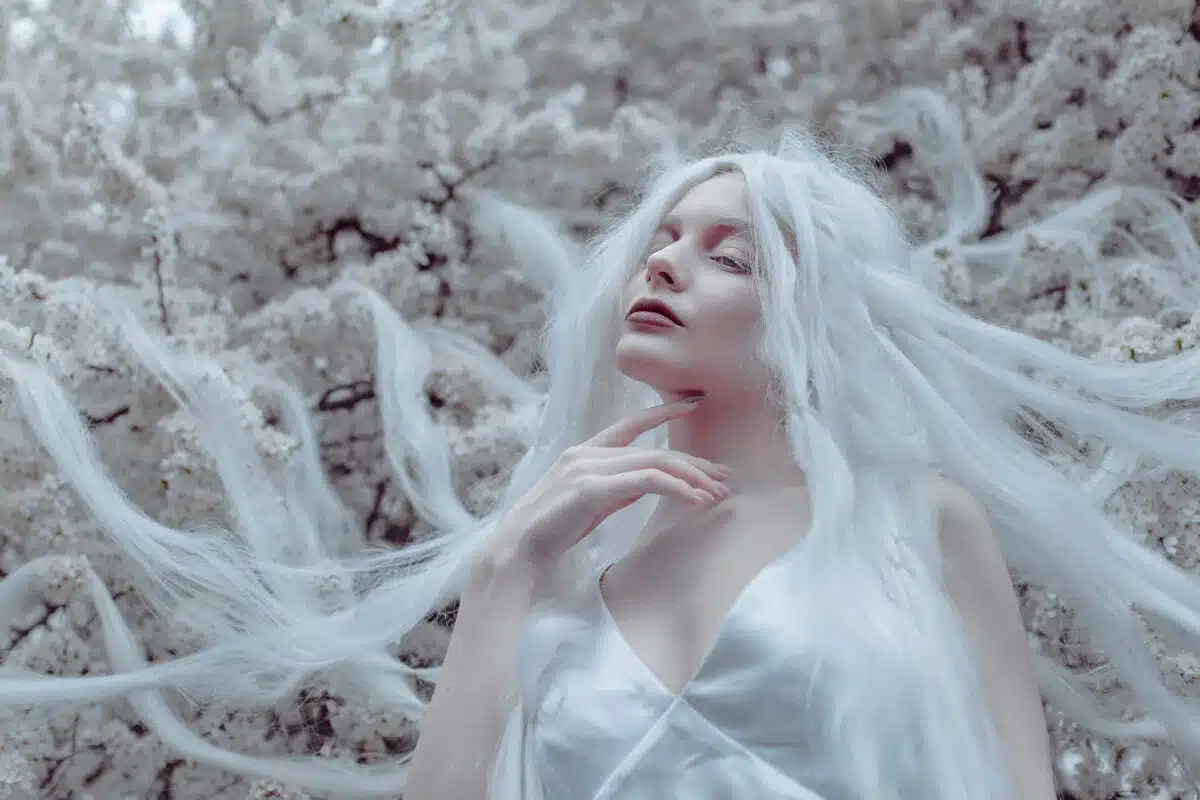
“White Death” by Clark Ashton Smith
Methought the world was bound with final frost;
The sun, made hueless as with fear and awe,
Illumined yet the lands it could not thaw.
Then on my road, with instant evening crost,
Death stood, and in its shadowy films enwound,
Mine eyes forgot the light, until I came
Where poured the inseparate, unshadowed flame
Of phantom suns in self-irradiance drowned.
Death lay revealed in all its haggardness –
Immitigable wastes horizonless;
Profundities that held nor bar nor veil;
All hues wherewith the suns and worlds were dyed
In light invariable nullified;
All darkness rendered shelterless and pale.
“On The Death Of A Lady” by Maria Gowen Brooks
Thy home seemed not of earth – so blest
But there has fall’n a shaft of fate
The dove is stricken; and the nest
She warmed and cheered is desolate.
But fairest not for thee, we mourn:
Blest from thy birth, thou still art so
The tear must dew thine early urn
For him whom thou hast taught to know
The zest of joys – complete, as knows
Thy vital flame, the pang that tost
And changed thee past, where now it glows
Knowing, yet feeling all is lost.
There is a flower of tender white
And, on its spotless bosom, play
The moon’s soft beams, one lovely night;
But when appears the morning ray
‘Tis shut and withered – even now
Around your lime I see it wave;
‘Tis pure, and fresh, and fair, as thou
And sinks in beauty to its grave.
“Death At The Window” by Robert Fuller Murray
This morning, while we sat in talk
Of spring and apple-bloom,
Lo! Death stood in the garden walk,
And peered into the room.
Your back was turned, you did not see
The shadow that he made.
He bent his head and looked at me;
It made my soul afraid.
The words I had begun to speak
Fell broken in the air.
You saw the pallor of my cheek,
And turned–but none was there.
He came as sudden as a thought,
And so departed too.
What made him leave his task unwrought?
It was the sight of you.
Though Death but seldom turns aside
From those he means to take,
He would not yet our hearts divide,
For love and pity’s sake.
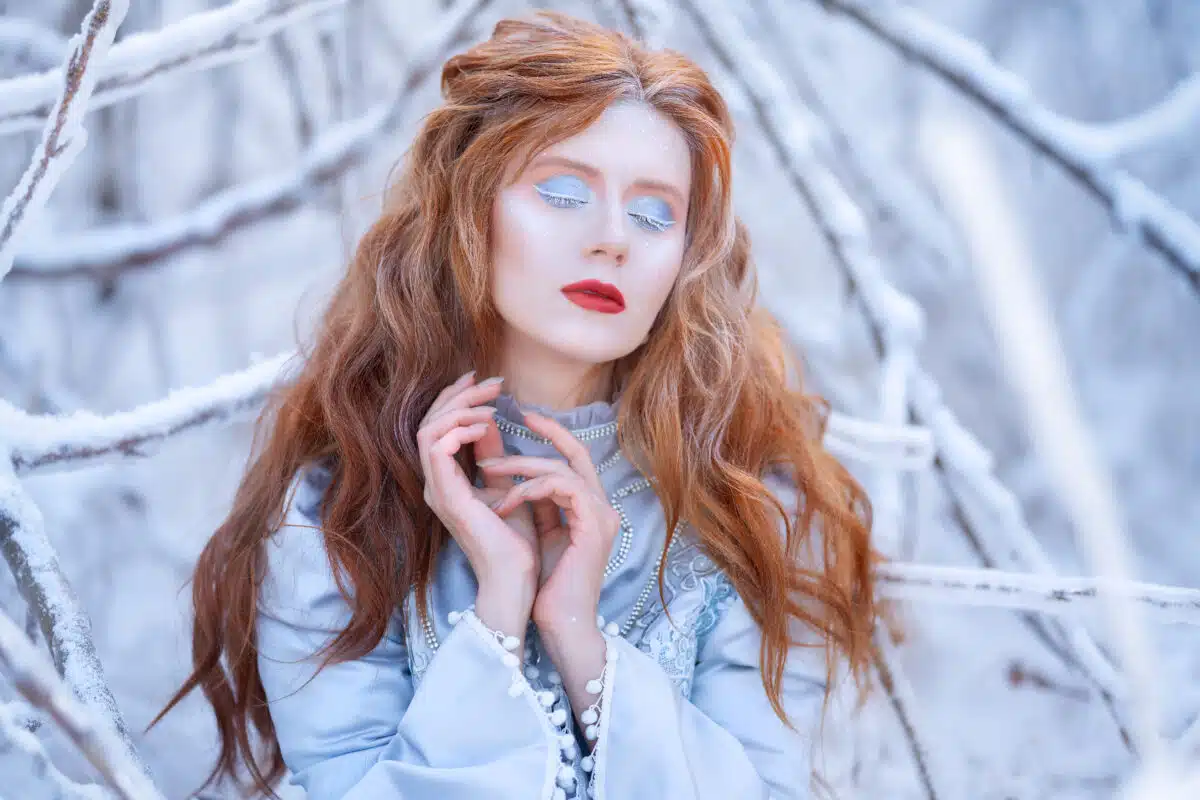
“Death.” by Emily Bronte
Death! that struck when I was most confiding.
In my certain faith of joy to be,
Strike again, Time’s withered branch dividing
From the fresh root of Eternity!
Leaves, upon Time’s branch, were growing brightly,
Full of sap, and full of silver dew;
Birds beneath its shelter gathered nightly;
Daily round its flowers the wild bees flew.
Sorrow passed, and plucked the golden blossom;
Guilt stripped off the foliage in its pride
But, within its parent’s kindly bosom,
Flowed for ever Life’s restoring tide.
Little mourned I for the parted gladness,
For the vacant nest and silent song,
Hope was there, and laughed me out of sadness;
Whispering, “Winter will not linger long!”
And, behold! with tenfold increase blessing,
Spring adorned the beauty-burdened spray;
Wind and rain and fervent heat, caressing,
Lavished glory on that second May!
High it rose, no winged grief could sweep it;
Sin was scared to distance with its shine;
Love, and its own life, had power to keep it
From all wrong, from every blight but thine!
Cruel Death! The young leaves droop and languish;
Evening’s gentle air may still restore,
No! the morning sunshine mocks my anguish-
Time, for me, must never blossom more!
Strike it down, that other boughs may flourish
Where that perished sapling used to be;
Thus, at least, its mouldering corpse will nourish
That from which it sprung, Eternity.
“Life in Death” by Algernon Charles Swinburne
He should have followed who goes forth before us,
Last born of us in life, in death first-born:
The last to lift up eyes against the morn,
The first to see the sunset. Life, that bore us
Perchance for death to comfort and restore us,
Of him hath left us here awhile forlorn,
For him is as a garment overworn,
And time and change, with suns and stars in chorus,
Silent. But if, beyond all change or time,
A law more just, more equal, more sublime
Than sways the surge of life’s loud sterile sea
Sways that still world whose peace environs him,
Where death lies dead as night when stars wax dim,
Above all thought or hope of ours is he.
“Death” by John Clare
Why should man’s high aspiring mind
Burn in him with so proud a breath,
When all his haughty views can find
In this world yields to death?
The fair, the brave, the vain, the wise,
The rich, the poor, the great, and small,
Are each but worm’s anatomies
To strew his quiet hall.
Power may make many earthly gods,
Where gold and bribery’s guilt prevails,
But death’s unwelcome, honest odds
Kick o’er the unequal scales.
The flattered great may clamours raise
Of power, and their own weakness hide,
But death shall find unlooked-for ways
To end the farce of pride,
An arrow hurtled eer so high,
From een a giant’s sinewy strength,
In Time’s untraced eternity
Goes but a pigmy length;
Nay, whirring from the tortured string,
With all its pomp of hurried flight,
Tis by the skylark’s little wing
Outmeasured in its height.
Just so man’s boasted strength and power
Shall fade before death’s lightest stroke,
Laid lower than the meanest flower,
Whose pride oer-topt the oak;
And he who, like a blighting blast,
Dispeopled worlds with war’s alarms
Shall be himself destroyed at last
By poor despised worms.
Tyrants in vain their powers secure,
And awe slaves’ murmurs with a frown,
For unawed death at last is sure
To sap the babels down.
A stone thrown upward to the sky
Will quickly meet the ground agen;
So men-gods of earth’s vanity
Shall drop at last to men;
And Power and Pomp their all resign,
Blood-purchased thrones and banquet halls.
Fate waits to sack Ambition’s shrine
As bare as prison walls,
Where the poor suffering wretch bows down
To laws a lawless power hath passed;
And pride, and power, and king, and clown
Shall be Death’s slaves at last.
Time, the prime minister of Death!
There’s nought can bribe his honest will.
He stops the richest tyrant’s breath
And lays his mischief still.
Each wicked scheme for power all stops,
With grandeurs false and mock display,
As eve’s shades from high mountain tops
Fade with the rest away.
Death levels all things in his march;
Nought can resist his mighty strength;
The palace proud, triumphal arch,
Shall mete its shadow’s length.
The rich, the poor, one common bed
Shall find in the unhonoured grave,
Where weeds shall crown alike the head
Of tyrant and of slave.
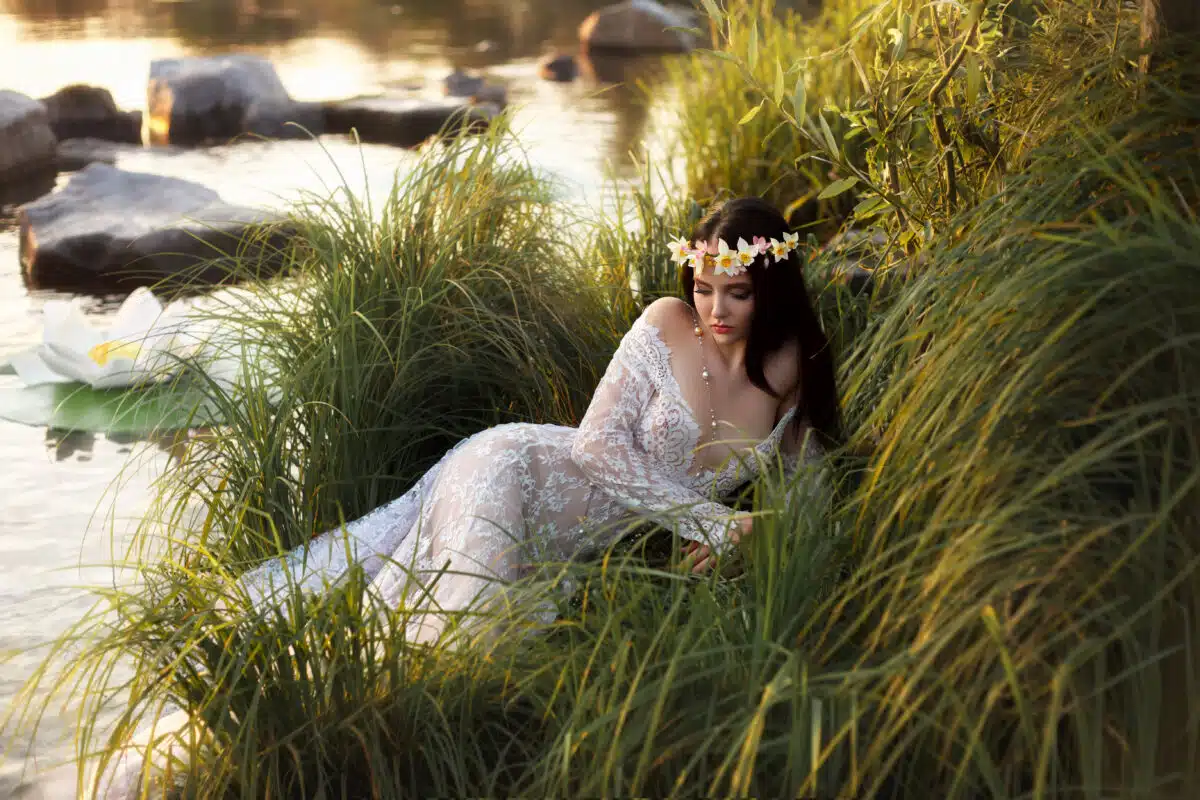
“Death” by Percy Bysshe Shelley
1.
Death is here and death is there,
Death is busy everywhere,
All around, within, beneath,
Above is death – and we are death.
2.
Death has set his mark and seal
On all we are and all we feel,
On all we know and all we fear,
3.
First our pleasures die – and then
Our hopes, and then our fears – and when
These are dead, the debt is due,
Dust claims dust – and we die too.
4.
All things that we love and cherish,
Like ourselves must fade and perish;
Such is our rude mortal lot –
Love itself would, did they not.
“Night and Death” by Elizabeth H. Whittier
The Storm-Wind is howling
Through old pines afar;
The drear night is falling
Without moon or star.
The roused sea is lashing
The bold shore behind,
And the moan of its ebbing
Keeps time with the wind.
On, on through the darkness,
A spectre, I pass
Where, like moaning of broken hearts,
Surges the grass!
I see her lone head-stone,—
’T is white as a shroud;
Like a pall, hangs above it
The low drooping cloud.
Who speaks through the dark night
And lull of the wind?
’T is the sound of the pine-leaves
And sea-waves behind.
The dead girl is silent,—
I stand by her now;
And her pulse beats no quicker,
Nor crimsons her brow.
The small hand that trembled,
When last in my own,
Lies patient and folded,
And colder than stone.
Like the white blossoms falling
To-night in the gale,
So she in her beauty
Sank mournful and pale.
Yet I loved her! I utter
Such words by her grave,
As I would not have spoken
Her last breath to save.
Of her love the angels
In heaven might tell,
While mine would be whispered
With shudders in hell!
’T was well that the white ones
Who bore her to bliss
Shut out from her new life
The vision of this;
Else, sure as I stand here,
And speak of my love,
She would leave for my darkness
Her glory above.
“To Death” by Robert Herrick
Thou bid’st me come away,
And I’ll no longer stay
Than for to shed some tears
For faults of former years,
And to repent some crimes
Done in the present times:
And next, to take a bit
Of bread, and wine with it:
To don my robes of love,
Fit for the place above;
To gird my loins about
With charity throughout;
And so to travel hence
With feet of innocence:
These done, I’ll only cry
God mercy, and so die.
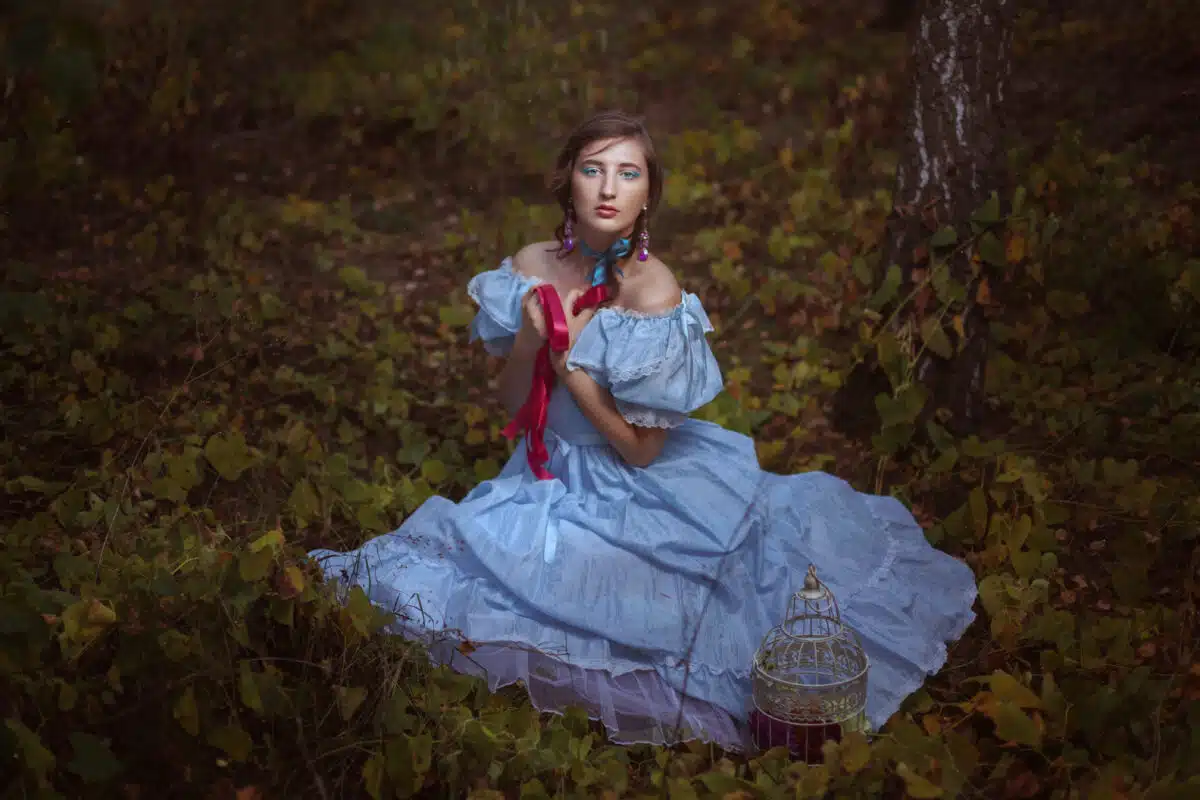
“A Woman’s Death Wound” by Helen Hunt Jackson
It left upon her tender flesh no trace.
The murderer is safe. As swift as light
The weapon fell, and, in the summer night,
Did scarce the silent, dewy air displace;
’Twas but a word. A blow had been less base.
Like dumb beast branded by an iron white
With heat, she turned in blind and helpless flight,
But then remembered, and with piteous face,
Came back.
Since then, the world has nothing missed
In her in voice, or smile; but she—each day
She counts until her dying be complete.
One moan she makes, and ever doth repeat:
“O lips which I have loved and kissed and kissed,
Did I deserve to die this bitterest way?”
“Vain Death” by Archibald T. Strong
All the first night she might not weep
But watched till morning came,
And when she slept at dawn, she heard
The dead man call her name.
The second night she watched and wept
And called on death for grace,
And when she slept before the dawn
She saw the dead man’s face.
The third night through she laughed as one
That knows her way to bliss,
And in the instant ere she slept
She felt the dead man’s kiss.
She rose and faced the flickering fire
(And oh, but she was fair!),
Like a wild witch behind her danced
The shadow of her hair.
She took her penknife from its sheath,
The tender blade she kissed,
And by the firelight’s dying leap
She bared her little wrist.
And where the vein ran large and blue
She cut, once and again,
Yet ere she swooned from life, she knew
Her death had been in vain.
For while life thundered in her ears,
Ere yet her pulse might fail,
Far off across the kindless night
She heard the dead man’s wail,
And knew her doom was one with theirs
That kill the life God gave,
And that she might not leave this earth
Her soul alive to save,
But ay must dwell within that house
As in a living grave,
While he for whom she died might ne’er
Win to her in that place,
But must for ever make his moan
Ranging in agony alone
The trackless void of space.
“By On the Death of a Child” by Hugo Terberg
Dear child, now you have gone to sleep so gently:
You smile in peace.
Your little boat sails into port contently;
Your day must cease.
The happy frolics with your dolls are over,
Your merry play;
The flowers you loved—the daisies, poppies, clover—
All fade away.
There stands your rocking-horse for you to ride it:
You ride no more!
No school work—ah, you never could abide it!—
Makes your heart sore.
Your sister in the lonely yard is straying
With heavy heart.
She waits for you no longer: in her playing
You have no part.
You lie as if in dreams—sweet calm about you:
Dream on, dream on …
Grieve not because the children play without you,
When you are gone.
We cannot long be playing games so gaily,
Dear child, I know:
Upon the rough wide road of life—ah, daily
Rude winds must blow.
To go through life means fighting hard and grieving
With wounded breast …
He who can part as child, his frolics leaving,
Is truly blessed.
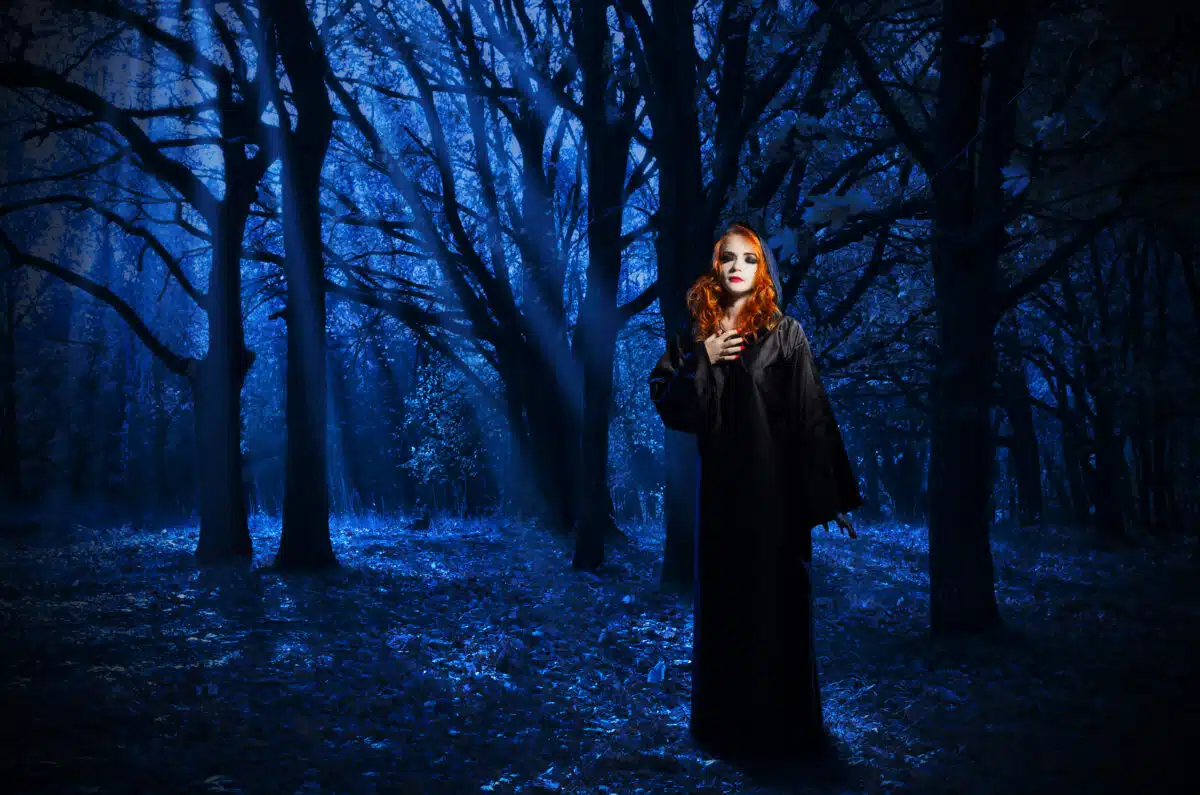
“Death and Night” by James Benjamin Kenyon
The bearded grass waves in the summer breeze;
The sunlight sleeps along the distant hills;
Faint is the music of the murmuring rills,
And faint the drowsy piping of the bees.
The languid leaves scarce stir upon the trees,
And scarce is heard the clangor of the mills
In the far distance, and the high, sharp trills
Of the cicada die upon the leas.
O death, what art thou? Hast thou peace like this?
Or, underneath the daisies, out of sight,
Hast thou in keep some higher, calmer bliss?
Ah me! ’t is pleasant to behold the light,
And missing this, O death, would we not miss
That weariness which makes us love the night?
“The Soldier’s Death” by Anne, Countess of Winchilsea
Trail all your pikes, dispirit every drum,
March in a slow procession from afar,
Ye silent, ye dejected men of war!
Be still the hautboys, and the flute be dumb!
Display no more, in vain, the lofty banner;
For see! where on the bier before ye lies
The pale, the fall’n, the untimely sacrifice
To your mistaken shrine, to your false idol Honour.
“Death” by Madison Cawein
Through some strange sense of sight or touch
I find what all have found before,
The presence I have feared so much,
The unknown’s immaterial door.
I seek not and it comes to me;
The do not know the thing I find:
The fillet of fatality
Drops from my brows that made me blind.
Point forward now or backward, light!
The way I take I may not choose:
Out of the night into the night,
And in the night no certain clews.
But on the future, dim and vast,
And dark with dust and sacrifice,
Death’s towering ruin from the past
Makes black the land that round me lies.

“The Secret of Death” by Sir Edwin Arnold
“She is dead!” they said to him; “come away;
Kiss her and leave her,—thy love is clay!”
They smoothed her tresses of dark brown hair;
On her forehead of stone they laid it fair;
Over her eyes that gazed too much
They drew the lids with a gentle touch;
With a tender touch they closed up well
The sweet thin lips that had secrets to tell;
About her brows and beautiful face
They tied her veil and her marriage-lace,
And drew on her white feet her white silk shoes—
Which were the whitest no eye could choose!
And over her bosom they crossed her hands.
“Come away!” they said; “God understands!”
And there was silence, and nothing there
But silence, and scents of eglantere,
And jasmine, and roses, and rosemary;
And they said, “As a lady should lie, lies she.”
And they held their breath till they left the room,
With a shudder, to glance at its stillness and gloom.
But he who loved her too well to dread
The sweet, the stately, the beautiful dead,
He lit his lamp and took the key
And turned it. Alone again—he and she!
He and she; but she would not speak,
Though he kissed, in the old place, the quiet cheek.
He and she; yet she would not smile,
Though he called her the name she loved ere-while.
He and she; still she did not move
To any one passionate whisper of love.
Then he said: “Cold lips, and breasts without breath,
Is there no voice, no language of death,
“Dumb to the ear and still to the sense,
But to heart and to soul distinct, intense?
“See now; I will listen with soul, not ear;
What was the secret of dying, dear?
“Was it the infinite wonder of all
That you ever could let life’s flower fall?
“Or was it a greater marvel to feel
The perfect calm o’er the agony steal?
“Was the miracle greater to find how deep
Beyond all dreams sank downward that sleep?
“Did life roll back its records, dear,
And show, as they say it does, past things clear?
“And was it the innermost heart of the bliss
To find out, so, what a wisdom love is?
“O perfect dead! O dead most dear,
I hold the breath of my soul to hear!
“I listen as deep as to horrible hell,
As high as to heaven, and you do not tell.
“There must be pleasure in dying, sweet,
To make you so placid from head to feet!
“I would tell you, darling, if I were dead,
And ’t were your hot tears upon my brow shed,—
“I would say, though the angel of death had laid
His sword on my lips to keep it unsaid.
“You should not ask vainly, with streaming eyes,
Which of all death’s was the chiefest surprise,
“The very strangest and suddenest thing
Of all the surprises that dying must bring.”
Ah, foolish world! O, most kind dead!
Though he told me, who will believe it was said?
Who will believe that he heard her say,
With a sweet, soft voice, in the dear old way:
“The utmost wonder is this,—I hear,
And see you, and love you, and kiss you, dear;
“And am your angel, who was your bride,
And know that, though dead, I have never died.”
“The Poet’s Death” by Sir Walter Scott
Call it not vain:—they do not err,
Who say, that when the poet dies,
Mute nature mourns her worshipper,
And celebrates his obsequies;
Who say tall cliff, and cavern lone,
For the departed bard make moan;
That mountains weep in crystal rill;
That flowers in tears of balm distill;
Through his loved groves that breezes sigh
And oaks, in deeper groan, reply;
And rivers teach their rushing wave
To murmur dirges round his grave.
Not that, in sooth, o’er mortal urn
Those things inanimate can mourn;
But that the stream, the wood, the gale,
Is vocal with the plaintive wail
Of those, who, else forgotten long,
Lived in the poet’s faithful song,
And, with the poet’s parting breath,
Whose memory feels a second death.
The maid’s pale shade, who wails her lot,
That love, true love, should be forgot,
From rose and hawthorn shakes the tear
Upon the gentle minstrel’s bier:
The phantom knight, his glory fled,
Mourns o’er the field he heaped with dead
Mounts the wild blast that sweeps amain,
And shrieks along the battle-plain:
The chief, whose antique crownlet long
Still sparkled in the feudal song,
Now, from the mountain’s misty throne,
Sees, in the thanedom once his own,
His ashes undistinguished lie,
His place, his power, his memory die:
His groans the lonely caverns fill,
His tears of rage impel the rill;
All mourn the minstrel’s harp unstrung,
Their name unknown, their praise unsung.
“There is no death” by J. L. McCreery
There is no death! the stars go down
To rise upon some other shore,
And bright in heaven’s jewelled crown
They shine forever more.
There is no death! the forest leaves
Convert to life the viewless air;
The rocks disorganize to feed
The hungry moss they bear.
There is no death! the dust we tread
Shall change, beneath the summer showers,
To golden grain, or mellow fruit,
Or rainbow-tinted flowers.
There is no death! the leaves may fall,
The flowers may fade and pass away—
They only wait, through wintry hours,
The warm sweet breath of May.
There is no death! the choicest gifts
That heaven hath kindly lent to earth
Are ever first to seek again
The country of their birth.
And all things that for growth of joy
Are worthy of our love or care,
Whose loss has left us desolate,
Are safely garnered there.
Though life become a dreary waste,
We know its fairest, sweetest flowers,
Transplanted into paradise,
Adorn immortal bowers.
The voice of bird-like melody
That we have missed and mourned so long
Now mingles with the angel choir
In everlasting song.
There is no death! although we grieve
When beautiful, familiar forms
That we have learned to love are torn
From our embracing arms;
Although with bowed and breaking heart,
With sable garb and silent tread,
We bear their senseless dust to rest,
And say that they are “dead.”
They are not dead! they have but passed
Beyond the mists that blind us here
Into the new and larger life
Of that serener sphere.
They have but dropped their robe of clay
To put their shining raiment on;
They have not wandered far away—
They are not “lost” or “gone.”
Though disenthralled and glorified,
They still are here and love us yet;
The dear ones they have left behind
They never can forget.
And sometimes, when our hearts grow faint
Amid temptations fierce and deep,
Or when the wildly raging waves
Of grief or passion sweep,
We feel upon our fevered brow
Their gentle touch, their breath of balm;
Their arms enfold us, and our hearts
Grow comforted and calm.
And ever near us, though unseen,
The dear, immortal spirits tread;
For all the boundless universe
Is life—there are no dead.

“To Death” by Anonymous
Methinks it were no pain to die
On such an eve, when such a sky
O’er-canopies the west;
To gaze my fill on yon calm deep,
And, like an infant, fall asleep
On Earth, my mother’s breast.
There ’s peace and welcome in yon sea
Of endless blue tranquillity:
These clouds are living things;
I trace their veins of liquid gold,
I see them solemnly unfold
Their soft and fleecy wings.
These be the angels that convey
Us weary children of a day—
Life’s tedious nothing o’er—
Where neither passions come, nor woes,
To vex the genius of repose
On Death’s majestic shore.
No darkness there divides the sway
With startling dawn and dazzling day;
But gloriously serene
Are the interminable plains:
One fixed, eternal sunset reigns
O’er the wide silent scene.
I cannot doff all human fear;
I know thy greeting is severe
To this poor shell of clay:
Yet come, O Death! thy freezing kiss
Emancipates! thy rest is bliss!
I would I were away!
“Death” by Elfrida De Renne Barrow
Driftwood am I,
And oblivion seems like the sea
That comes creeping, creeping
Nearer to me.
Some day a wave
Will pass all the others by,
And come lapping, lapping
To where I lie.
Then on the tide
I shall be taken out to sea,
Until nothing, nothing
Is left of me.
“A Picture of Death” by Lord Byron
He who hath bent him o’er the dead
Ere the first day of death is fled,
The first dark day of nothingness,
The last of danger and distress,
(Before Decay’s effacing fingers
Have swept the lines where beauty lingers,)
And marked the mild angelic air,
The rapture of repose, that ’s there,
The fixed yet tender traits that streak
The languor of the placid cheek,
And—but for that sad shrouded eye,
That fires not, wins not, weeps not now,
And but for that chill, changeless brow,
Where cold Obstruction’s apathy
Apalls the gazing mourner’s heart,
As if to him it could impart
The doom he dreads, yet dwells upon;
Yes, but for these and these alone,
Some moments, ay, one treacherous hour,
He still might doubt the tyrant’s power;
So fair, so calm, so softly sealed,
The first, last look by death revealed!
Such is the aspect of this shore;
’T is Greece, but living Greece no more!
So coldly sweet, so deadly fair,
We start, for soul is wanting there.
Hers is the loveliness in death,
That parts not quite with parting breath;
But beauty with that fearful bloom,
That hue which haunts it to the tomb,
Expression’s last receding ray,
A gilded halo hovering round decay,
The farewell beam of Feeling past away;
Spark of that flame, perchance of heavenly birth,
Which gleams, but warms no more its cherished earth!
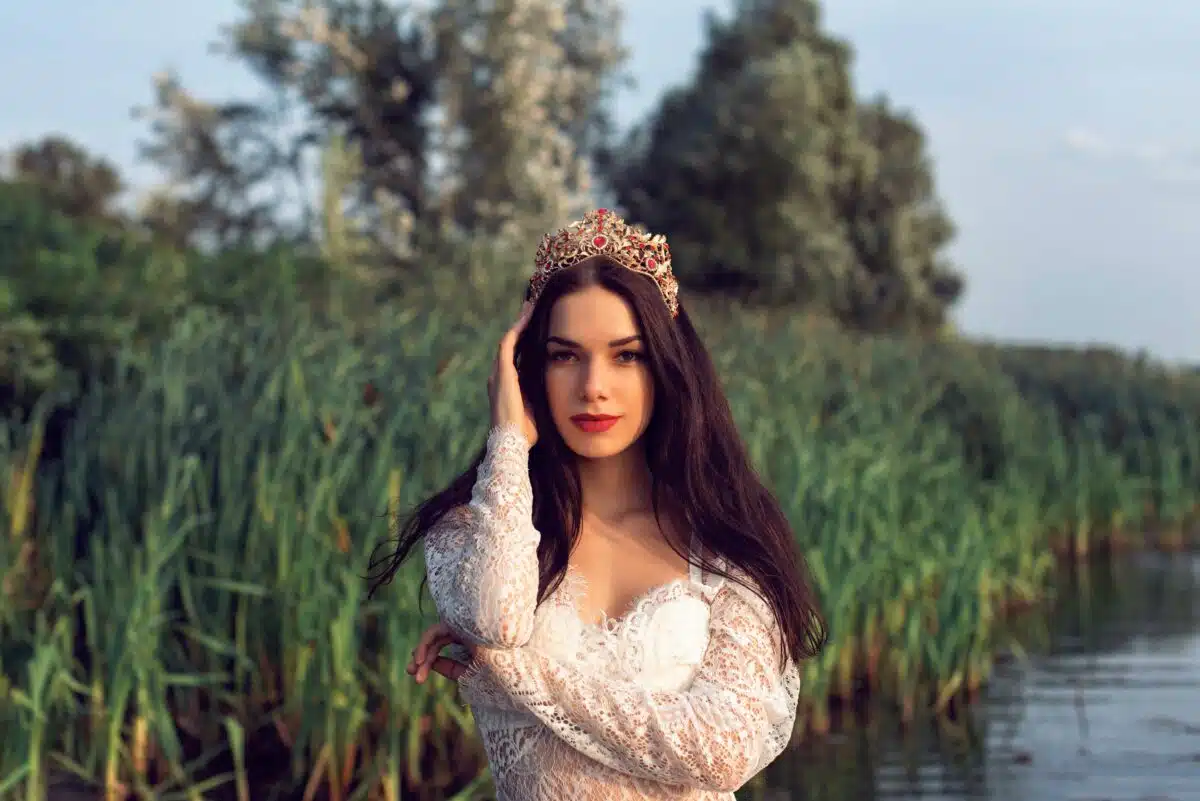
“Death’s Emissaries” by James Shirley
Victorious men of earth, no more
Proclaim how wide your empires are;
Though you bind on every shore
And your triumphs reach as far
As night or day,
Yet you, proud monarchs, must obey
And mingle with forgotten ashes, when
Death calls ye to the crowd of common men.
Devouring Famine, Plague, and War,
Each able to undo mankind,
Death’s servile emissaries are;
Nor to these alone confined,
He hath at will
More quaint and subtle ways to kill;
A smile or kiss, as he will use the art,
Shall have the cunning skill to break a heart.
“Shameful Death” by William Morris
There were four of us about that bed;
The mass-priest knelt at the side,
I and his mother stood at the head,
Over his feet lay the bride;
We were quite sure that he was dead,
Though his eyes were open wide.
He did not die in the night,
He did not die in the day,
But in the morning twilight
His spirit pass’d away,
When neither sun nor moon was bright,
And the trees were merely grey.
He was not slain with the sword,
Knight’s axe, or the knightly spear,
Yet spoke he never a word
After he came in here;
I cut away the cord
From the neck of my brother dear.
He did not strike one blow,
For the recreants came behind,
In the place where the hornbeams grow,
A path right hard to find,
For the hornbeam boughs swing so,
That the twilight makes it blind.
They lighted a great torch then,
When his arms were pinion’d fast,
Sir John the Knight of the Fen,
Sir Guy of the Dolorous Blast,
With knights threescore and ten,
Hung brave Lord Hugh at last.
I am threescore and ten,
And my hair is all turn’d grey,
But I met Sir John of the Fen,
Long ago on a summer day,
And am glad to think of the moment when
I took his life away.
I am threescore and ten,
And my strength is mostly pass’d,
But long ago I and my men,
When the sky was overcast,
And the smoke roll’d over the reeds of the fen,
Slew Guy of the Dolorous Blast.
And now, knights all of you,
I pray you pray for Sir Hugh,
A good knight and a true,
And for Alice, his wife, pray too.
“The Death of Puck” by Eugene Lee-Hamilton
I
I fear that Puck is dead,—it is so long
Since men last saw him;—dead with all the rest
Of that sweet elfin crew that made their nest
In hollow nuts, where hazels sing their song;
Dead and for ever, like the antique throng
The elves replaced: the Dryad that you guess’d
Behind the leaves; the Naiad weed-bedress’d;
The leaf-ear’d Faun that loved to lead you wrong.
Tell me, thou hopping Robin, hast thou met
A little man, no bigger than thyself,
Whom they call Puck, where woodland bells are wet?
Tell me, thou Wood-Mouse, hast thou seen an elf
Whom they call Puck, and is he seated yet,
Capp’d with a snail-shell, on his mushroom shelf?
II
The Robin gave three hops, and chirp’d, and said:
‘Yes, I knew Puck, and loved him; though I trow
He mimick’d oft my whistle, chuckling low;
Yes, I knew cousin Puck; but he is dead.
We found him lying on his mushroom bed—
The Wren and I,—half cover’d up with snow,
As we were hopping where the berries grow.
We think he died of cold. Ay, Puck is fled.’
And then the Wood-Mouse said: ‘We made the Mole
Dig him a little grave beneath the moss,
And four big Dormice placed him in the hole.
The Squirrel made with sticks a little cross;
Puck was a Christian elf, and had a soul;
And all we velvet jackets mourn his loss.’
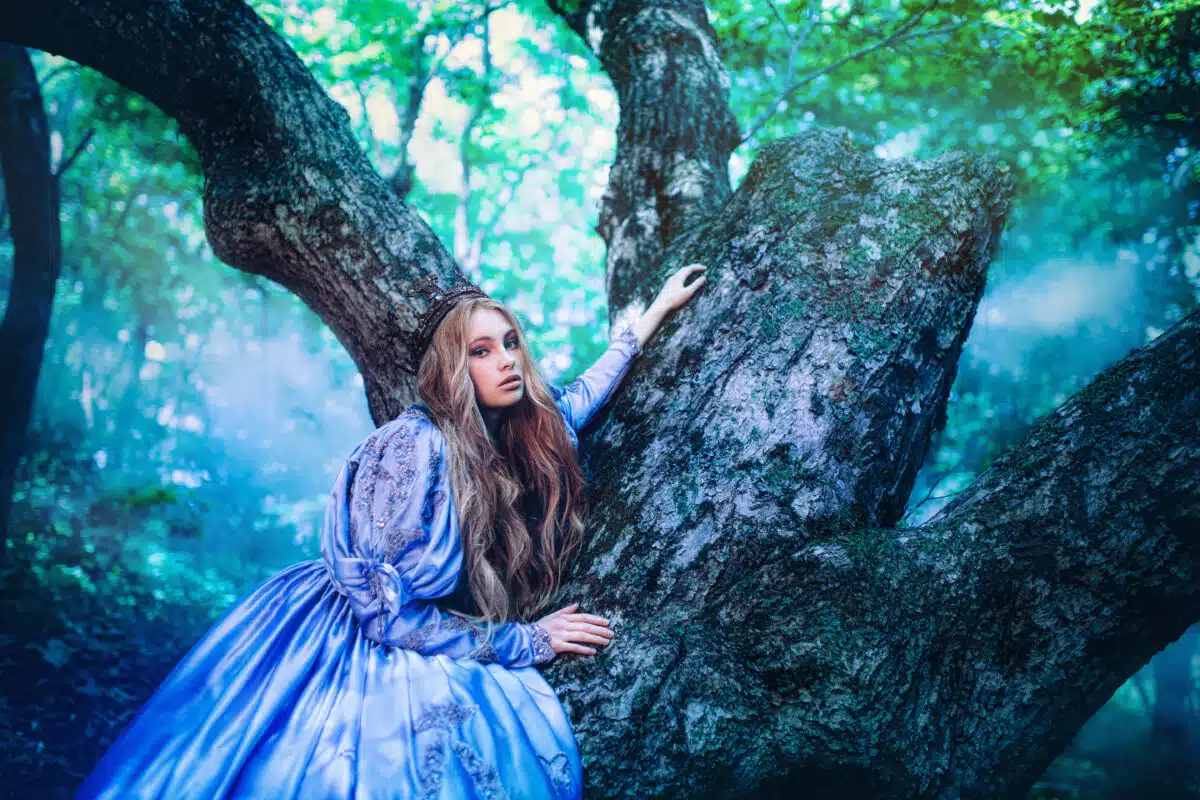
“Death Goes before Me” by Yvor Winters
Death goes before me on his hands and knees,
And we go down among the bending trees.
Weeping I go, and no man gives me ease—
I am that strange thing that each strange eye sees;
Eyes of the silence, and all life an eye,
Turn in the wind; and always I walk by.
Too still I go, and all things go from me
As down far autumn beaches a man runs to the sea.
My hands are cold, my lips are thin and dumb.
Stillness is like the beating of a drum.
“Death Song” by Robert Stephen Hawker
There lies a cold corpse upon the sands
Down by the rolling sea;
Close up the eyes and straighten the hands
As a Christian man’s should be.
Bury it deep, for the good of my soul,
Six feet below the ground;
Let the sexton come and the death-bell toll
And good men stand around.
Lay it among the churchyard stones,
Where the priest hath bless’d the clay:
I cannot leave the unburied bones,
And I fain would go my way.
Poems About Death and Dying

“Death” by Thomas Hood
It is not death, that sometime in a sigh
This eloquent breath shall take its speechless flight;
That sometime these bright stars, that now reply
In sunlight to the sun, shall set in night;
That this warm conscious flesh shall perish quite,
And all life’s ruddy springs forget to flow;
That thoughts shall cease, and the immortal sprite
Be lapp’d in alien clay and laid below;
It is not death to know this—but to know
That pious thoughts, which visit at new graves
In tender pilgrimage, will cease to go
So duly and so oft—and when grass waves
Over the pass’d-away, there may be then
No resurrection in the minds of men.
“Death And The Dying” by Jean de La Fontaine
Death never taketh by surprise
The well-prepared, to wit, the wise –
They knowing of themselves the time
To meditate the final change of clime.
That time, alas! embraces all
Which into hours and minutes we divide;
There is no part, however small,
That from this tribute one can hide.
The very moment, oft, which bids
The heirs of empire see the light
Is that which shuts their fringd lids
In everlasting night.
Defend yourself by rank and wealth,
Plead beauty, virtue, youth, and health, –
Unblushing Death will ravish all;
The world itself shall pass beneath his pall.
No truth is better known; but, truth to say,
No truth is oftener thrown away.
A man, well in his second century,
Complain’d that Death had call’d him suddenly;
Had left no time his plans to fill,
To balance books, or make his will.
‘O Death,’ said he, ‘d’ ye call it fair,
Without a warning to prepare,
To take a man on lifted leg?
O, wait a little while, I beg.
My wife cannot be left alone;
I must set out my nephew’s son,
And let me build my house a wing,
Before you strike, O cruel king!’
‘Old man,’ said Death, ‘one thing is sure, –
My visit here’s not premature.
Hast thou not lived a century!
Darest thou engage to find for me?
In Paris’ walls two older men
Has France, among her millions ten?
Thou say’st I should have sent thee word
Thy lamp to trim, thy loins to gird,
And then my coming had been meet –
Thy will engross’d,
Thy house complete!
Did not thy feelings notify?
Did not they tell thee thou must die?
Thy taste and hearing are no more;
Thy sight itself is gone before;
For thee the sun superfluous shines,
And all the wealth of Indian mines;
Thy mates I’ve shown thee dead or dying.
What’s this, indeed, but notifying?
Come on, old man, without reply;
For to the great and common weal
It doth but little signify
Whether thy will shall ever feel
The impress of thy hand and seal.’
And Death had reason, – ghastly sage!
For surely man, at such an age,
Should part from life as from a feast,
Returning decent thanks, at least,
To Him who spread the various cheer,
And unrepining take his bier;
For shun it long no creature can.
Repinest thou, grey-headed man?
See younger mortals rushing by
To meet their death without a sigh –
Death full of triumph and of fame,
But in its terrors still the same. –
But, ah! my words are thrown away!
Those most like Death most dread his sway.
“To Death” by Caroline Southey
Come not in terrors clad, to claim
An unresisting prey:
Come like an evening shadow, Death!
So stealthily, so silently!
And shut mine eyes, and steal my breath;
Then willingly, O willingly,
With thee I’ll go away!
What need to clutch with iron grasp
What gentlest touch may take?
What need with aspect dark to scare,
So awfully, so terribly,
The weary soul would hardly care,
Call’d quietly, call’d tenderly,
From thy dread power to break?
‘Tis not as when thou markest out
The young, the blest, the gay,
The loved, the loving—they who dream
So happily, so hopefully;
Then harsh thy kindest call may seem,
And shrinkingly, reluctantly,
The summon’d may obey.
But I have drunk enough of life—
The cup assign’d to me
Dash’d with a little sweet at best,
So scantily, so scantily—
To know full well that all the rest
More bitterly, more bitterly,
Drugg’d to the last will be.
And I may live to pain some heart
That kindly cares for me:
To pain, but not to bless. O Death!
Come quietly—come lovingly—
And shut mine eyes, and steal my breath;
Then willingly, O willingly,
I’ll go away with thee!
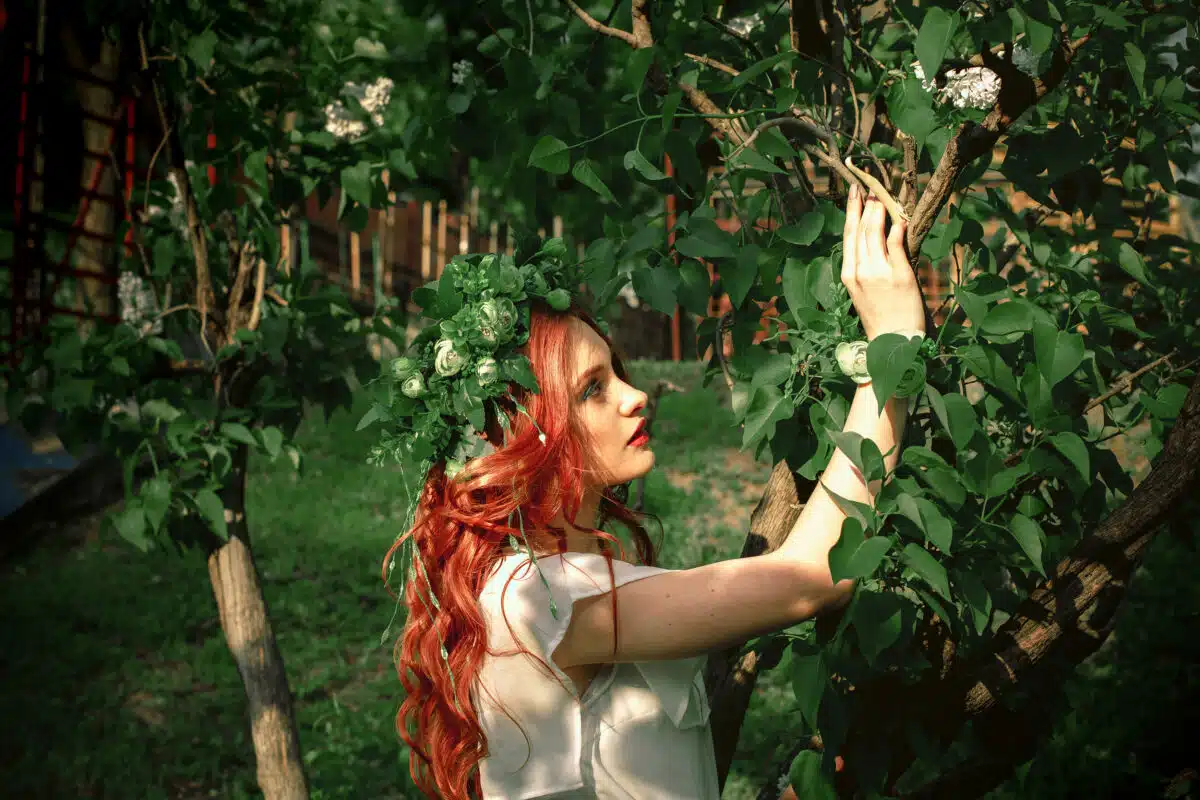
“The Death Watch” by Mary Carolyn Davies
A tree falls in the blast,
The other trees are sighing;
Fast burn the candles—fast.
She is long dying.
A flower fades in the sun,
The other flowers are weeping;
See! Dawn’s at last begun.
Dead—or but sleeping?
A star falls, tired from flight,
The other stars are flying;
It is o’erpast, the night—
She is long dying.
“On His Own Death” by Walter Savage Landor
Death stands above me, whispering low
I know not what into my ear:
Of his strange language all I know
Is, there is not a word of fear.
“Death A Song” by Thomas Flatman
O the sad day!
When friends shall shake their heads, and say
Of miserable me—
‘Hark, how he groans!
Look, how he pants for breath!
See how he struggles with the pangs of death!’
When they shall say of these dear eyes—
‘How hollow, O how dim they be!
Mark how his breast doth rise and swell
Against his potent enemy!’
When some old friend shall step to my bedside,
Touch my chill face, and thence shall gently slide,
And—when his next companions say
‘How does he do? What hopes?’—shall turn away,
Answering only, with a lift-up hand—
‘Who can his fate withstand?’
Then shall a gasp or two do more
Then e’er my rhetoric could before:
Persuade the world to trouble me no more!
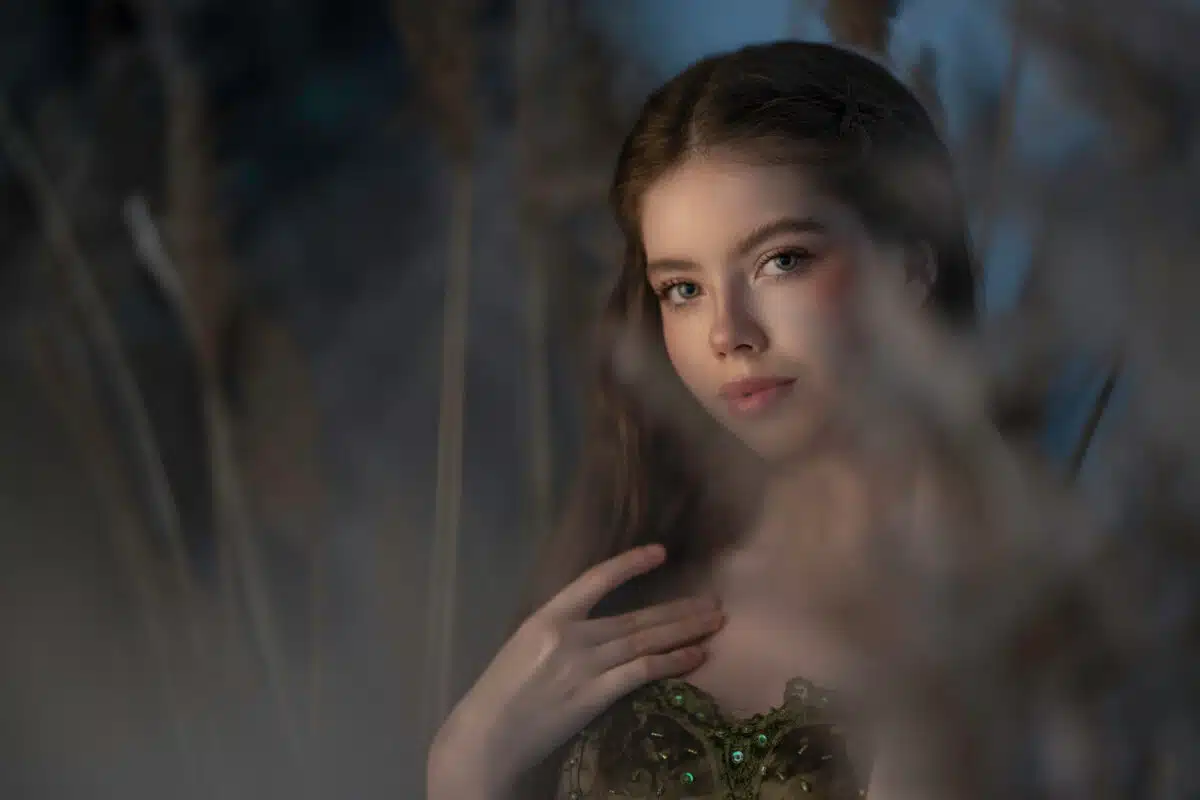
“Song on Death” by Pearl Andelson
Death comes inexorably. His pale deft hand
Is never still. Swift and impalpable
He comes, taking what he will. Life is a circle
Which has gone its round. He tarries
Where old women sit, peering at the ground.
“A Night-Piece on Death” by Thomas Parnell
By the blue taper’s trembling light,
No more I waste the wakeful night,
Intent with endless view to pore
The schoolmen and the sages o’er:
Their books from wisdom widely stray,
Or point at best the longest way.
I’ll seek a readier path, and go
Where wisdom’s surely taught below.
How deep yon azure dyes the sky,
Where orbs of gold unnumbered lie,
While through their ranks in silver pride
The nether crescent seems to glide!
The slumbering breeze forgets to breathe
The lake is smooth and clear beneath,
Where once again the spangled show
Descends to meet our eyes below.
The grounds which on the right aspire,
In dimness from the view retire:
The left presents a place of graves,
Whose wall the silent water laves.
That steeple guides thy doubtful sight
Among the livid gleams of night.
There pass, with melancholy state,
By all the solemn heaps of fate,
And think, as softly-sad you tread
Above the venerable dead,
‘Time was, like thee they life possest,
And time shall be, that thou shalt rest.’
Those graves, with bending osier bound,
That nameless heave the crumbled ground
Quick to the glancing thought disclose,
Where toil and poverty repose.
The flat smooth stones that bear a name,
The chisel’s slender help to fame,
(Which ere our set of friends decay
Their frequent steps may wear away,)
A middle race of mortals own,
Men, half ambitious, all unknown.
The marble tombs that rise on high,
Whose dead in vaulted arches lie,
Whose pillars swell with sculptured stones,
Arms, angels, epitaphs, and bones,
These, all the poor remains of state,
Adorn the rich, or praise the great,
Who, while on earth in fame they live,
Are senseless of the fame they give.
Hah! while I gaze, pale Cynthia fades,
The bursting earth unveils the shades!
All slow, and wan, and wrapped with shrouds,
They rise in visionary crowds,
And all with sober accents cry,
‘Think, mortal, what it is to die.’
Now from yon black and funeral yew,
That bathes the charnel-house with dew,
Methinks I hear a voice begin;
(Ye ravens, cease your croaking din;
Ye tolling clocks, no time resound
O’er the long lake and midnight ground!)
It sends a peal of hollow groans,
Thus speaking from among the bones.
‘When men my scythe and darts supply,
How great a king of fears am I!
They view me like the last of things:
They make, and then they dread, my stings.
Fools! if you less provoked your fears,
No more my spectre form appears.
Death’s but a path that must be trod,
If man would ever pass to God;
A port of calms, a state of ease
From the rough rage of swelling seas.
‘Why then thy flowing sable stoles,
Deep pendant cypress, mourning poles,
Loose scarfs to fall athwart thy weeds,
Long palls, drawn hearses, covered steeds,
And plumes of black, that, as they tread,
Nod o’er the scutcheons of the dead?
‘Nor can the parted body know,
Nor wants the soul, these forms of woe
As men who long in prison dwell,
With lamps that glimmer round the cell,
Whene’er their suffering years are run,
Spring forth to greet the glittering sun:
Such joy, though far transcending sense,
Have pious souls at parting hence.
On earth, and in the body placed,
A few, and evil years they waste;
But when their chains are cast aside
See the glad scene unfolding wide,
Clap the glad wing, and tower away,
And mingle with the blaze of day.’
“The Lonely Death” by Adelaide Crapsey
In the cold I will rise, I will bathe
In waters of ice; myself
Will shiver, and shrive myself,
Alone in the dawn, and anoint
Forehead and feet and hands;
I will shutter the windows from light,
I will place in their sockets the four
Tall candles and set them a-flame
In the grey of the dawn; and myself
Will lay myself straight in my bed,
And draw the sheet under my chin.

“Soliloquy on Death” by William Shakespeare
Hamlet.—To be, or not to be,—that is the question:—
Whether ’t is nobler in the mind to suffer
The slings and arrows of outrageous fortune,
Or to take arms against a sea of troubles,
And, by opposing, end them?—To die, to sleep;—
No more; and, by a sleep, to say we end
The heart-ache, and the thousand natural shocks
That flesh is heir to,—’t is a consummation
Devoutly to be wished. To die,—to sleep;—
To sleep! perchance to dream:—ay, there ’s the rub;
For in that sleep of death what dreams may come,
When we have shuffled off this mortal coil,
Must give us pause: there ’s the respect
That makes calamity of so long life;
For who would bear the whips and scorns of time,
The oppressor’s wrong, the proud man’s contumely,
The pains of despised love, the law’s delay,
The insolence of office, and the spurns
That patient merit of the unworthy takes,
When he himself might his quietus make
With a bare bodkin? who would fardels bear,
To grunt and sweat under a weary life,
But that the dread of something after death,—
The undiscovered country, from whose bourn
No traveller returns,—puzzles the will,
And makes us rather bear those ills we have,
Than fly to others that we know not of?
Thus conscience does make cowards of us all;
And thus the native hue of resolution
Is sicklied o’er with the pale cast of thought;
And enterprises of great pith and moment,
With this regard, their currents turn awry,
And lose the name of action.
“The Trooper’s Death” by Georg Herwegh
The Weary night is o’er at last!
We ride so still, we ride so fast!
We ride where Death is lying.
The morning wind doth coldly pass,
Landlord! we ’ll take another glass,
Ere dying.
Thou, springing grass, that art so green,
Shall soon be rosy red, I ween,
My blood the hue supplying!
I drink the first glass, sword in hand,
To him who for the Fatherland
Lies dying!
Now quickly comes the second draught,
And that shall be to freedom quaffed
While freedom’s foes are flying!
The rest, O land, our hope and faith!
We ’d drink to thee with latest breath,
Though dying!
My darling!—ah, the glass is out!
The bullets ring, the riders shout—
No time for wine or sighing!
There! bring my love the shattered glass—
Charge! On the foe! no joys surpass
Such dying!
“Wounded to Death” by John Whitaker Watson
Steady, boys, steady!
Keep your arms ready,
God only knows whom we may meet here.
Don’t let me be taken;
I ’d rather awaken,
To-morrow, in—no matter where,
Than lie in that foul prison-hole—over there.
Step slowly!
Speak lowly!
These rocks may have life.
Lay me down in this hollow;
We are out of the strife.
By heavens! the foemen may track me in blood,
For this hole in my breast is outpouring a flood.
No! no surgeon for me; he can give me no aid;
The surgeon I want is pickaxe and spade.
What, Morris, a tear? Why, shame on ye, man!
I thought you a hero; but since you began
To whimper and cry like a girl in her teens,
By George! I don’t know what the devil it means!
Well! well! I am, rough; ’t is a very rough school,
This life of a trooper,—but yet I ’m no fool!
I know a brave man, and a friend from a foe;
And, boys, that you love me I certainly know;
But wasn’t it grand
When they came down the hill over sloughing and sand!
But we stood—did we not?—like immovable rock,
Unheeding their balls and repelling their shock.
Did you mind the loud cry
When, as turning to fly,
Our men sprang upon them, determined to die?
O, wasn’t it grand!
God help the poor wretches that fell in that fight;
No time was there given for prayer or for flight;
They fell by the score, in the crash, hand to hand,
And they mingled their blood with the sloughing and sand.
Huzza!
Great Heavens! this bullet-hole gapes like a grave;
A curse on the aim of the traitorous knave!
Is there never a one of ye knows how to pray,
Or speak for a man as his life ebbs away?
Pray!
Pray!
Our Father! our Father!… why don’t ye proceed?
Can’t you see I am dying? Great God, how I bleed!
Ebbing away!
Ebbing away!
The light of day
Is turning to gray.
Pray!
Pray!
Our Father in Heaven,—boys, tell me the rest,
While I stanch the hot blood from this hole in my breast.
There ’s something about the forgiveness of sin—
Put that in! put that in!—and then
I ’ll follow your words and say an amen.
Here, Morris, old fellow, get hold of my hand;
And, Wilson, my comrade—O, wasn’t it grand
When they came down the hill like a thunder-charged cloud!
Where ’s Wilson, my comrade?— Here, stoop down your head;
Can’t you say a short prayer for the dying and dead!
“Christ God, who died for sinners all,
Hear thou this suppliant wanderer’s cry;
Let not e’en this poor sparrow fall
Unheeded by thy gracious eye.
“Throw wide thy gates to let him in,
And take him, pleading, to thine arms;
Forgive, O Lord! his life-long sin,
And quiet all his fierce alarms.”
God bless you, my comrade, for saying that hymn;
It is light to my path when my eye has grown dim.
I am dying—bend down till I touch you once more—
Don’t forget me, old fellow,—God prosper this war!
Confusion to traitors!—keep hold of my hand—
And float the OLD FLAG o’er a prosperous land!
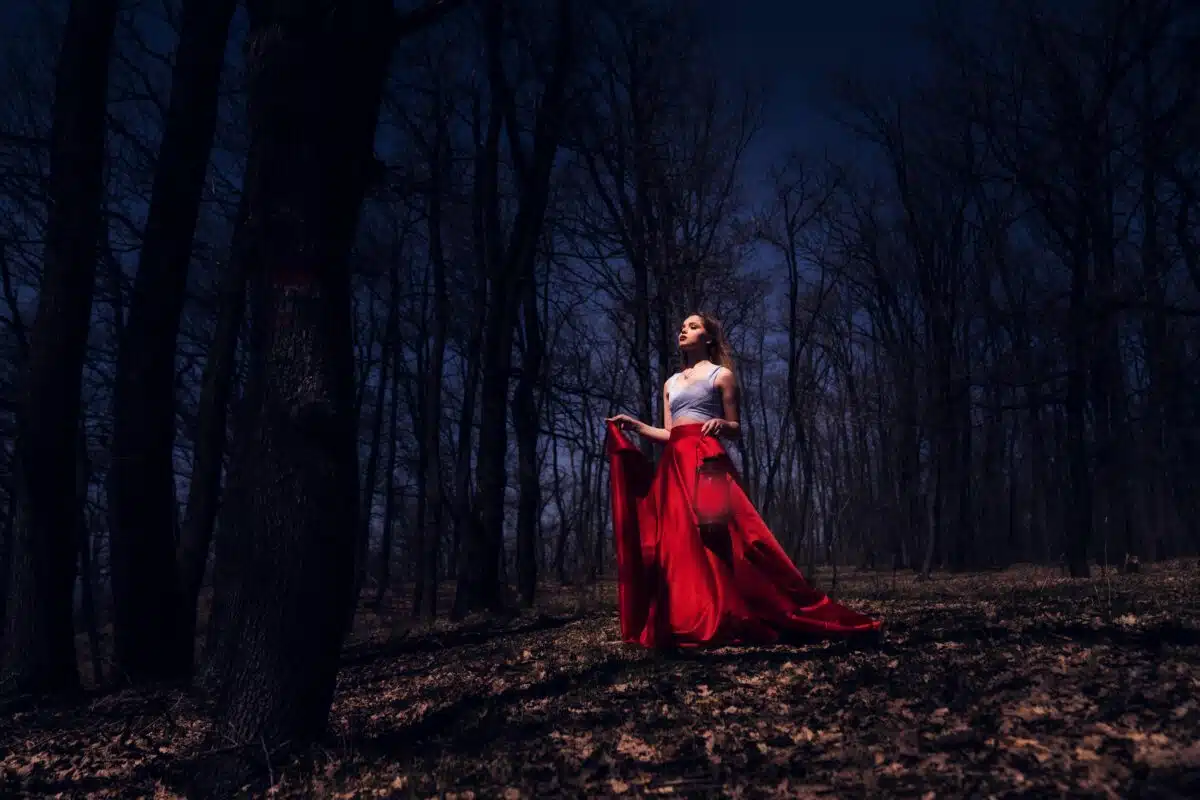
“To Death” by Caroline (Bowles) Southey
Come not in terrors clad, to claim
An unresisting prey:
Come like an evening shadow, Death!
So stealthily, so silently!
And shut mine eyes, and steal my breath;
Then willingly—oh! willingly,
With thee I’ll go away.
What need to clutch with iron grasp
What gentlest touch may take?
What need, with aspect dark, to scare,
So awfully, so terribly,
The weary soul would hardly care,
Called quietly, called tenderly,
From thy dread power to break?
’Tis not as when thou markest out
The young, the blest, the gay,
The loved, the loving—they who dream
So happily, so hopefully;
Then harsh thy kindest call may seem,
And shrinkingly, reluctantly,
The summoned may obey.
But I have drunk enough of life—
The cup assigned to me
Dashed with a little sweet at best,
So scantily, so scantily—
To know full well that all the rest,
More bitterly, more bitterly,
Drugged to the last will be.
And I may live to pain some heart
That kindly cares for me—
To pain, but not to bless. O Death!
Come quietly—come lovingly,
And shut mine eyes, and steal my breath;
Then willingly—oh! willingly,
With thee I’ll go away.
“To Death” by Anne, Countess of Winchilsea
O King of Terrors, whose unbounded sway
All that have life, must certainly obey,
The King, the Priest, the Prophet, all are thine,
Nor wou’d ev’n God (in flesh) thy stroke decline.
My name is on thy roll, and sure I must
Encrease thy gloomy kingdom in the dust.
My soul at this no apprehension feels,
But trembles at thy swords, thy racks, thy wheels;
Thy scorching fevers, which distract the sense,
And snatch us raving, unprepar’d from hence;
At thy contagious darts, that wound the heads
Of weeping friends, who wait at dying beds.
Spare these, and let thy time be when it will;
My bus’ness is to dye, and thine to kill.
Gently thy fatal sceptre on me lay,
And take to thy cold arms, insensibly, thy prey.
“Death And The Fool” by Madison Julius Cawein
Here is a tale for any man or woman:
A fool sought Death; and braved him with his bauble
Among the graves. At last he heard a hobble,
And something passed him, monstrous, super-human.
And by a tomb, that reared a broken column,
He heard it stop. And then Gargantuan laughter
Shattered the hush. Deep silence followed after,
Filled with the stir of bones, cadaverous, solemn.
Then said the fool:’Come! show thyself, old prancer!
I’ll have a bout with thee. I, too, can clatter
My wand and motley. Come now! Death and Folly,
See who’s the better man.’ There was no answer;
Only his bauble broke; a serious matter
To the poor fool who died of melancholy.
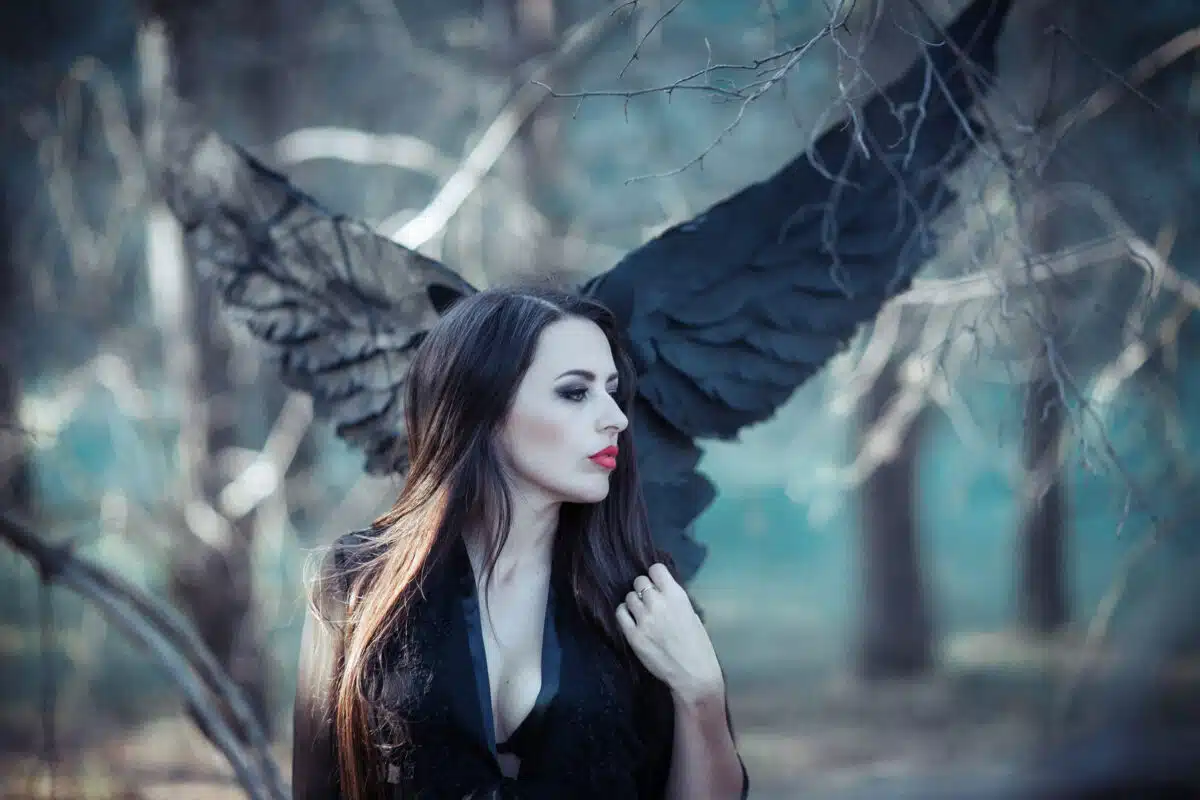
“The Death-Angel” by Ludwig Uhland (Matilda Dickson, Translator)
How is it with the dying, who can say?
Yet wondrously it seized me yesternight,
My limbs already sank in death’s cold might,
Within my breast the last pulse ebbed away:
Upon my spirit fell a strange dismay;
The mind, that ever felt securely bright,
Now flickering low, now fanned again to light,
Its feeble flame to every wind a prey!
Say, was it but an evil dream to prove me?
The lark sings loud, the rosy morn is glowing,
And new desire to stirring life doth move me;—
Or passed indeed the pale Death-angel here?
These flowers that yesternight were freshly blowing
Now from their stalks hang withered, dead, and sere.
“A Death Song” by James Weldon Johnson
Lay me down beneaf de willers in de grass,
Whah de branch’ll go a-singin’ as it pass
An’ w’en I’s a-layin’ low,
I kin hyeah it as it go
Singin’, “Sleep, my honey, tek yo’ res’ at las’.”
Lay me nigh to whah hit meks a little pool,
An’ de watah stan’s so quiet lak an’ cool,
Whah de little birds in spring,
Ust to come an’ drink an’ sing,
An’ de chillen waded on dey way to school.
Let me settle w’en my shouldahs draps dey load
Nigh enough to hyeah de noises in de road;
Fu’ I t’ink de las’ long res’
Gwine to soothe my sperrit bes’
If I’s layin’ ’mong de t’ings I’s allus knowed.
“His Meditation Upon Death” by Robert Herrick
Be those few hours, which I have yet to spend,
Blest with the meditation of my end;
Though they be few in number, I’m content;
If otherwise, I stand indifferent,
Nor makes it matter, Nestor’s years to tell,
If man lives long, and if he live not well.
A multitude of days still heaped on
Seldom brings order, but confusion.
Might I make choice, long life should be with-stood;
Nor would I care how short it were, if good;
Which to effect, let ev’ry passing bell
Possess my thoughts, next comes my doleful knell;
And when the night persuades me to my bed,
I’ll think I’m going to be buried;
So shall the blankets which come over me
Present those turfs, which once must cover me;
And with as firm behaviour I will meet
The sheet I sleep in, as my winding-sheet.
When Sleep shall bathe his body in mine eyes,
I will believe, that then my body dies;
And if I chance to wake, and rise thereon,
I’ll have in mind my resurrection,
Which must produce me to that Gen’ral Doom,
To which the peasant, so the prince must come,
To hear the Judge give sentence on the Throne,
Without the least hope of affection.
Tears, at that day, shall make but weak defense,
When Hell and horror fright the conscience.
Let me, though late, yet at the last, begin
To shun the least temptation to a sin;
Though to be tempted be no sin, until
Man to th’alluring object gives his will.
Such let my life assure me, when my breath
Goes thieving from me, I am safe in death;
Which is the height of comfort, when I fall,
I rise triumphant in my funeral.
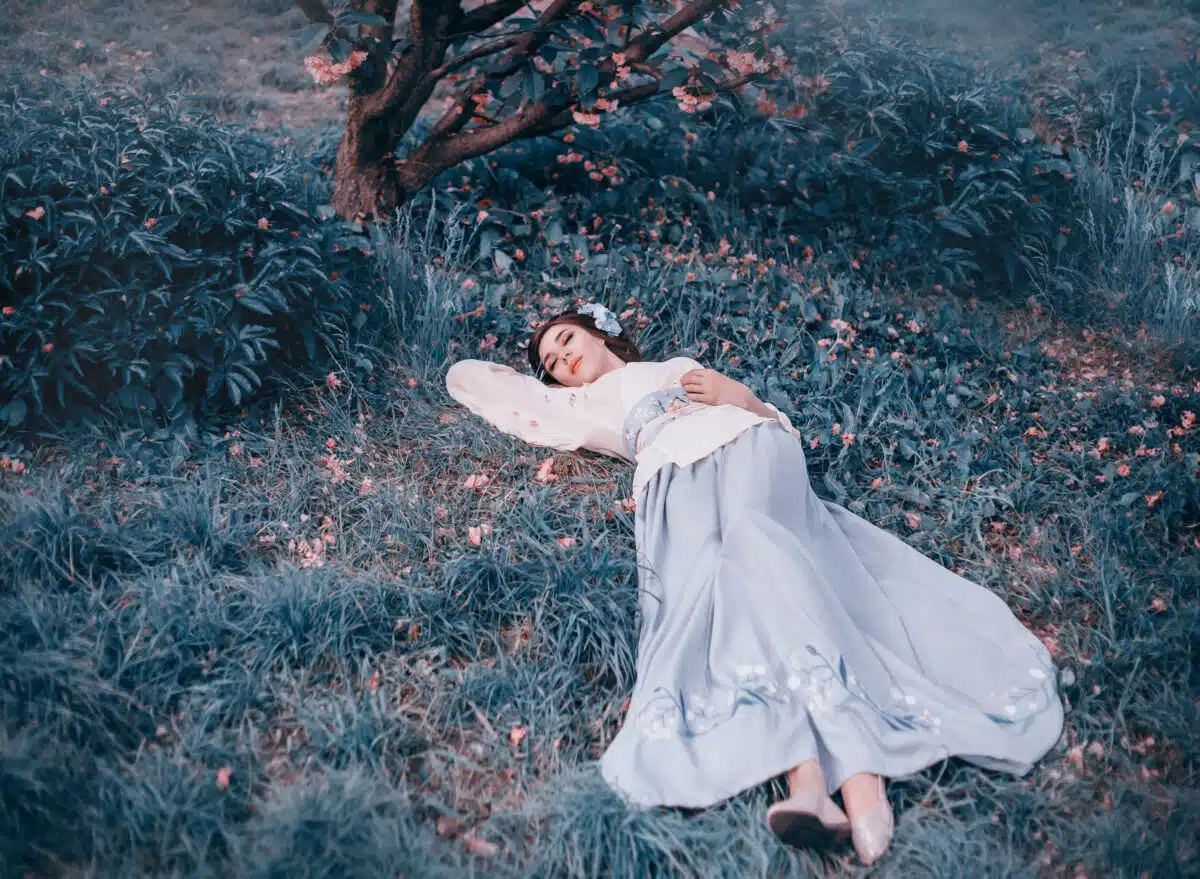
“The Death-Bed” by Siegfried Loraine Sassoon
He drowsed and was aware of silence heaped
Round him, unshaken as the steadfast walls;
Aqueous like floating rays of amber light,
Soaring and quivering in the wings of sleep, –
Silence and safety; and his mortal shore
Lipped by the inward, moonless waves of death.
Some one was holding water to his mouth.
He swallowed, unresisting; moaned and dropped
Through crimson gloom to darkness; and forgot
The opiate throb and ache that was his wound.
Water – calm, sliding green above the weir;
Water – a sky-lit alley for his boat,
Bird-voiced, and bordered with reflected flowers
And shaken hues of summer: drifting down,
He dipped contented oars, and sighed, and slept.
Night, with a gust of wind, was in the ward,
Blowing the curtain to a glimmering curve.
Night. He was blind; he could not see the stars
Glinting among the wraiths of wandering cloud;
Queer blots of colour, purple, scarlet, green,
Flickered and faded in his drowning eyes.
Rain; he could hear it rustling through the dark;
Fragrance and passionless music woven as one;
Warm rain on drooping roses; pattering showers
That soak the woods; not the harsh rain that sweeps
Behind the thunder, but a trickling peace
Gently and slowly washing life away.
He stirred, shifting his body; then the pain
Leaped like a prowling beast, and gripped and tore
His groping dreams with grinding claws and fangs.
But some one was beside him; soon he lay
Shuddering because that evil thing had passed.
And Death, who’d stepped toward him, paused and stared.
Light many lamps and gather round his bed.
Lend him your eyes, warm blood, and will to live.
Speak to him; rouse him; you may save him yet.
He’s young; he hated war; how should he die
When cruel old campaigners win safe through?
But Death replied: “I choose him.” So he went,
And there was silence in the summer night;
Silence and safety; and the veils of sleep.
Then, far away, the thudding of the guns
“Death” by George MacDonald
When in the bosom of the eldest night
This body lies, cold as a sculptured rest;
When through its shaded windows comes no light,
And its pale hands are folded on its breast–
How shall I fare, who had to wander out,
And of the unknown land the frontier cross,
Peering vague-eyed, uncertain, all about,
Unclothed, mayhap unwelcomed, bathed in loss?
Shall I depart slow-floating like a mist,
Over the city murmuring beneath;
Over the trees and fields, where’er I list,
Seeking the mountain and the lonely heath?
Or will a darkness, o’er material shows
Descending, hide them from the spirit’s sight;
As from the sun a blotting radiance flows
Athwart the stars all glorious through the night;
And the still spirit hang entranced, alone,
Like one in an exalted opium-dream–
Soft-flowing time, insisting space, o’erblown,
With form and colour, tone and touch and gleam,
Thought only waking–thought that may not own
The lapse of ages, or the change of spot;
Its doubt all cast on what it counted known,
Its faith all fixed on what appeareth not?
Or, worn with weariness, shall we sleep until,
Our life restored by long and dreamless rest,
Of God’s oblivion we have drunk our fill,
And wake his little ones, peaceful and blest?
I nothing know, and nothing need to know.
God is; I shall be ever in his sight!
Give thou me strength to labour well, and so
Do my day’s work ere fall my coming night.
“Death” by W.J. Turner
When I am dead a few poor souls shall grieve
As I grieved for my brother long ago.
Scarce did my eyes grow dim,
I had forgotten him;
I was far-off hearing the spring winds blow,
And many summers burned
When, though still reeling with my eyes aflame,
I heard that faded name
Whispered one Spring amid the hurrying world
From which, years gone, he turned.
I looked up at my windows and I saw
The trees, thin spectres sucked forth by the moon.
The air was very still
Above a distant hill;
It was the hour of night’s full silver moon.
‘O are thou there my brother?’ my soul cried;
And all the pale stars down bright rivers wept,
As my heart sadly crept
About the empty hills, bathed in that light
That lapped him when he died.
Ah! it was cold, so cold; do I not know
How dead my heart on that remembered day!
Clear in a far-away place
I see his delicate face
Just as he called me from my solitary play,
Giving into my hands a tiny tree.
We planted it in the dark, blossomless ground
Gravely, without a sound;
Then back I went and left him standing by
His birthday gift to me.
In that far land perchance it quietly grows
Drinking the rain, making a pleasant shade;
Birds in its branches fly
Out of the fathomless sky
Where worlds of circling light arise and fade.
Blindly it quivers in the bright flood of day,
Or drowned in multitudinous shouts of rain
Glooms o’er the dark-veiled plain –
Buried below, the ghost that’s in his bones
Dreams in the sodden clay.
And, while he faded, drunk with beauty’s eyes
I kissed bright girls and laughed deep in dumb trees,
That stared fixt in the air
Like madmen in despair
Gaped up from earth with the escaping breeze.
I saw earth’s exaltation slowly creep
Out of their myriad sky-embracing veins.
I laughed along the lanes,
Meeting Death riding in from the hollow seas
Through black-wreathed woods asleep.
I laughed, I swaggered on the cold hard ground –
Through the grey air trembled a falling wave –
‘Thou’rt pale, O Death!’ I cried,
Mocking him in my pride;
And passing I dreamed not of that lonely grave,
But of leaf-maidens whose pale, moon-like hands
Above the tree-foam waved in the icy air,
Sweeping with shining hair
Through the green-tinted sky, one moment fled
Out of immortal lands.
One windless Autumn night the Moon came out
In a white sea of cloud, a field of snow;
In darkness shaped of trees,
I sank upon my knees
And watched her shining, from the small wood below –
Faintly Death flickered in an owl’s far cry – –
We floated soundless in the great gulf of space,
Her light upon my face –
Immortal, shining in that dark wood I knelt
And knew I could not die.
And knew I could not die – O Death, didst thou
Heed my vain glory, standing pale by thy dead?
There is a spirit who grieves
Amid earth’s dying leaves;
Was’t thou that wept beside my brother’s bed?
For I did never mourn nor heed at all
Him passing on his temporal elm-wood bier;
I never shed a tear.
The drooping sky spread grey-winged through my soul,
While stones and earth did fall.
That sound rings down the years – I hear it yet –
All earthly life’s a winding funeral –
And though I never wept,
But into the dark coach stept,
Dreaming by night to answer the blood’s sweet call,
She who stood there, high-breasted, with small, wise lips,
And gave me wine to drink and bread to eat,
Has not more steadfast feet,
But fades from my arms as fade from mariners’ eyes
The sea’s most beauteous ships.
The trees and hills of earth were once as close
As my own brother, they are becoming dreams
And shadows in my eyes;
More dimly lies
Guaya deep in my soul, the coastline gleams
Faintly along the darkening crystalline seas.
Glimmering and lovely still, ’twill one day go;
The surging dark will flow
Over my hopes and joys, and blot out all
Earth’s hills and skies and trees.
I shall look up one night and see the Moon
For the last time shining above the hills,
And thou, silent, wilt ride
Over the dark hillside.
‘Twill be, perchance, the time of daffodils –
‘How come those bright immortals in the woods? Their joy being young, didst thou not drag them all Into dark graves ere Fall?’
Shall life thus haunt me, wondering, as I go
To thy deep solitudes?
There is a figure with a down-turned torch
Carved on a pillar in an olden time,
A calm and lovely boy
Who comes not to destroy
But to lead age back to its golden prime.
Thus did an antique sculptor draw thee, Death,
With smooth and beauteous brow and faint sweet smile,
Not haggard, gaunt and vile,
And thou perhaps art thus to whom men may,
Unvexed, give up their breath.
But in my soul thou sittest like a dream
Among earth’s mountains, by her dim-coloured seas;
A wild unearthly Shape
In thy dark-glimmering cape,
Piping a tune of wavering melodies,
Thou sittest, ay, thou sittest at the feast
Of my brief life among earth’s bright-wreathed flowers,
Staining the dancing hours
With sombre gleams until, abrupt, thou risest
And all, at once, is ceased.
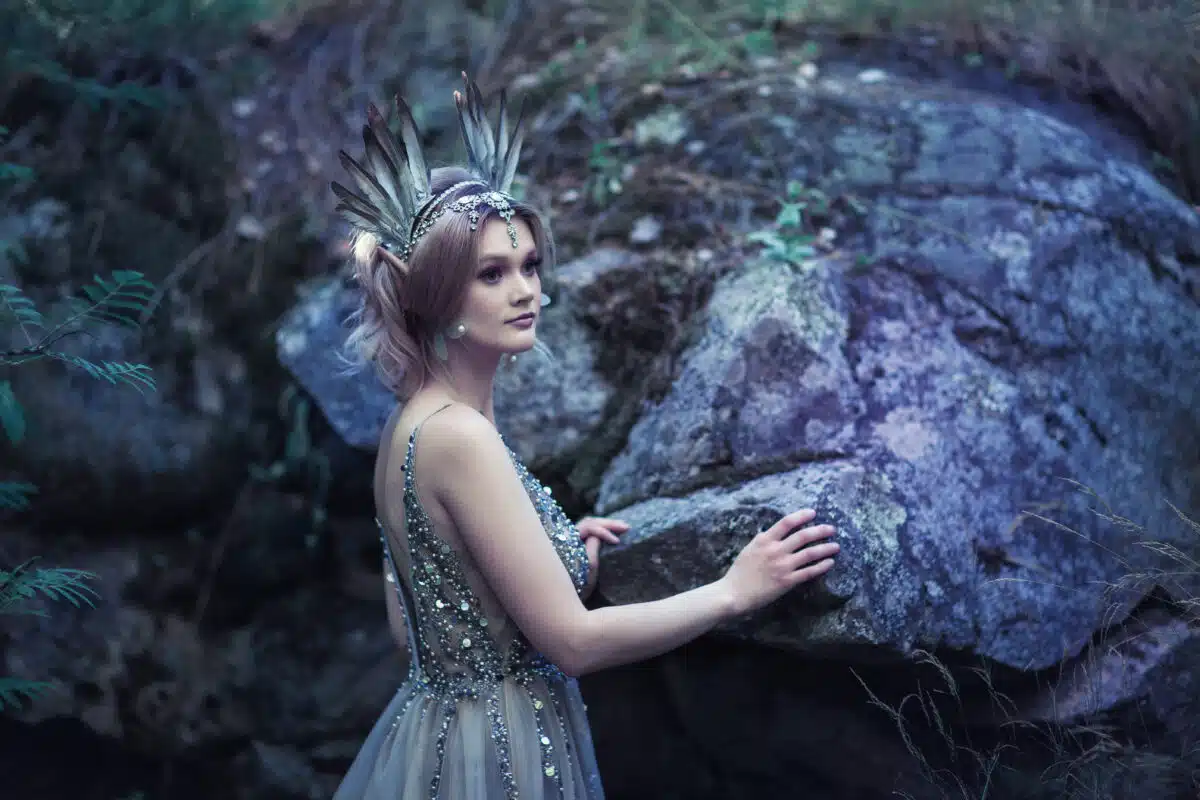
“There’s Been A Death In The Opposite House” by Emily Elizabeth Dickinson
There’s been a death in the opposite house
As lately as today.
I know it by the numb look
Such houses have alway.
The neighbours rustle in and out,
The doctor drives away.
A window opens like a pod,
Abrupt, mechanically;
Somebody flings a mattress out, –
The children hurry by;
They wonder if It died on that, –
I used to when a boy.
The minister goes stiffly in
As if the house were his,
And he owned all the mourners now,
And little boys besides;
And then the milliner, and the man
Of the appalling trade,
To take the measure of the house.
There’ll be that dark parade
Of tassels and of coaches soon;
It’s easy as a sign, –
The intuition of the news
In just a country town.
“Death-Doomed” by Will Carleton
They’re taking me to the gallows, mother–they mean to hang me high;
They’re going to gather round me there, and watch me till I die;
All earthly joy has vanished now, and gone each mortal hope,–
They’ll draw a cap across my eyes, and round my neck a rope;
The crazy mob will shout and groan–the priest will read a prayer,
The drop will fall beneath my feet and leave me in the air.
They think I murdered Allen Bayne; for so the Judge has said,
And they’ll hang me to the gallows, mother–hang me till I’m dead!
The grass that grows in yonder meadow, the lambs that skip and play,
The pebbled brook behind the orchard, that laughs upon its way,
The flowers that bloom in the dear old garden, the birds that sing and fly,
Are clear and pure of human blood, and, mother, so am I!
By father’s grave on yonder hill–his name without a stain–
I ne’er had malice in my heart, or murdered Allen Bayne!
But twelve good men have found me guilty, for so the Judge has said,
And they’ll hang me to the gallows, mother–hang me till I’m dead!
The air is fresh and bracing, mother; the sun shines bright and high;
It is a pleasant day to live–a gloomy one to die!
It is a bright and glorious day the joys of earth to grasp–
It is a sad and wretched one to strangle, choke, and gasp!
But let them damp my lofty spirit, or cow me if they can!
They send me like a rogue to death–I’ll meet it like a man;
For I never murdered Allen Bayne! but so the Judge has said,
And they’ll hang me to the gallows, mother–hang me till I’m dead!
Poor little sister ‘Bell will weep, and kiss me as I lie;
But kiss her twice and thrice for me, and tell her not to cry;
Tell her to weave a bright, gay garland, and crown me as of yore,
Then plant a lily upon my grave, and think of me no more.
And tell that maiden whose love I sought, that I was faithful yet;
But I must lie in a felon’s grave, and she had best forget.
My memory is stained forever; for so the Judge has said,
And they’ll hang me to the gallows, mother–hang me till I’m dead!
Lay me not down by my father’s side; for once, I mind, he said
No child that stained his spotless name should share his mortal bed.
Old friends would look beyond his grave, to my dishonored one,
And hide the virtues of the sire behind the recreant son.
And I can fancy, if there my corse its fettered limbs should lay,
His frowning skull and crumbling bones would shrink from me away;
But I swear to God I’m innocent, and never blood have shed!
And they’ll hang me to the gallows, mother–hang me till I’m dead!
Lay me in my coffin, mother, as you’ve sometimes seen me rest:
One of my arms beneath my head, the other on my breast.
Place my Bible upon my heart–nay, mother, do not weep–
And kiss me as in happier days you kissed me when asleep.
And for the rest–for form or rite–but little do I reck;
But cover up that cursed stain–the black mark on my neck!
And pray to God for his great mercy on my devoted head;
For they’ll hang me to the gallows, mother–hang me till I’m dead!
But hark! I hear a mighty murmur among the jostling crowd!
A cry!–a shout!–a roar of voices!–it echoes long and loud!
There dashes a horseman with foaming steed and tightly-gathered rein!
He sits erect!–he waves his hand!–good Heaven! ’tis Allen Bayne!
The lost is found, the dead alive, my safety is achieved!
For he waves his hand again, and shouts, “The prisoner is reprieved!”
Now, mother, praise the God you love, and raise your drooping head;
For the murderous gallows, black and grim, is cheated of its dead!
“A Worldly Death-Bed” by Rosanna Eleanor Leprohon
Hush! speak in accents soft and low,
And treat with careful stealth
Thro’ that rich curtained room which tells
Of luxury and wealth;
Men of high science and of skill
Stand there with saddened brow,
Exchanging some low whispered words –
What can their art do now?
Follow their gaze to yonder couch
Where moans in fitful pain
The mistress of this splendid home,
With aching heart and brain.
The fever burning in her veins
Tinges with carmine bright
That sunken cheek – alas! she needs
No borrowed bloom to-night.
The masses of her raven hair
Fall down on either side
In tangled richness – it has been
Through life her care and pride;
And those small perfect hands on which
Her gaze complacent fell,
Now, clenched within her pillow’s lace,
Of anguish only tell.
Sad was her restless, fev’rish sleep,
More sad her waking still,
As with wild start she looks around
Her chamber darkened – still;
Its silence and the mournful looks
Of those who stand apart,
Some awful fear seem to suggest
To that poor worldly heart.
“Doctor, I’m better, am I not?”
She gasps with failing breath –
Alas! the answer sternly tells
That she is “ill to death.”
“What! dying!” and her eyes gleam forth
A flashing, fearful ray,
“I, young, rich, lovely, from this earth
To pass so soon away?
“No, no, it must not, cannot be,
Surely your skill can save –
Can stand between me and the gloom,
The horrors, of the grave!”
Breathless she listens, but no word
Breaks that dull pause of grief, –
Her pitying listeners turn away,
They cannot give relief
Tossing aloft, in fierce despair,
Her arms, with frenzied cry,
She gasps forth, “Save me – help, O help!
I must not, will not die.”
But One can grant that wild appeal,
Can stay her failing breath –
Of Him she never thought in life
Nor thinks she now in death.
Without one prayer, one contrite tear,
For past faults to atone –
For wasted talents, misspent life,
She’s gone before God’s throne!
Prying that wilful, wayward heart
That leaned on gods of clay,
For calmer, holier death than hers
With solemn heart we pray.
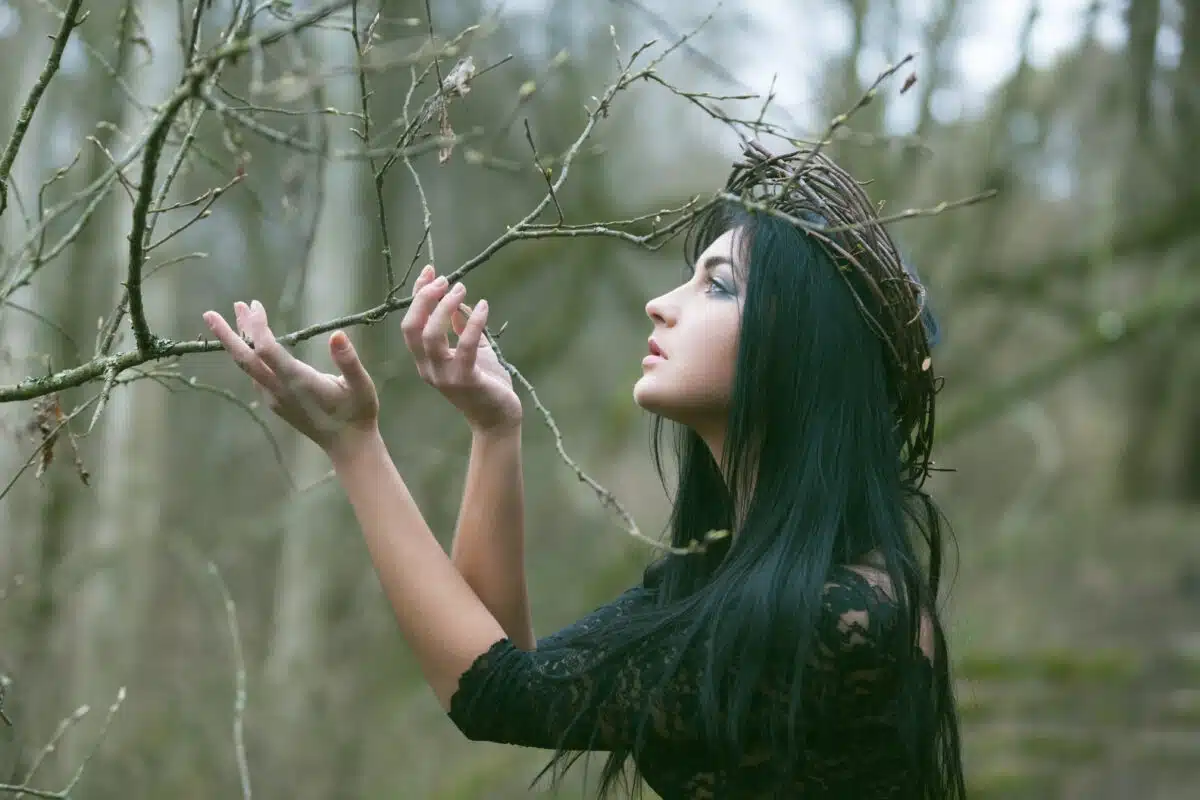
“Love Is Strong As Death” by Christina Georgina Rossetti
“I have not sought Thee, I have not found Thee,
I have not thirsted for Thee:
And now cold billows of death surround me,
Buffeting billows of death astound me, –
Wilt Thou look upon, wilt Thou see
Thy perishing me?”
“Yea, I have sought thee, yea, I have found thee,
Yea, I have thirsted for thee,
Yea, long ago with love’s bands I bound thee:
Now the Everlasting Arms surround thee, –
Through death’s darkness I look and see
And clasp thee to Me.”
“Time And Death And Love” by Madison Julius Cawein
Last night I watched for Death –
So sick of life was I! –
When in the street beneath
I heard his watchman cry
The hour, while passing by.
I called. And in the night
I heard him stop below,
His owlish lanthorn’s light
Blurring the windy snow –
How long the time and slow!
I said, Why dost thou cower
There at my door and knock?
Come in! It is the hour!
Cease fumbling at the lock!
Naught’s well! ‘Tis no o’clock!
Black through the door with him
Swept in the Winter’s breath;
His cloak was great and grim –
But he, who smiled beneath,
Had the face of Love not Death.
“I Have a Rendezvous with Death” by Alan Seeger
I have a rendezvous with Death
At some disputed barricade,
When Spring comes back with rustling shade
And apple-blossoms fill the air –
I have a rendezvous with Death
When Spring brings back blue days and fair.
It may be he shall take my hand
And lead me into his dark land
And close my eyes and quench my breath –
It may be I shall pass him still.
I have a rendezvous with Death
On some scarred slope of battered hill,
When Spring comes round again this year
And the first meadow-flowers appear.
God knows ’twere better to be deep
Pillowed in silk and scented down,
Where Love throbs out in blissful sleep,
Pulse nigh to pulse, and breath to breath,
Where hushed awakenings are dear . . .
But I’ve a rendezvous with Death
At midnight in some flaming town,
When Spring trips north again this year,
And I to my pledged word am true,
I shall not fail that rendezvous.
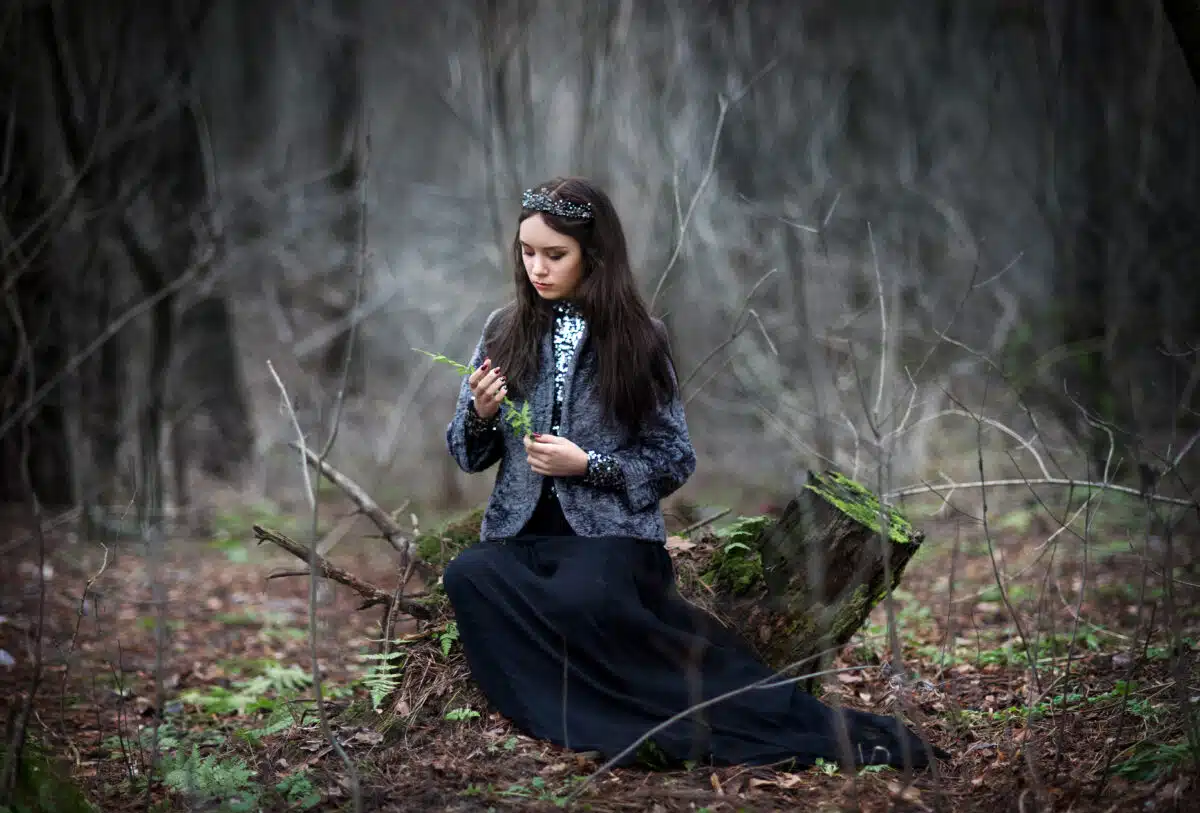
“A Thought For A Lonely Death-Bed” by Elizabeth Barrett Browning
If God compel thee to this destiny,
To die alone, with none beside thy bed
To ruffle round with sobs thy last word said
And mark with tears the pulses ebb from thee,—
Pray then alone, ‘ O Christ, come tenderly !
By thy forsaken Sonship in the red
Drear wine-press,—by the wilderness out-spread,—
And the lone garden where thine agony
Fell bloody from thy brow,—by all of those
Permitted desolations, comfort mine !
No earthly friend being near me, interpose
No deathly angel ‘twixt my face aud thine,
But stoop Thyself to gather my life’s rose,
And smile away my mortal to Divine ! ‘
“I Wage Not Any Feud With Death” by Alfred Lord Tennyson
I wage not any feud with Death
For changes wrought on form and face;
No lower life that earth’s embrace
May breed with him, can fright my faith.
Eternal process moving on,
From state to state the spirit walks;
And these are but the shatter’d stalks,
Or ruin’d chrysalis of one.
Nor blame I Death, because he bare
The use of virtue out of earth:
I know transplanted human worth
Will bloom to profit, otherwhere.
For this alone on Death I wreak
The wrath that garners in my heart;
He put our lives so far apart
We cannot hear each other speak.
“The Clocks Of Death” by Bes-syo Ko-saburo Naga-haru (Edward Powys Mathers, Translator)
In a life where the clocks
Are slow or fast,
It is a pleasant thing
To die together
As we are dying.

“Sonnet: Oh! Death Will Find Me, Long Before I Tire” by Rupert Brooke
Oh! Death will find me, long before I tire
Of watching you; and swing me suddenly
Into the shade and loneliness and mire
Of the last land! There, waiting patiently,
One day, I think, I’ll feel a cool wind blowing,
See a slow light across the Stygian tide,
And hear the Dead about me stir, unknowing,
And tremble. And I shall know that you have died,
And watch you, a broad-browed and smiling dream,
Pass, light as ever, through the lightless host,
Quietly ponder, start, and sway, and gleam,
Most individual and bewildering ghost!
And turn, and toss your brown delightful head
Amusedly, among the ancient Dead.
“A Death-Scene” by Emily Bronte
“O day! he cannot die
When thou so fair art shining!
O Sun, in such a glorious sky,
So tranquilly declining;
He cannot leave thee now,
While fresh west winds are blowing,
And all around his youthful brow
Thy cheerful light is glowing!
Edward, awake, awake,
The golden evening gleams
Warm and bright on Arden’s lake,
Arouse thee from thy dreams!
Beside thee, on my knee,
My dearest friend, I pray
That thou, to cross the eternal sea,
Wouldst yet one hour delay:
I hear its billows roar,
I see them foaming high;
But no glimpse of a further shore
Has blest my straining eye.
Believe not what they urge
Of Eden isles beyond;
Turn back, from that tempestuous surge,
To thy own native land.
It is not death, but pain
That struggles in thy breast,
Nay, rally, Edward, rouse again;
I cannot let thee rest!”
One long look, that sore reproved me
For the woe I could not bear,
One mute look of suffering moved me
To repent my useless prayer:
And, with sudden check, the heaving
Of distraction passed away;
Not a sign of further grieving
Stirred my soul that awful day.
Paled, at length, the sweet sun setting;
Sunk to peace the twilight breeze:
Summer dews fell softly, wetting
Glen, and glade, and silent trees.
Then his eyes began to weary,
Weighed beneath a mortal sleep;
And their orbs grew strangely dreary,
Clouded, even as they would weep.
But they wept not, but they changed not,
Never moved, and never closed;
Troubled still, and still they ranged not,
Wandered not, nor yet reposed!
So I knew that he was dying,
Stooped, and raised his languid head;
Felt no breath, and heard no sighing,
So I knew that he was dead.
“On Death” by John Clare
O life, thy name to me’s a galling sound,
A sound I fain would wish to breathe no more;
One only peace for me my hopes have found,
When thy existence and wild race is o’er;
When Death, with one, heals every other wound,
And lays my aching head in the cold ground.
O happy hour! I only wish to have
Another moment’s gasp, and then the grave.
I only wish for one departing sigh,
A welcome farewel take of all, and die.
Thou’st given me little, world, for thanks’ return,
Thou tempst me little with thee still to ‘bide:
One only cause in leaving thee I mourn,–
That I had e’er been born, nor in the cradle died.
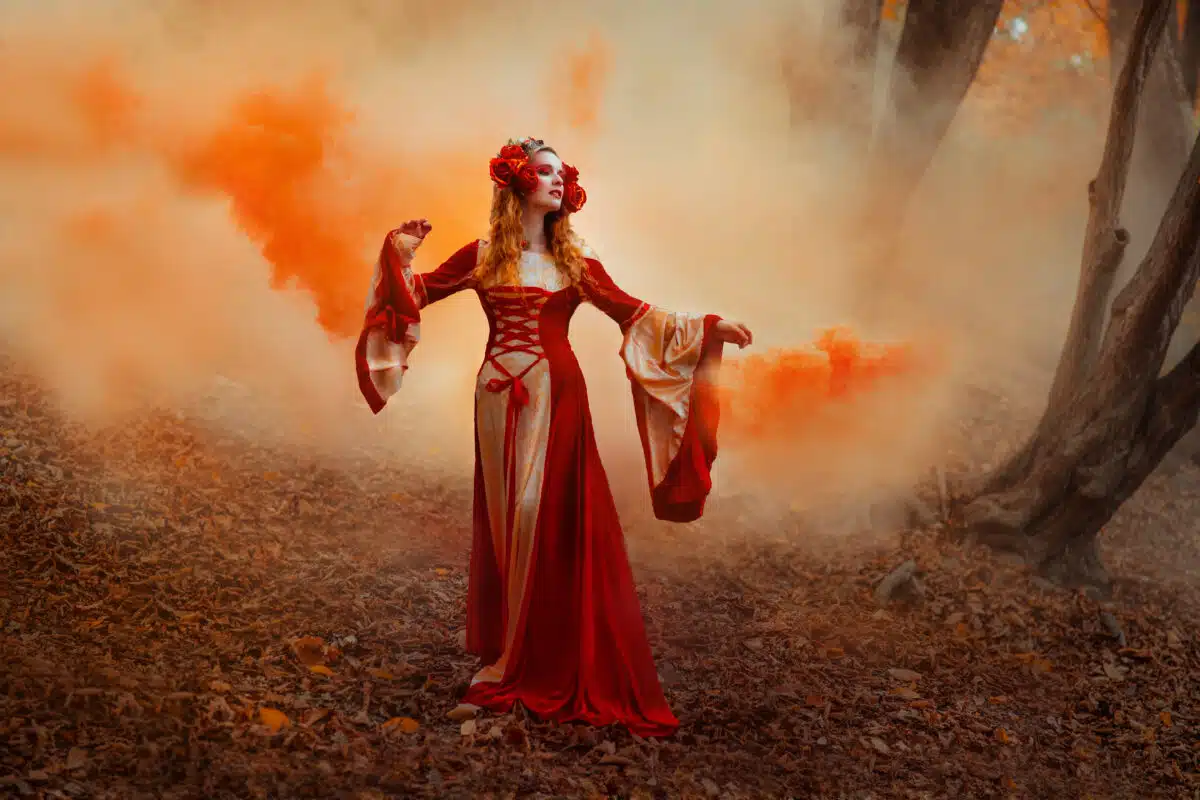
“From Sudden Death” by Margaret Steele Anderson
Roses about my way, and roses still!
O, I must pick and have my very fill!
Red for my heart and white upon my hair
And still I shall have roses and to spare!
My child, I save thee thorns! Dear little friend,
This is the end!
So long the road, so lone the road and gray,
My bleeding feet must travel many a day!
With not an inn where I may stop and rest,
With not a roof that claims me for its guest!
Hush! the road vanishes! Yes, yes, poor friend,
This is the end!
O Lord, let thou thy servant go in peace!
Now I have rounded out life’s perfect lease,
Spare me the clouded brain, the dark’ning eye,
Nor let me be a burden ere I die!
Thou shalt not he! Nay, even now, old friend,
This is the end!
“After Witnessing A Death-Scene” by George W. Sands
Press close your lips,
And bow your heads to earth, for Death is here!
Mark ye not how across that eye so clear,
Steals his eclipse?
A moment more,
And the quick throbbings of her heart shall cease,
Her pain-wrung spirit will obtain release,
And all be o’er!
Hush! Seal ye up
Your gushing tears, for Mercy’s hand hath shaken
Her earth-bonds off, and from her lip hath taken
Grief’s bitter cup.
Ye know the dead
Are they who rest secure from care and strife,-
That they who walk the thorny way of life,
Have tears to shed.
Ye know her pray’r,
Was for the quiet of the tomb’s deep rest,-
Love’s sepulchre lay cold within her breast,
Could peace dwell there?
A tale soon told,
Is of her life the story; she had loved,
And he who won her heart to love, had proved
Heartless and cold.
Lay her to rest,
Where shines and falls the summer’s sun and dew;
For these should shine and fall where lies so true
And fond a breast!
A full release
From every pang is given to the dead,-
So on the stone ye place above her head,
Write only “Peace.”*
When Spring comes back,
With music on her lips,-joy in her eye,-
Her sunny banner streaming through the sky,-
Flow’rs in her track-
Then come ye here,
And musing from the busy world apart,
Drop on the turf that wraps her mouldering heart,
Sweet Pity’s tear.
“The Death Bed” by Waring Cuney
All the time they were praying
He watched the shadow of a tree
Flicker on the wall.
There is no need of prayer,
He said,
No need at all.
The kin-folk thought it strange
That he should ask them from a dying bed.
But they left all in a row
And it seemed to ease him
To see them go.
There were some who kept on praying
In a room across the hall
And some who listened to the breeze
That made the shadows waver
On the wall.
He tried his nerve
On a song he knew
And made an empty note
That might have come,
From a bird’s harsh throat.
And all the time it worried him
That they were in there praying
And all the time he wondered
What it was they could be saying.
Poems About Death and Life
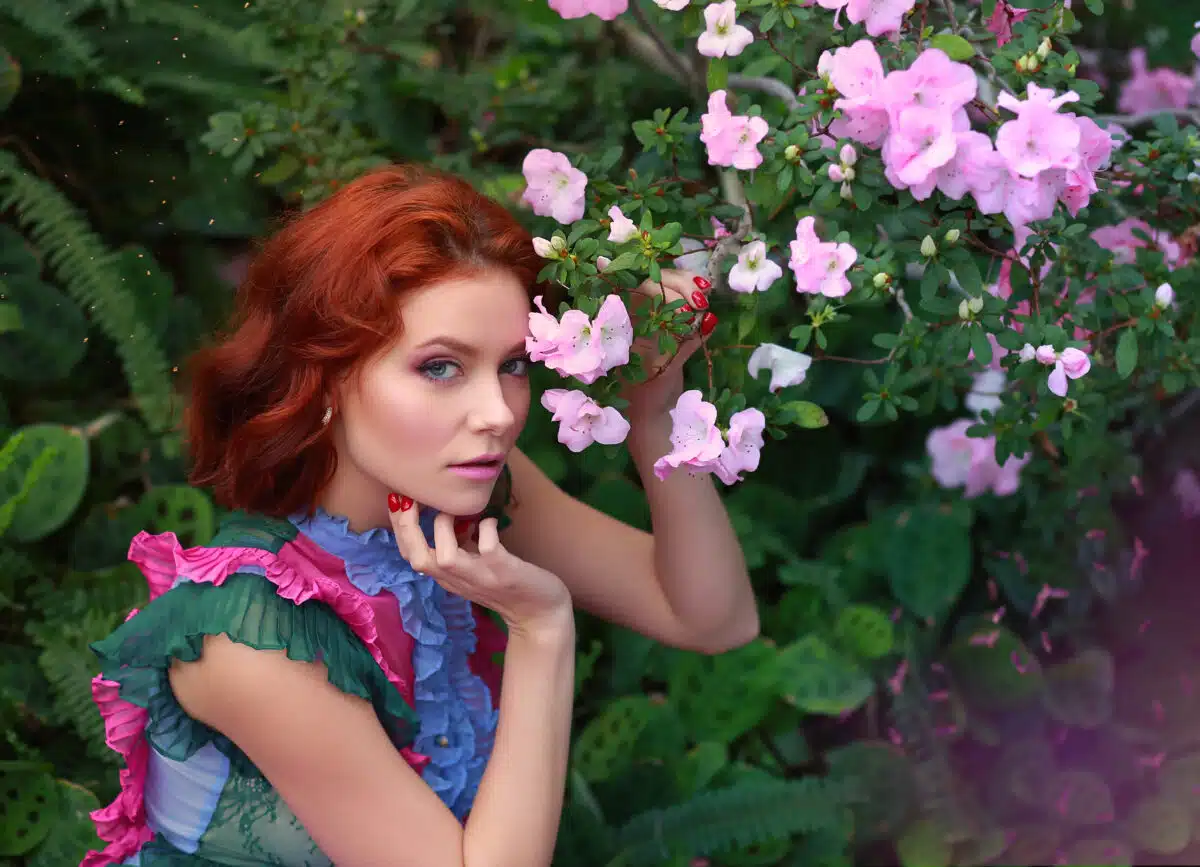
“Death” by John Donne
Death, be not proud, though some have callèd thee
Mighty and dreadful, for thou art not so:
For those whom thou think’st thou dost overthrow
Die not, poor Death; nor yet canst thou kill me.
From Rest and Sleep, which but thy picture be,
Much pleasure, then from thee much more must flow;
And soonest our best men with thee do go—
Rest of their bones and souls’ delivery!
Thou’rt slave to fate, chance, kings, and desperate men,
And dost with poison, war, and sickness dwell;
And poppy or charms can make us sleep as well
And better than thy stroke. Why swell’st thou then?
One short sleep past, we wake eternally,
And Death shall be no more: Death, thou shalt die!
“Death the Leveller” by James Shirley
The glories of our blood and state
Are shadows, not substantial things;
There is no armour against Fate;
Death lays his icy hand on kings:
Sceptre and Crown
Must tumble down,
And in the dust be equal made
With the poor crookèd scythe and spade.
Some men with swords may reap the field,
And plant fresh laurels where they kill:
But their strong nerves at last must yield;
They tame but one another still:
Early or late
They stoop to fate,
And must give up their murmuring breath
When they, pale captives, creep to death.
The garlands wither on your brow,
Then boast no more your mighty deeds!
Upon Death’s purple altar now
See where the victor-victim bleeds.
Your heads must come
To the cold tomb:
Only the actions of the just
Smell sweet and blossom in their dust.
“On the Death of Southey” by Walter Savage Landor
Not the last struggles of the Sun,
Precipitated from his golden throne,
Hold darkling mortals in sublime suspense;
But the calm exod of a man
Nearer, tho’ far above, who ran
The race we run, when Heaven recalls him hence.

“Since I Have Felt the Sense of Death” by Helen Hoyt
Since I have felt the sense of death,
Since I have borne its dread, its fear—
Oh, how my life has grown more dear
Since I have felt the sense of death!
Sorrows are good, and cares are small,
Since I have known the loss of all.
Since I have felt the sense of death,
And death forever at my side—
Oh, how the world has opened wide
Since I have felt the sense of death!
My hours are jewels that I spend,
For I have seen the hours end.
Since I have felt the sense of death,
Since I have looked on that black night—
My inmost brain is fierce with light
Since I have felt the sense of death.
O dark, that made my eyes to see!
O death, that gave my life to me!
“On the Death of a Recluse” by George Darley
’Mid roaring brooks and dark moss-vales,
Where speechless Thought abides,
Still her sweet spirit dwells,
That knew no world besides.
Her form the woodland still retains—
Wound but a creeping flower,
Her very life-blood stains
Thee, in a falling shower.
Touch but the stream, drink but the air,
Her cheek, her breath is known;
Ravish that red rose there,
And she is all thine own.
“Elegy before Death” by William Stanley Braithwaite
There will be rose and rhododendron
When you are dead and underground;
Still will be heard from white Syringas
Heavy with bees, a sunny sound;
Still will the tamaracks be raining.
After the rain has ceased, and still
Will there be robbins in the stubble,
Brown sheep upon the warm, green hill.
Spring will not all, nor autumn falter,
Nothing will know that you are gone,
Saving alone some sullen plowland
None but yourself sets foot upon;
Saving the mayweed and the pigweed
Nothing will know that you are dead—
These, and perhaps a useless wagon
Standing beside some tumbled shed.
Oh, there will pass with your great passing
Little of beauty not your own;
Only the light from common water,
Only the grace from simple stone!
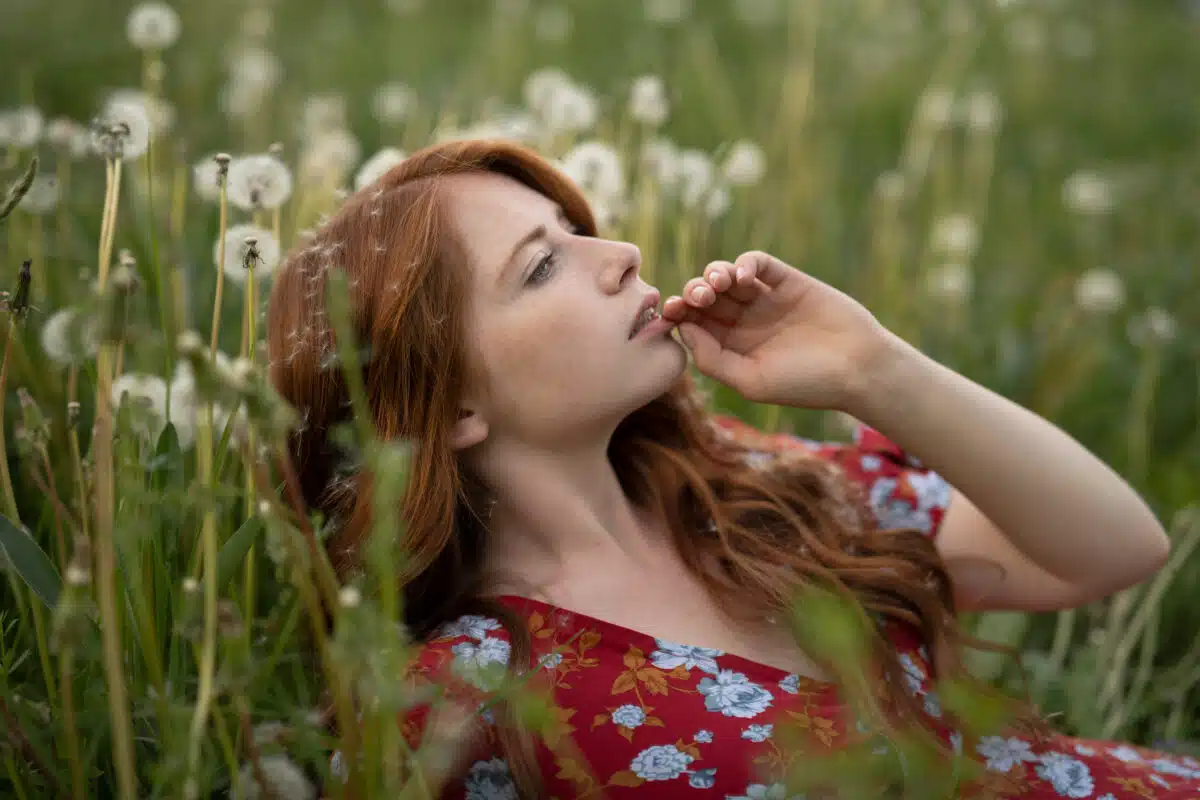
“Death” by Harriet Monroe
To ache with unrest,
Stale-hearted, bored,
Oppressed by life, by the futile motions of people—
Their footless eagerness, their strife,
And their pale conversations—
This mood of death.
But that other thing called death,
Which crumbles us up into good rich soil,
And sprouts grass over the place
Or weeds—
What kind adjustment
That trues one nicely to the universe,
And bestows the good gift: the immortal insignificance
Of a leaf, or a grass blade,
Or one of the small stars!
“The Hour of Death” by Felicia Dorothea Hemans
Leaves have their time to fall,
And flowers to wither at the north-wind’s breath,
And stars to set—but all,
Thou hast all seasons for thine own, oh! Death.
Day is for mortal care,
Eve for glad meetings round the joyous hearth,
Night for the dreams of sleep, the voice of prayer—
But all for thee, thou mightiest of the earth.
The banquet hath its hour,
Its feverish hour of mirth, and song, and wine;
There comes a day of grief’s overwhelming power,
A time for softer tears—but all are thine.
Youth and the opening rose
May look like things too glorious for decay,
And smile at thee—but thou art not of those
That wait the ripened bloom to seize their prey.
Leaves have their time to fall,
And flowers to wither at the north-wind’s breath,
And stars to set—but all,
Thou hast all seasons for thine own, oh! Death.
We know when moons shall wane,
When summer-birds from far shall cross the sea,
When autumn’s hue shall tinge the golden grain—
But who shall teach us when to look for thee?
Is it when Spring’s first gale
Comes forth to whisper where the violets lie?
Is it when roses in our paths grow pale?
They have one season—all are ours to die!
Thou art where billows foam,
Thou art where music melts upon the air;
Thou art around us in our peaceful home,
And the world calls us forth—and thou art there.
Thou art where friend meets friend,
Beneath the shadow of the elm to rest—
Thou art where foe meets foe, and trumpets rend
The skies, and swords beat down the princely crest.
Leaves have their time to fall,
And flowers to wither at the north-wind’s breath,
And stars to set—but all,
Thou hast all seasons for thine own, oh! Death.
“The Death of Death” by William Shakespeare
Poor soul, the centre of my sinful earth,
Fooled by those rebel powers that thee array,
Why dost thou pine within and suffer dearth,
Painting thy outward walls so costly gay?
Why so large cost, having so short a lease,
Dost thou upon thy fading mansion spend?
Shall worms, inheritors of this excess,
Eat up thy charge? Is this thy body’s end?
Then, soul, live thou upon thy servant’s loss,
And let that pine to aggravate thy store;
Buy terms divine in selling hours of dross;
Within be fed, without be rich no more.
So shalt thou feed on Death, that feeds on men,
And, Death once dead, there ’s no more dying then.
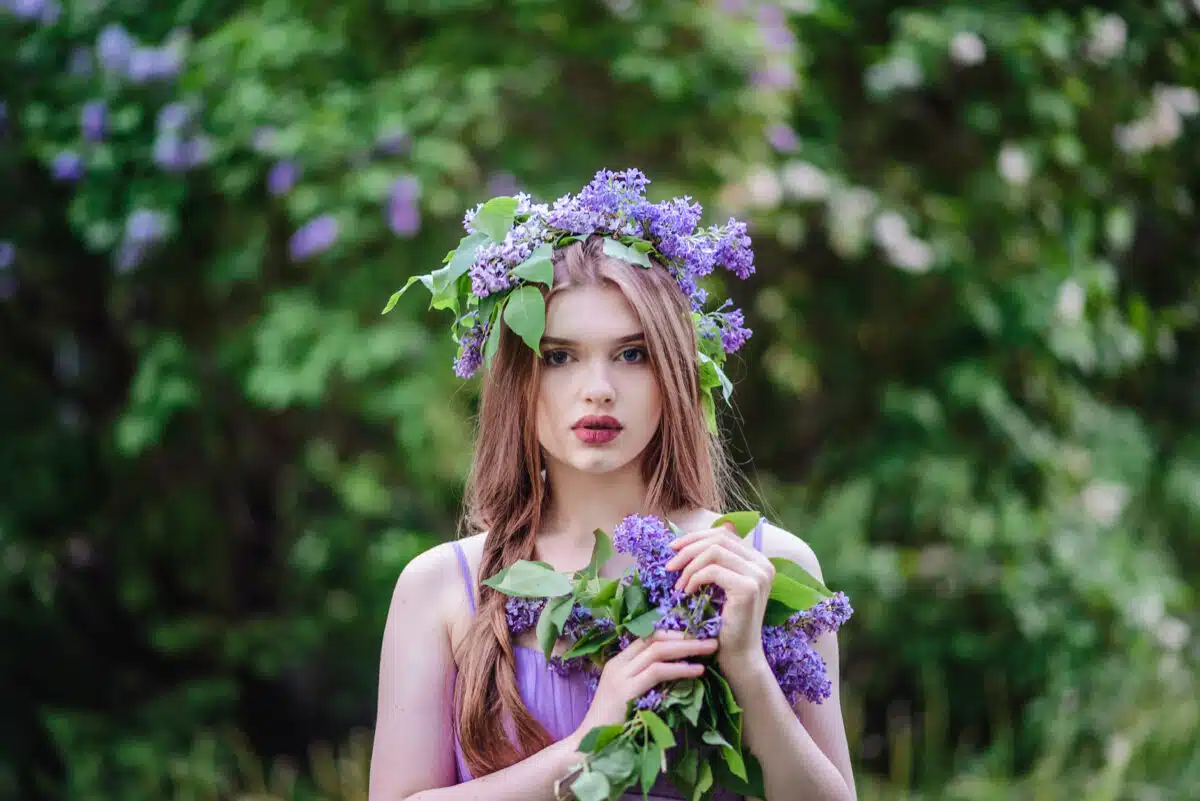
“Death” by George Pellew
Calm Death, God of crossed hands and passionless eyes,
Thou God that never heedest gift nor prayer,
Men blindly call thee cruel, unaware
That everything is dearer since it dies.
Worn by the chain of years, without surprise,
The wise man welcomes thee, and leaves the glare
Of noisy sunshine gladly, and his share
He chose not in mad life and windy skies.
Passions and dreams of love, the fever and fret
Of toil, seem vain and petty when we gaze
On the imperious Lords who have no breath:
Atoms or worlds,—we call them lifeless, yet
In thy unending peaceful day of days
They are divine, all-comprehending Death.
“Newborn Death” by Dante Gabriel Rossetti
I.
To-day Death seems to me an infant child
Which her worn mother Life upon my knee
Has set to grow my friend and play with me;
If haply so my heart might be beguil’d
To find no terrors in a face so mild,—
If haply so my weary heart might be
Unto the newborn milky eyes of thee,
O Death, before resentment reconcil’d.
How long, O Death? And shall thy feet depart
Still a young child’s with mine, or wilt thou stand
Fullgrown the helpful daughter of my heart,
What time with thee indeed I reach the strand
Of the pale wave which knows thee what thou art,
And drink it in the hollow of thy hand?
II.
And thou, O Life, the lady of all bliss,
With whom, when our first heart beat full and fast,
I wandered till the haunts of men were pass’d,
And in fair places found all bowers amiss
Till only woods and waves might hear our kiss,
While to the winds all thought of Death we cast:—
Ah, Life! and must I have from thee at last
No smile to greet me and no babe but this?
Lo! Love, the child once ours; and Song, whose hair
Blew like a flame and blossomed like a wreath;
And Art, whose eyes were worlds by God found fair;
These o’er the book of Nature mixed their breath
With neck-twined arms, as oft we watched them there:
And did these die that thou might’st bear me Death?
“In Death” by Mary Emily Bradley
How still the room is! But a while ago
The sound of sobbing voices vexed my ears,
And on my face there fell a rain of tears—
I scarce knew why or whence, but now I know.
For this sweet speaking silence, this surcease
Of the dumb, desperate struggle after breath,
This painless consciousness of perfect peace,
Which fills the place of anguish—it is Death!
What folly to have feared it! Not the best
Of all we knew of life can equal this,
Blending in one the sense of utter rest,
The vivid certainty of boundless bliss!
O Death, the loveliness that is in thee,
Could the world know, the world would cease to be.

“The Wind of Death” by Ethelwyn Wetherald
The wind of death that softly blows
The last warm petal from the rose,
The last dry leaf from off the tree,
To-night has come to breathe on me.
There was a time I learned to hate
As weaker mortals learn to love;
The passion held me fixed as fate,
Burned in my veins early and late;
But now a wind falls from above,
The wind of death, that silently
Enshroudeth friend and enemy.
There was a time my soul was thrilled
By keen ambition’s whip and spur;
My master forced me where he willed,
And with his power my life was filled,
But now the old-time pulses stir
How faintly in the wind of death!
That bloweth lightly as a breath.
And once, but once, at Love’s dear feet,
I yielded strength, and life, and heart;
His look turned bitter into sweet,
His smile made all the world complete;
The wind blows loves like leaves apart,
The wind of death, that tenderly
Is blowing ’twixt my love and me.
O wind of death, that darkly blows
Each separate ship of human woes
Far out on a mysterious sea,
I turn, I turn my face to thee.
“Life and Death” by Christopher Pearse Cranch
O solemn portal, veiled in mist and cloud,
Where all who have lived throng in, an endless line,
Forbid to tell by backward look or sign
What destiny awaits the advancing crowd;
Bourne crossed but once with no return allowed;
Dumb, spectral gate, terrestrial yet divine,
Beyond whose arch all powers and fates combine,
Pledged to divulge no secrets of the shroud.
Close, close behind we step, and strive to catch
Some whisper in the dark, some glimmering light;
Through circling whirls of thought intent to snatch
A drifting hope—a faith that grows to sight;
And yet assured, whatever may befall,
That must be somehow best that comes to all.
“By Death” by Benjamin Pratt
Though guilt and folly tremble o’er the grave,
No life can charm, no death affright the brave.
The wise at nature’s laws will ne’er repine,
Nor think to scan or mend the grand design
That takes unbounded nature for its care,
Bids all her millions claim an equal share.
Late in a microscopic worm confined,
Then in a prison’d fetus drown’d the mind;
Now of the ape kind both for sense and size,
Man eats and drinks and propagates and dies.
Good God! if thus to live our errand here,
Is parting with life’s trifles worth our fear?
Or what grim furies have us in their power,
More in the dying than the living hour.
Ills from ourselves, but none from nature flow,
And virtue’s road cannot descend to wo.
What nature gives, receive, her laws obey;
If you must die tomorrow, live today.
The prior states thy mind has varied through
Are drown’d in Lethe where black waves pursue,
To roll oblivion o’er each yesterday,
And will tomorrow sweep thyself away.
But where? no more unknown in future fate
Than your own end or essence in this state.
The past, the future and our nature hid,
Now comic and now tragic scenes we tread.
Unconscious actors: with a drama run
And act a part, but for a plot unknown.
We see their shapes, we feel ten thousand things,
We reason, act and sport on fancy’s wings,
While yet this agent, this percipient lies
Hid from itself and puzzles all the wise.
In vain we seek, inverted eyes are blind,
And nature form’d no mirror for the mind.
Like some close cell whence art excludes the day,
Save what through optics darts its pencil’d ray,
And paints the lively landscape to the sight,
While yet the room itself is veil’d in night.
Nor can you find with all your boasted art,
The curious touch that bids the salient heart
Send its warm purple round the venal maze,
To fill each nerve with life, with bloom the face.
How o’er the heart the numbing palsies creep
To chill the carcase to eternal sleep.
’T is ours t’ improve this life, not ours to know
From whence this meteor, when or where ’t will go.
As o’er a fen when heaven ’s involved in night,
An ignis fatuus waves its new-born light,
Now up, now down, the mimic taper plays
As varying Auster puffs the trembling blaze;
Soon the light phantom spends its magic store,
Dies into darkness, and is seen no more.
Thus run our changes, but in this secure,
Heaven trusts no mortal’s fortune in his power.
Nor hears the prayers impertinent we send
To alter fate, and providence to mend.
As well in judgment as in mercy kind,
God hath for both the fittest date design’d.
The wise on death, the fools on life depend,
From toils and pains some sweet reverse to find.
Scheme after scheme the dupe successive tries,
And never gains, but hopes to gain the prize.
From the delusion still he ne’er will wake,
But dream of bliss, and live on the mistake.
Thus Tantalus in spite the furies placed
Tortured and charm’d to wish, and yet accursed:
In every wish infatuate, dreads lest Jove
Should move him from the torments of his love
To see the tempting fruit and stream no more,
And trust his Maker on some unknown shore.
Death buries all diseases in the grave,
And gives us freedom from each fool and knave,
To worlds unknown it kindly wafts us o’er—
Come death, my guide, I ’m raptured to explore.
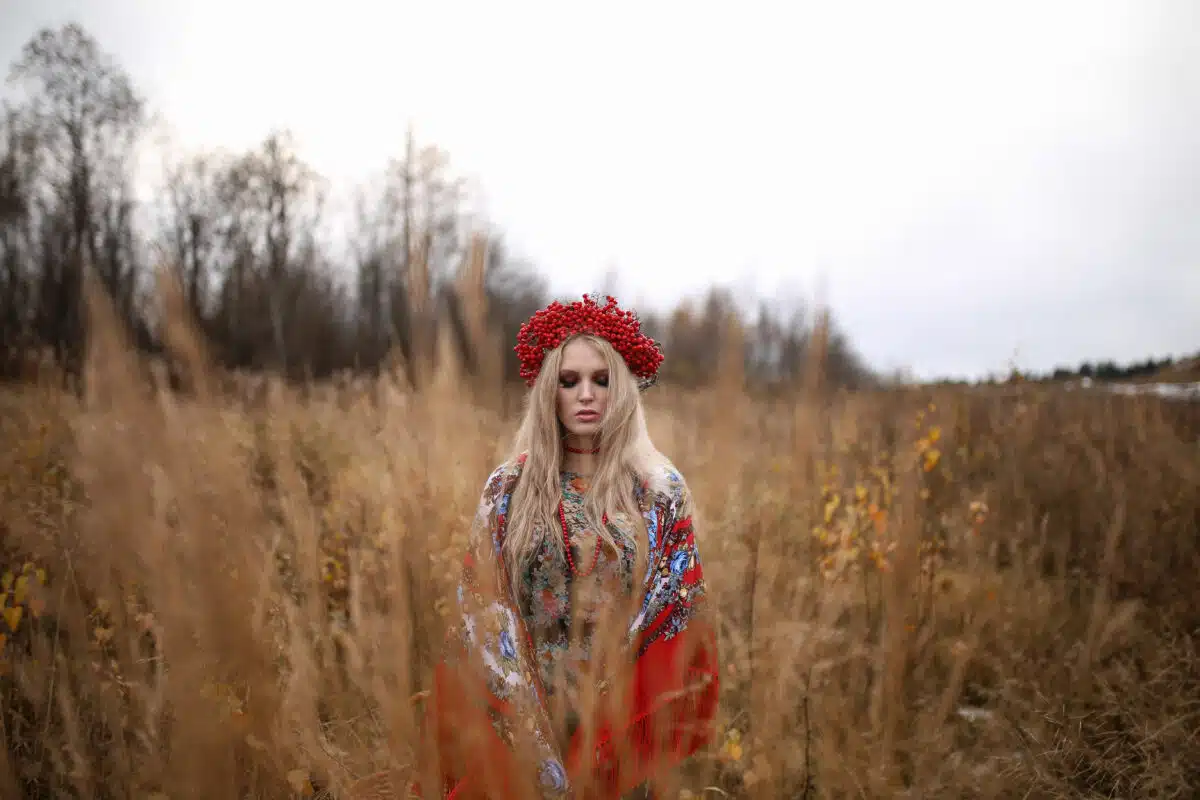
“Life and Death” by Sir William Davenant
Frail Life! in which, through mists of human breath
We grope for truth, and make our progress slow,
Because by passion blinded; till, by death
Our passions ending, we begin to know.
O reverend Death! whose looks can soon advise
E’en scornful youth, whilst priests their doctrine waste;
Yet mocks us too; for he does make us wise,
When by his coming our affairs are past.
O harmless Death! whom still the valiant brave,
The wise expect, the sorrowful invite,
And all the good embrace, who know the grave
A short dark passage to eternal light.
“On Death” by John Keats
I
Can death be sleep, when life is but a dream,
And scenes of bliss pass as a phantom by?
The transient pleasures as a vision seem,
And yet we think the greatest pain’s to die.
II
How strange it is that man on earth should roam,
And lead a life of woe, but not forsake
His rugged path; nor dare he view alone
His future doom which is but to awake.
“Life And Death” by Helen Leah Reed
“Death after life” shall we sigh as we say it,
Sigh as if death were the end for us all,
Pale at the thought, as in silence we weigh it,
Yield our dull souls to it, bending in thrall?
“Life after death” – look ahead, weakling spirit –
Sure is the way to a world that is ours.
Death is fruition, why then should we fear it?
Death – the fruition of life’s budding powers.
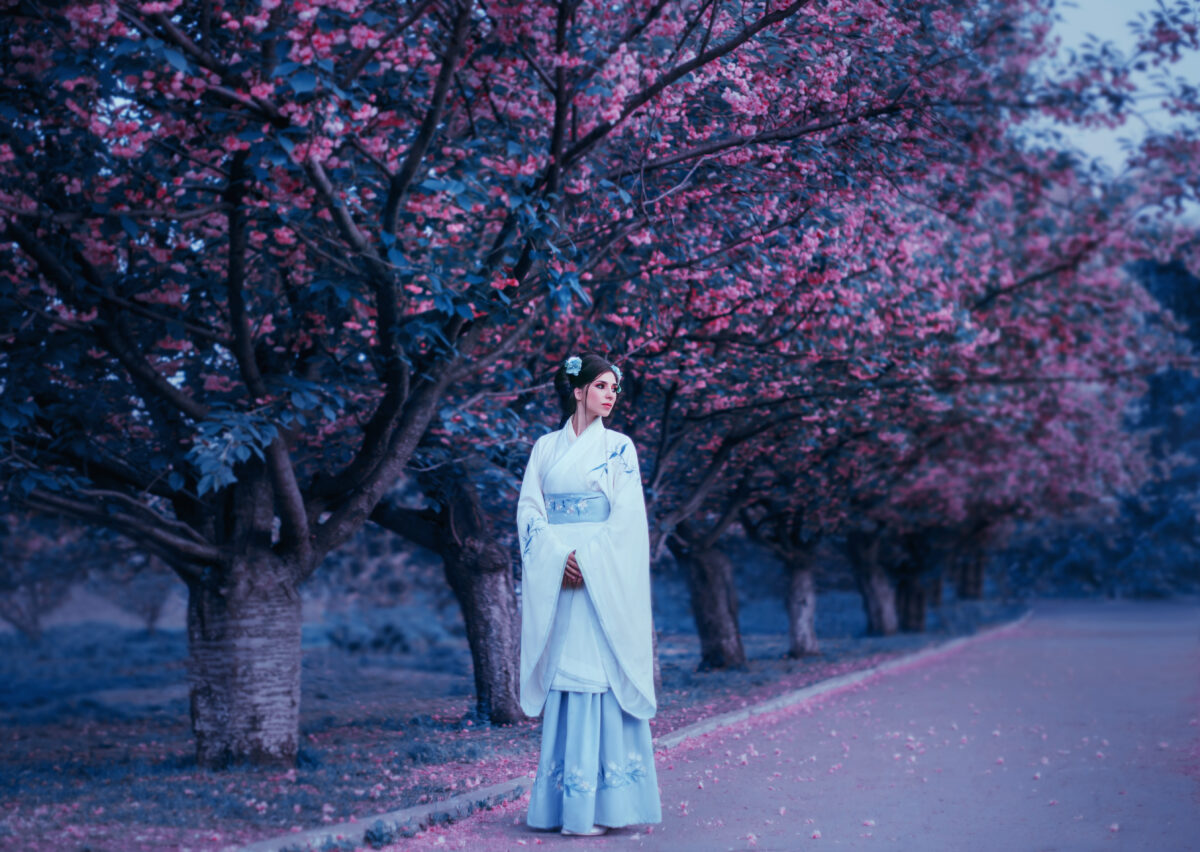
“Death” by Emily Elizabeth Dickinson
Death is like the insect
Menacing the tree,
Competent to kill it,
But decoyed may be.
Bait it with the balsam,
Seek it with the knife,
Baffle, if it cost you
Everything in life.
Then, if it have burrowed
Out of reach of skill,
Ring the tree and leave it, —
T is the vermin’s will.
“To Death” by Percy Bysshe Shelley
Death! where is thy victory?
To triumph whilst I die,
To triumph whilst thine ebon wing
Enfolds my shuddering soul?
O Death! where is thy sting?
Not when the tides of murder roll,
When nations groan, that kings may bask in bliss,
Death! canst thou boast a victory such as this –
When in his hour of pomp and power
His blow the mightiest murderer gave,
Mid Nature’s cries the sacrifice
Of millions to glut the grave;
When sunk the Tyrant Desolation’s slave;
Or Freedom’s life-blood streamed upon thy shrine;
Stern Tyrant, couldst thou boast a victory such as mine?
To know in dissolution’s void
That mortals’ baubles sunk decay;
That everything, but Love, destroyed
Must perish with its kindred clay, –
Perish Ambition’s crown,
Perish her sceptred sway:
From Death’s pale front fades Pride’s fastidious frown.
In Death’s damp vault the lurid fires decay,
That Envy lights at heaven-born Virtue’s beam –
That all the cares subside,
Which lurk beneath the tide
Of life’s unquiet stream; –
Yes! this is victory!
And on yon rock, whose dark form glooms the sky,
To stretch these pale limbs, when the soul is fled;
To baffle the lean passions of their prey,
To sleep within the palace of the dead!
Oh! not the King, around whose dazzling throne
His countless courtiers mock the words they say,
Triumphs amid the bud of glory blown,
As I in this cold bed, and faint expiring groan!
Tremble, ye proud, whose grandeur mocks the woe
Which props the column of unnatural state!
You the plainings, faint and low,
From Misery’s tortured soul that flow,
Shall usher to your fate.
Tremble, ye conquerors, at whose fell command
The war-fiend riots o’er a peaceful land!
You Desolation’s gory throng
Shall bear from Victory along
To that mysterious strand.
“A Good Death” by Robert Herrick
For truth I may this sentence tell,
No man dies ill, that liveth well.

“A Rhapsody Of Death” by Eric Mackay
I.
That phantoms fair, with radiant hair,
May seek at midnight hour
The sons of men, belov’d again,
And give them holy power;
That souls survive the mortal hive, and sinless come and go,
Is true as death, the prophet saith; and God will have it so.
II.
For who be ye who doubt and prate?
O sages! make it clear
If ye be more than men of fate,
Or less than men of cheer;
If ye be less than bird or beast? O brothers! make it plain
If ye be bankrupts at a feast, or sharers in a gain.
III.
You say there is no future state;
The clue ye fail to find.
The flesh is here, and bones appear
When graves are undermined.
But of the soul, in time of dole, what answer can ye frame –
Ye who have heard no spirit-word to guide ye to the same.
IV.
Ah! facts are good, and reason’s good,
But fancy’s stronger far;
In weal or woe we only know
We know not what we are.
The sunset seems a raging fire, the clouds roll back, afraid;
The rainbow seems a broken lyre on which the storm has play’d.
V.
But these, ye urge, are outward signs.
Such signs are not for you.
The sight’s deceiv’d and truth bereav’d
By diamonds of the dew.
The sage’s mind is more refined, his rapture more complete;
He almost knows the little rose that blossoms at his feet!
VI.
The sage can kill a thousand things,
And tell the names of all;
And wrench away the wearied wings
Of eagles when they fall;
And calmly trace the lily’s grace, or fell the strongest tree,
And almost feel, if not reveal, the secrets of the sea.
VII.
But can he set, by day or night,
The clock-work of the skies?
Or bring the dead man back to sight
With soul-invested eyes?
Can he describe the ways of life, the wondrous ways of death,
And whence it came, and what the flame that feeds the vital breath?
VIII.
If he could do such deeds as these,
He might, though poor and low,
Explain the cause of Nature’s laws,
Which none shall ever know;
He might recall the vanish’d years by lifting of his hand,
And bid the wind go north or south to prove what he has plann’d.
IX.
But God is just. He burdens not
The shoulders of the sage;
He pities him whose sight is dim;
He turns no second page.
There are two pages to the book. We men have read the one;
The other needs a spirit-look, in lands beyond the sun.
X.
The other needs a poet’s eye,
Like that of Milton blind;
The light of Faith which cannot die,
Though doubts perplex the mind;
The eyesight of a little child; a martyr’s eye in dole,
Which sees afar the golden star that shines upon the soul!
“Death” by Victor James Daley
The awful seers of old, who wrote in words
Like drops of blood great thoughts that through the night
Of ages burn, as eyes of lions light
Deep jungle-dusks; who smote with songs like swords
The soul of man on its most secret chords,
And made the heart of him a harp to smite,
Where are they? where that old man lorn of sight,
The king of song among these laurelled lords?
But where are all the ancient singing-spheres
That burst through chaos like the summer’s breath
Through ice-bound seas where never seaman steers?
Burnt out. Gone down. No star remembereth
These stars and seers well-silenced through the years
The songless years of everlasting death.
“Death, In Life” by Victor-Marie Hugo
We pass – these sleep
Beneath the shade where deep-leaved boughs
Bend o’er the furrows the Great Reaper ploughs,
And gentle summer winds in many sweep
Whirl in eddying waves
The dead leaves o’er the graves.
And the living sigh:
Forgotten ones, so soon your memories die.
Ye never more may list the wild bird’s song,
Or mingle in the crowded city-throng.
Ye must ever dwell in gloom,
‘Mid the silence of the tomb.
And the dead reply:
God giveth us His life. Ye die,
Your barren lives are tilled with tears,
For glory, ye are clad with fears.
Oh, living ones! oh, earthly shades!
We live; your beauty clouds and fades.
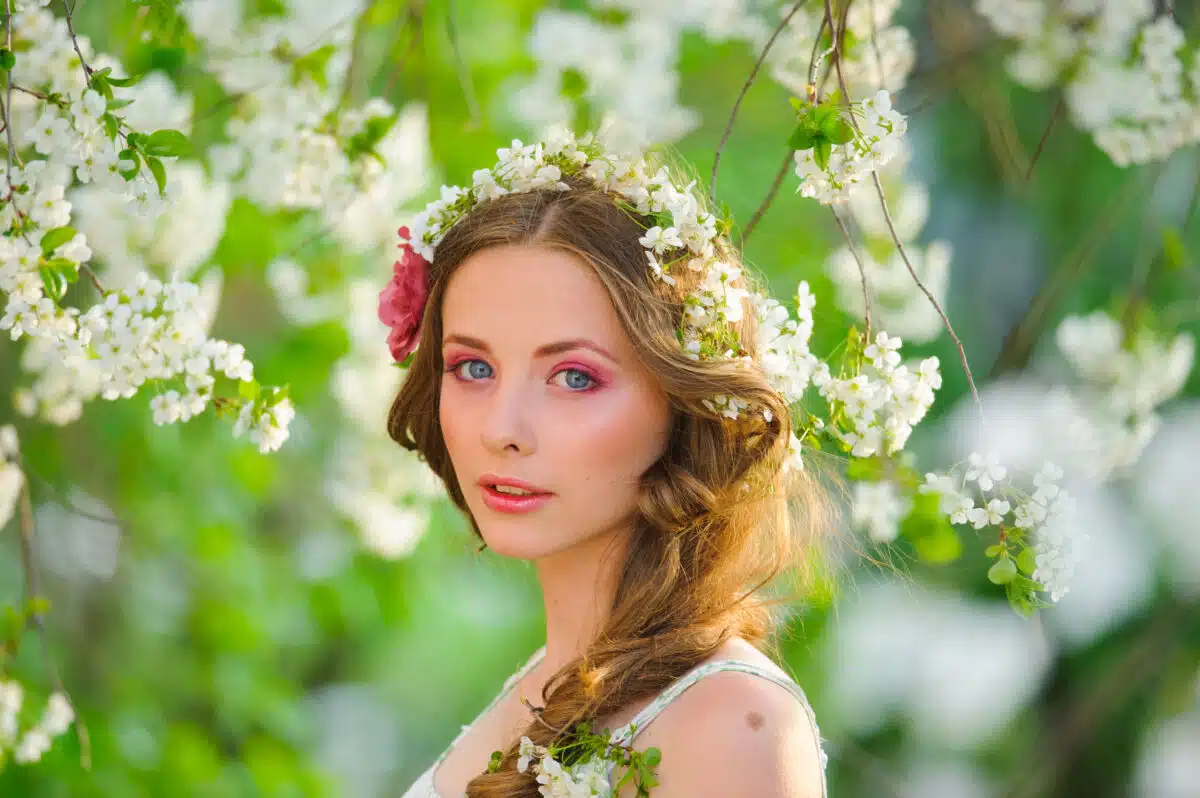
“Sweet Death” by Christina Georgina Rossetti
The sweetest blossoms die.
And so it was that, going day by day
Unto the church to praise and pray,
And crossing the green churchyard thoughtfully,
I saw how on the graves the flowers
Shed their fresh leaves in showers,
And how their perfume rose up to the sky
Before it passed away.
The youngest blossoms die.
They die and fall and nourish the rich earth
From which they lately had their birth;
Sweet life, but sweeter death that passeth by
And is as though it had not been:–
All colors turn to green;
The bright hues vanish and the odors fly,
The grass hath lasting worth.
And youth and beauty die.
So be it, O my God, Thou God of truth:
Better than beauty and than youth
Are Saints and Angels, a glad company;
And Thou, O Lord, our Rest and Ease,
Art better far than these.
Why should we shrink from our full harvest? why
Prefer to glean with Ruth?
“On Death” by Percy Bysshe Shelley
The pale, the cold, and the moony smile
Which the meteor beam of a starless night
Sheds on a lonely and sea-girt isle,
Ere the dawning of morn’s undoubted light,
Is the flame of life so fickle and wan
That flits round our steps till their strength is gone.
O man! hold thee on in courage of soul
Through the stormy shades of thy wordly way,
And the billows of clouds that around thee roll
Shall sleep in the light of a wondrous day,
Where hell and heaven shall leave thee free
To the universe of destiny.
This world is the nurse of all we know,
This world is the mother of all we feel,
And the coming of death is a fearful blow
To a brain unencompass’d by nerves of steel:
When all that we know, or feel, or see,
Shall pass like an unreal mystery.
The secret things of the grave are there,
Where all but this frame must surely be,
Though the fine-wrought eye and the wondrous ear
No longer will live, to hear or to see
All that is great and all that is strange
In the boundless realm of unending change.
Who telleth a tale of unspeaking death?
Who lifteth the veil of what is to come?
Who painteth the shadows that are beneath
The wide-winding caves of the peopled tomb?
Or uniteth the hopes of what shall be
With the fears and the love for that which we see?
“Life And Death” by Christina Georgina Rossetti
Life is not sweet. One day it will be sweet
To shut our eyes and die:
Nor feel the wild flowers blow, nor birds dart by
With flitting butterfly,
Nor grass grow long above our heads and feet,
Nor hear the happy lark that soars sky high,
Nor sigh that spring is fleet and summer fleet,
Nor mark the waxing wheat,
Nor know who sits in our accustomed seat.
Life is not good. One day it will be good
To die, then live again;
To sleep meanwhile: so not to feel the wane
Of shrunk leaves dropping in the wood,
Nor hear the foamy lashing of the main,
Nor mark the blackened bean-fields, nor where stood
Rich ranks of golden grain
Only dead refuse stubble clothe the plain:
Asleep from risk, asleep from pain.

“On Death” by Kahlil Gibran
Then Almitra spoke, saying, We would ask now of Death.
And he said:
You would know the secret of death.
But how shall you find it unless you seek it in the heart of life?
The owl whose night-bound eyes are blind unto the day cannot unveil the mystery of light.
If you would indeed behold the spirit of death, open your heart wide unto the body of life.
For life and death are one, even as the river and the sea are one.
In the depth of your hopes and desires lies your silent knowledge of the beyond;
And like seeds dreaming beneath the snow your heart dreams of spring.
Trust the dreams, for in them is hidden the gate to eternity.
Your fear of death is but the trembling of the shepherd when he stands before the king whose hand is to be laid upon him in honour.
Is the shepherd not joyful beneath his trembling, that he shall wear the mark of the king?
Yet is he not more mindful of his trembling?
For what is it to die but to stand naked in the wind and to melt into the sun?
And what is it to cease breathing, but to free the breath from its restless tides, that it may rise and expand and seek God unencumbered?
Only when you drink from the river of silence shall you indeed sing.
And when you have reached the mountain top, then you shall begin to climb.
And when the earth shall claim your limbs, then shall you truly dance.
“Death” by William Butler Yeats
Nor dread nor hope attend
A dying animal;
A man awaits his end
Dreading and hoping all;
Many times he died,
Many times rose again.
A great man in his pride
Confronting murderous men
Casts derision upon
Supersession of breath;
He knows death to the bone —
Man has created death.
“What is Death!” by Algernon Charles Swinburne
Looking on a page where stood
Graven of old on old-world wood
Death, and by the grave’s edge grim,
Pale, the young man facing him,
Asked my well-beloved of me
Once what strange thing this might be,
Gaunt and great of limb.
Death, I told him: and, surprise
Deepening more his wildwood eyes
(Like some sweet fleet thing’s whose breath
Speaks all spring though nought it saith),
Up he turned his rosebright face
Glorious with its seven years’ grace,
Asking, What is death?

“Life and Death” by Carrie Williams Clifford
I saw the candle brightly burning in the room!
The fringéd curtains gracefully draped back,
The windows, crystal clear!
Upon the generous hearth
Quick Wit and bubbling Laughter
Flashed and danced,
Sparkled and pranced,
And music to the glowing scene lent cheer.
It was a gracious sight,
So full of life, of love, of light!
Death
Then suddenly I saw a cloud of gloom
Take form within the room:
A blue-grey mist obscured the window-panes
And silent fell the rout!
Then from the shadows, came the Dreaded Shape,–
The candle flickered out!
Poems About Death of a Friend
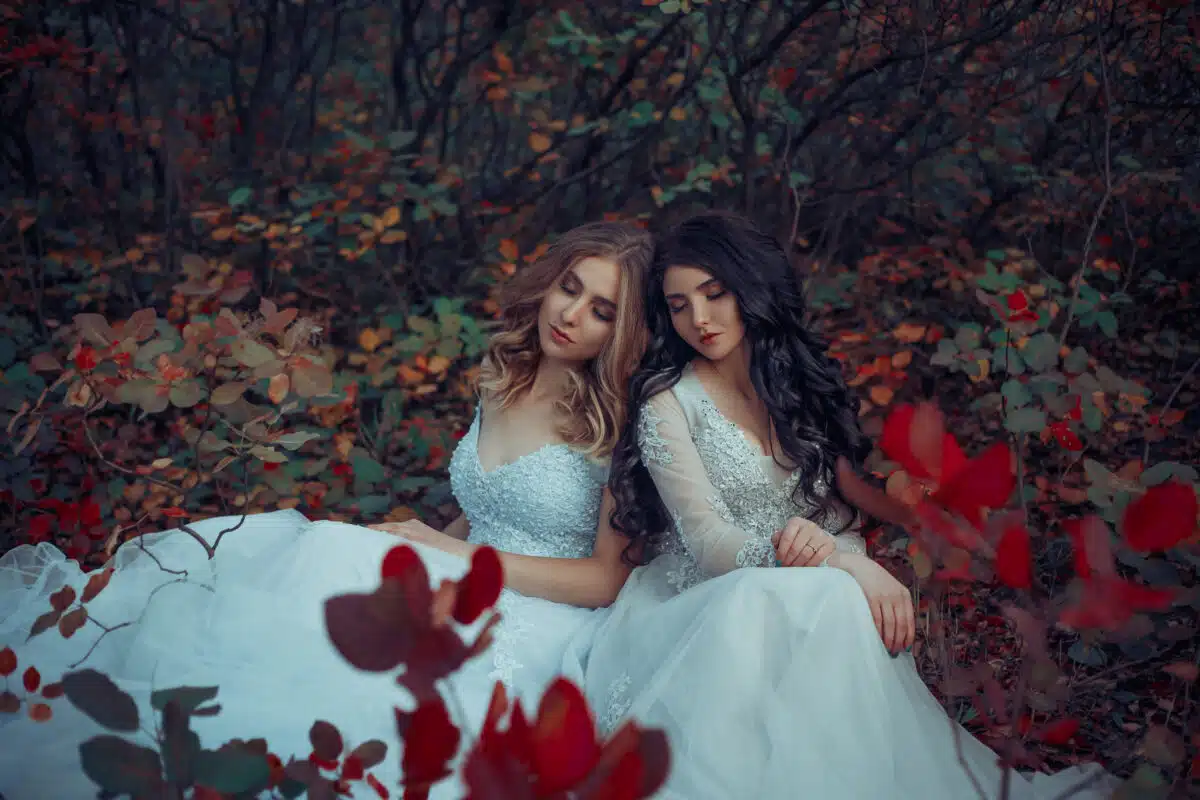
“On the Death of a particular Friend” by James Thomson
As those we love decay, we die in part,
String after string is sever’d from the heart;
Till loosen’d life, at last but breathing clay,
Without one pang is glad to fall away.
Unhappy he who latest feels the blow!
Whose eyes have wept o’er every friend laid low,
Dragg’d ling’ring on from partial death to death,
Till, dying, all he can resign is—breath.
“After Death in Arabia” by Anonymous (Sir Edwin Arnold, Translator)
He who dies at Azan sends
This to comfort faithful friends:—
Faithful friends! it lies, I know,
Pale and white and cold as snow;
And ye says, “Abdullah ’s dead!”
Weeping at my feet and head.
I can see your falling tears,
I can hear your cries and prayers,
Yet I smile and whisper this:—
“I am not that thing you kiss;
Cease your tears and let it lie:
It was mine, it is not I.”
Sweet friends! what the women lave
For its last bed in the grave
Is a tent which I am quitting,
Is a garment no more fitting,
Is a cage from which at last
Like a hawk my soul hath passed.
Love the inmate, not the room;
The wearer, not the garb; the plume
Of the falcon, not the bars
Which kept him from the splendid stars.
Loving friends! be wise, and dry
Straightway every weeping eye:
What ye lift upon the bier
Is not worth a wistful tear.
’T is an empty sea-shell, one
Out of which the pearl is gone.
The shell is broken, it lies there;
The pearl, the all, the soul, is here.
’T is an earthen jar whose lid
Allah sealed, the while it hid
That treasure of His treasury,
A mind which loved him: let it lie!
Let the shard be earth’s once more,
Since the gold shines in His store!
Allah Mu’hid, Allah most good!
Now thy grace is understood:
Now my heart no longer wonders
What Al-Barsakh is, which sunders
Life from death, and death from heaven:
Nor the “Paradises Seven”
Which the happy dead inherit;
Nor those “birds” which bear each spirit
Toward the Throne, “green birds and white,”
Radiant, glorious, swift their flight!
Now the long, long darkness ends.
Yet ye wail, my foolish friends,
While the man whom ye call “dead”
In unbroken bliss instead
Lives, and loves you: lost, ’t is true
By any light which shines for you;
But in light ye cannot see
Of unfulfilled felicity,
And enlarging Paradise;
Lives the life that never dies.
Farewell, friends! Yet not farewell;
Where I am, ye too shall dwell.
I am gone before your face
A heart-beat’s time, a gray ant’s pace.
When ye come where I have stepped,
Ye will marvel why ye wept;
Ye will know, by true love taught,
That here is all, and there is naught.
Weep awhile, if ye are fain,—
Sunshine still must follow rain!
Only not at death, for death—
Now I see—is that first breath
Which our souls draw when we enter
Life, that is of all life center.
Know ye Allah’s law is love,
Viewed from Allah’s Throne above;
Be ye firm of trust, and come
Faithful onward to your home!
“La Allah illa Allah! Yea,
Mu’hid! Restorer! Sovereign!” say!
He who died at Azan gave
This to those that made his grave.
“The General’s Death” by Joseph O’Connor
The General dashed along the road
Amid the pelting rain;
How joyously his bold face glowed
To hear our cheers’ refrain!
His blue blouse flapped in wind and wet,
His boots were splashed with mire,
But round his lips a smile was set,
And in his eyes a fire.
A laughing word, a gesture kind,—
We did not ask for more,
With thirty weary miles behind,
A weary fight before.
The gun grew light to every man,
The crossed belts ceased their stress,
As onward to the column’s van
We watched our leader press.
Within an hour we saw him lie,
A bullet in his brain,
His manly face turned to the sky,
And beaten by the rain.
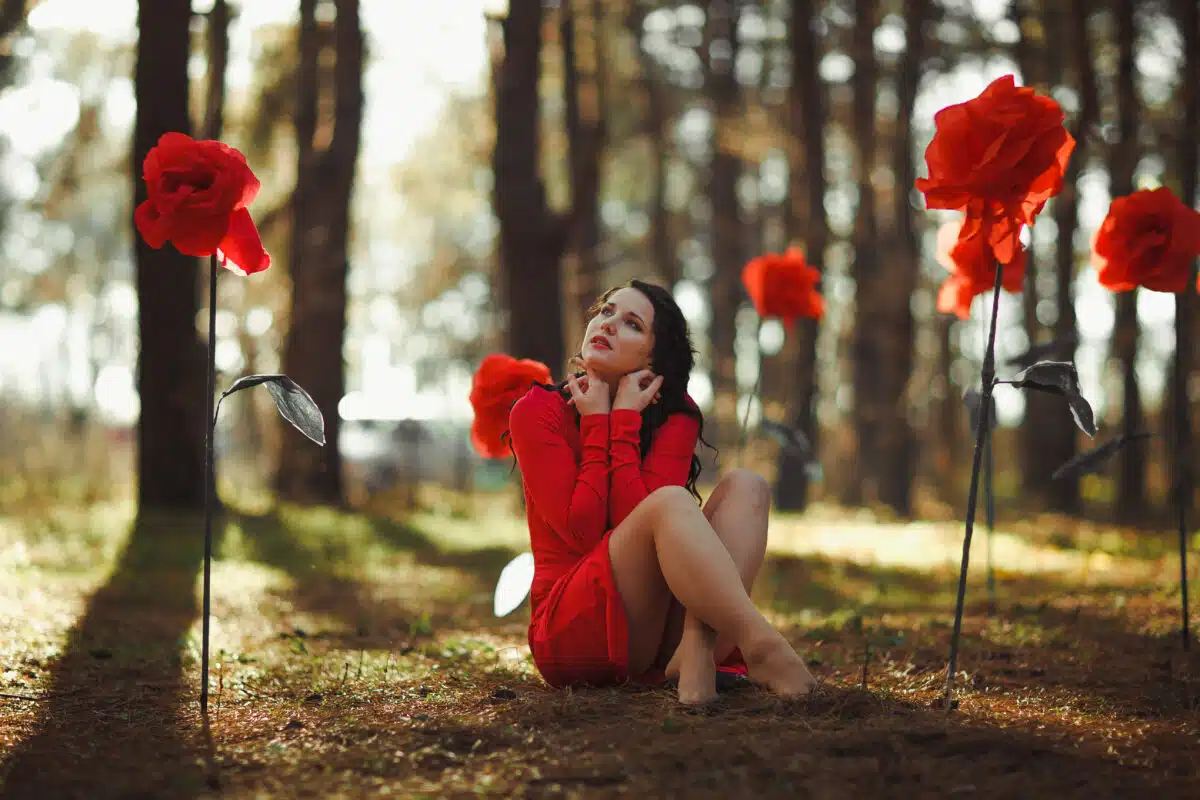
“On the Death of Coleridge” by Washington Allston
And thou art gone, most loved, most honored friend!
No, nevermore thy gentle voice shall blend
With air of earth its pure ideal tones,
Binding in one, as with harmonious zones,
The heart and intellect. And I no more
Shall with thee gaze on that unfathomed deep,
The human soul; as when, pushed off the shore,
Thy mystic bark would through the darkness sweep,
Itself the while so bright! For oft we seemed
As on some starless sea,—all dark above,
All dark below,—yet, onward as we drove,
To plough up light that ever round us streamed.
But he who mourns is not as one bereft
Of all he loved:—thy living truths are left.
“May and Death” by Robert Browning
I
I wish that when you died last May,
Charles, there had died along with you
Three parts of spring’s delightful things;
Ay, and, for me, the fourth part too.
II
A foolish thought, and worse, perhaps!
There must be many a pair of friends
Who, arm in arm, deserve the warm
Moon-births and the long evening-ends.
III
So, for their sake, be May still May!
Let their new time, as mine of old,
Do all it did for me: I bid
Sweet sights and songs throng manifold.
IV
Only, one little sight, one plant,
Woods have in May, that starts up green
Save a sole streak which, so to speak,
Is spring’s blood, spilt its leaves between,—
V
That, they might spare; a certain wood
Might miss the plant; their loss were small:
But I,—whene’er the leaf grows there,
Its drop comes from my heart, that ’s all.
“The Death Of Regret” by Thomas Hardy
I opened my shutter at sunrise,
And looked at the hill hard by,
And I heartily grieved for the comrade
Who wandered up there to die.
I let in the morn on the morrow,
And failed not to think of him then,
As he trod up that rise in the twilight,
And never came down again.
I undid the shutter a week thence,
But not until after I’d turned
Did I call back his last departure
By the upland there discerned.
Uncovering the casement long later,
I bent to my toil till the gray,
When I said to myself, ‘Ah – what ails me,
To forget him all the day!’
As daily I flung back the shutter
In the same blank bald routine,
He scarcely once rose to remembrance
Through a month of my facing the scene.
And ah, seldom now do I ponder
At the window as heretofore
On the long valued one who died yonder,
And wastes by the sycamore.

“Youth and Death” by Emma Lazarus
What hast thou done to this dear friend of mine,
Thou cold, white, silent Stranger? From my hand
Her clasped hand slips to meet the grasp of thine;
Here eyes that flamed with love, at thy command
Stare stone-blank on blank air; her frozen heart
Forgets my presence. Teach me who thou art,
Vague shadow sliding ‘twixt my friend and me.
I never saw thee till this sudden hour.
What secret door gave entrance unto thee?
What power in thine, o’ermastering Love’s own power?
“On The Death Of A Friend” by Thomas Moore
Pure as the mantle, which, o’er him who stood
By Jordan’s stream, descended from the sky,
Is that remembrance which the wise and good
Leave in the hearts that love them, when they die.
So pure, so precious shall the memory be,
Bequeathed, in dying, to our souls by thee–
So shall the love we bore thee, cherisht warm
Within our souls thro’ grief and pain and strife,
Be, like Elisha’s cruse, a holy charm,
Wherewith to “heal the waters” of this life!
